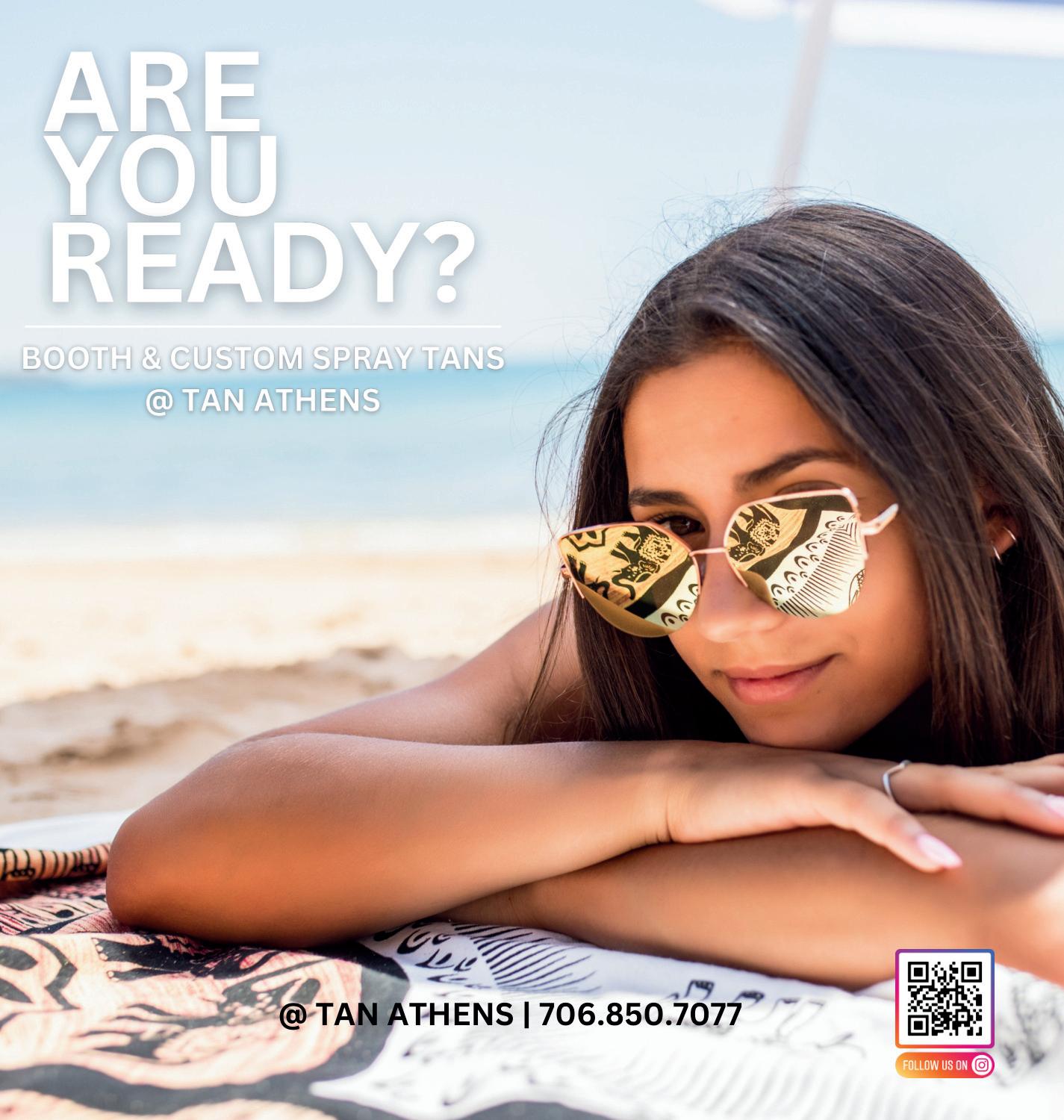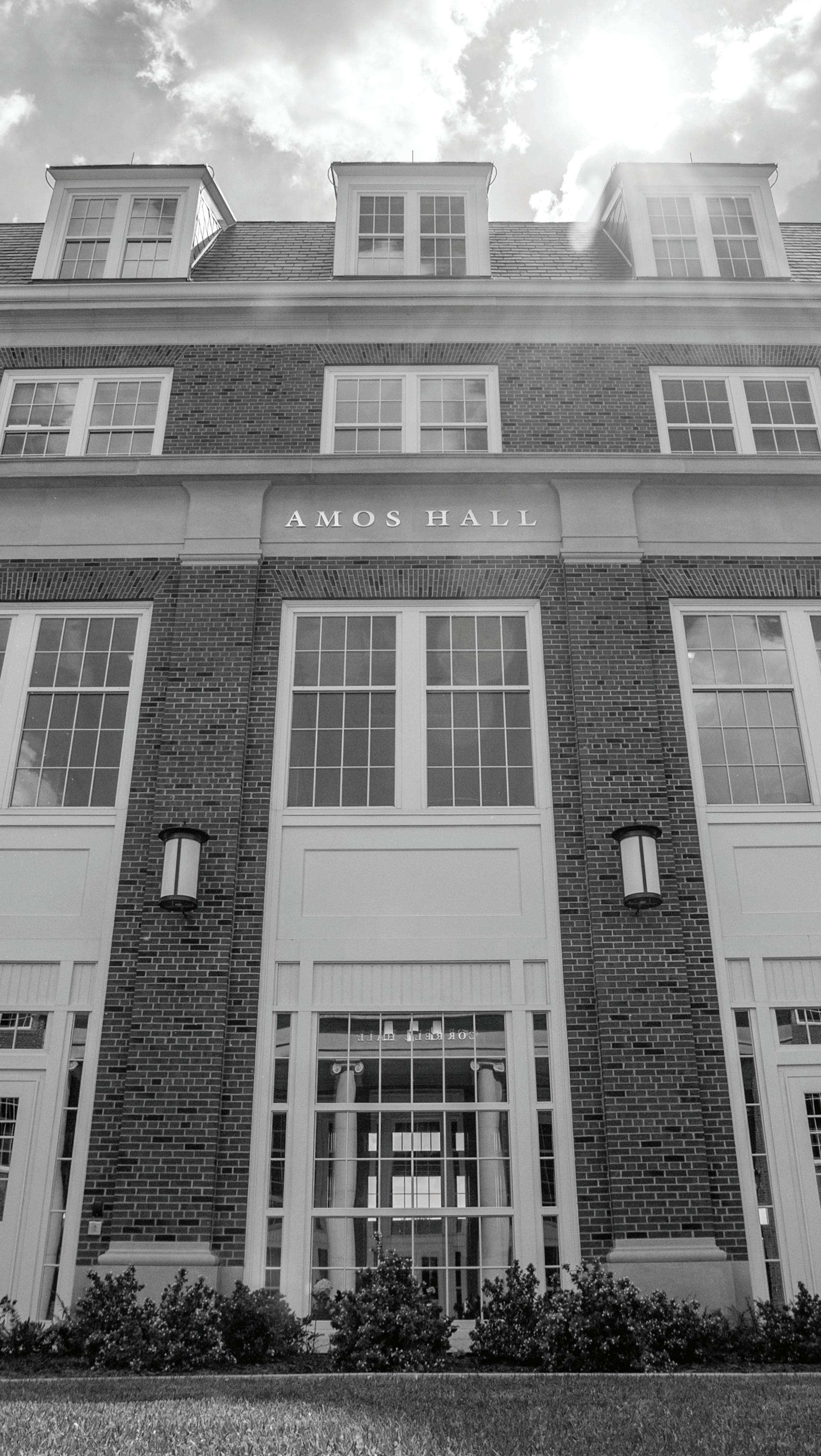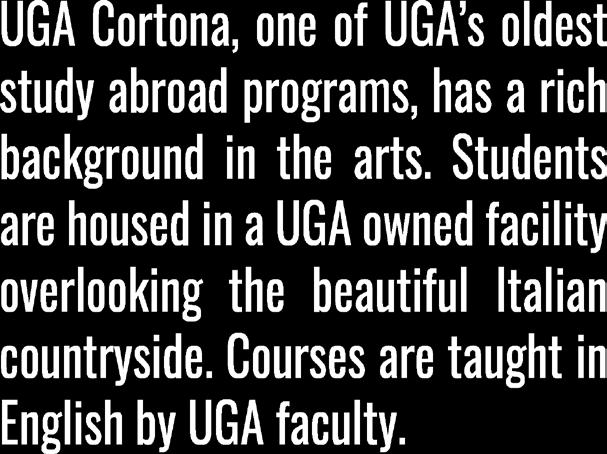
























GUIDES AND MAGAZINES SUPERVISOR Maddie Daniel
SENIOR EDITOR Ellis Goud
ASSISTANT EDITORS Anna Kapustay, Samantha Hurley
CHIEF DESIGNER & PHOTOGRAPHER Sidney Chansamone
CONTRIBUTING PHOTOGRAPHERS Samantha Hurley, Ellis Goud, Taylor Gerlach, Jessica Gratigny, Tim O'Brien, Liz Rymarev
ADVERTISING DIRECTOR Carter Webb
ACCOUNT EXECUTIVES Maggie Bruce, Maddie Dickinson, Cameron Ellison, Hayden Galbraith, Ethan Lail, Sara Mahmud, Bailey Nathan, Jane Ransome, Emily Williams
EXECUTIVE DIRECTOR Charlotte Varnum
CHIEF FINANCIAL OFFICER Melissa Mooney
DISTRIBUTION ASSISTANTS Ethan Cone, Cate Jones, Gracie Owens
540 Baxter Street, Athens GA 30605 • 706-433-3000 tellus@randb.com • redandblack.com
© 2024 The Red & Black Publishing Company, Inc.
No portion of this guide may be reproduced without written consent. Opinions expressed by contributors do not necessarily reflect the views of The Red & Black Publishing Company.
ADVERTISING Contact us at 706-433-3001 or advertising@randb.com.
BULK ORDERS Available for distribution at businesses. Call 706-433-3011 or email tellus@randb.com.
SINGLE COPIES Can be shipped outside of Athens. Order at redandblackstore.com.
ABOUT US A nonprofit, independent student news organization, we have published The Red & Black newspaper since 1893. We also publish news at redandblack.com and produce magazines, guides, books and podcasts.



This annual magazine shares tips, tricks and guidance for UGA students looking for off-campus housing in Athens, plus an exhaustive apartment complex guide. Read the latest digital edition online at redandblack.com/housing/magazine
Visitors Guide
Published twice a year, this guide is packed with insider recommendations on what to see, do, eat and experience in Athens for visitors and locals alike. Read the latest digital edition online at redandblack.com/guides/athens

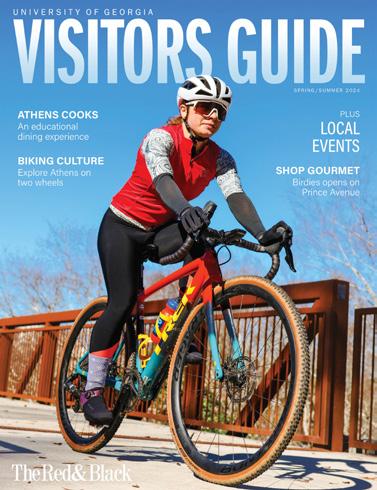
This annual guide to Athens restaurants, bars and local businesses is a must-read for Athenians and visitors looking for unique dining experiences and new places to eat and drink. Read the digital edition at redandblack.com/eat-drink
In town to cheer on the dawgs? Our annual fall guide covers all the essentials for Georgia fans, with plenty of insider tips on setting up your tailgate and feeding your guests in style. redandblack.com/guides/tailgate

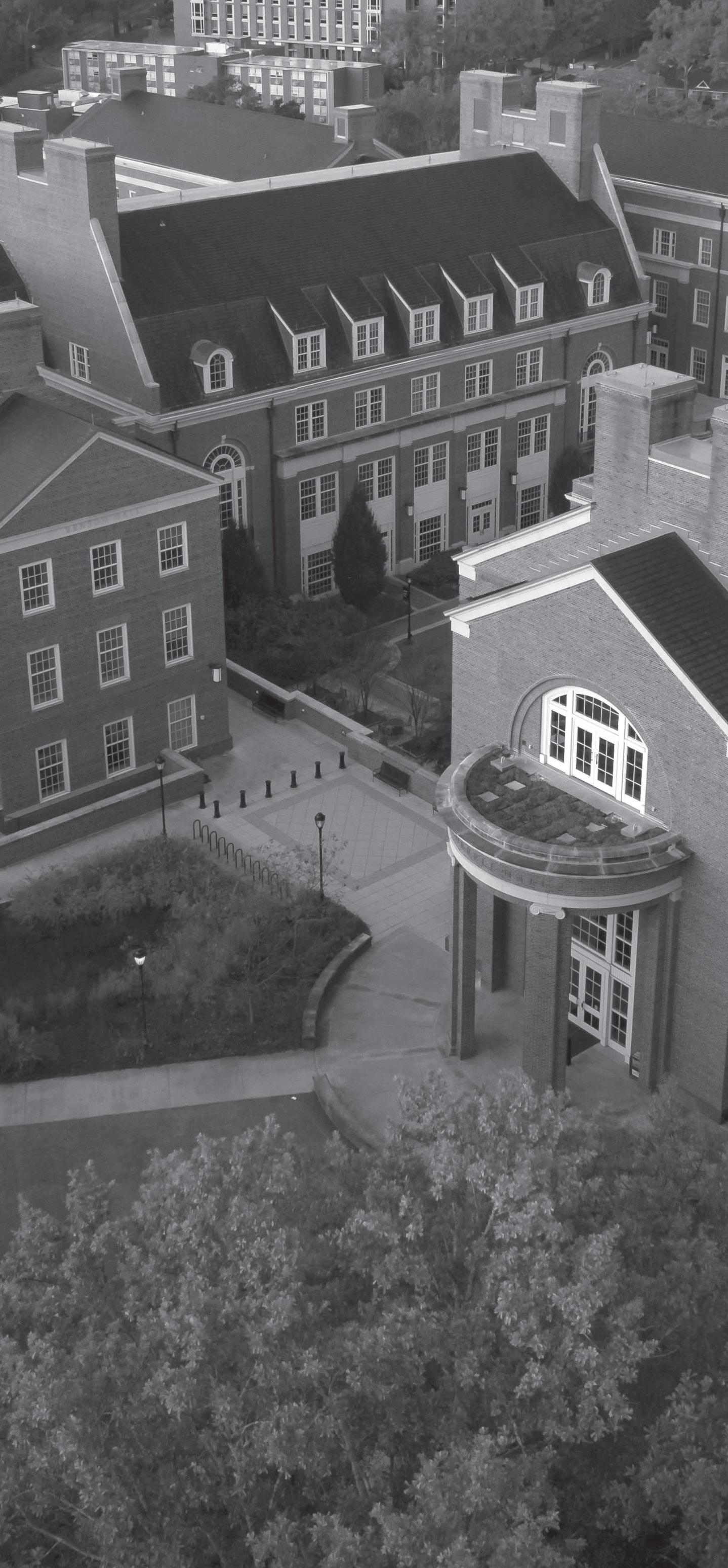

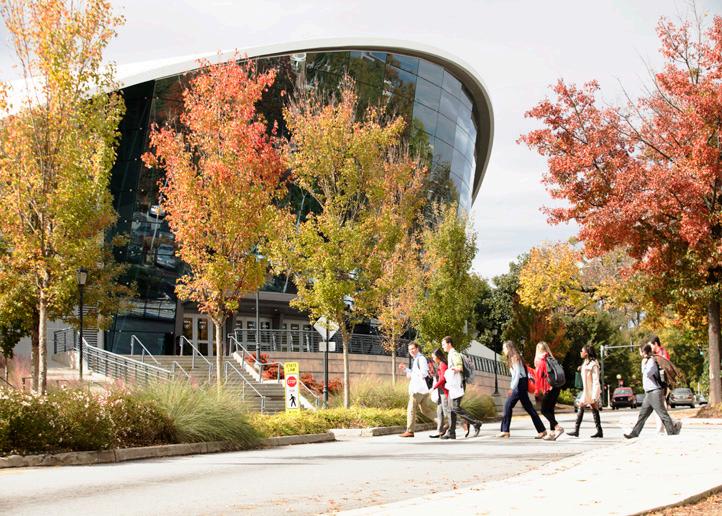
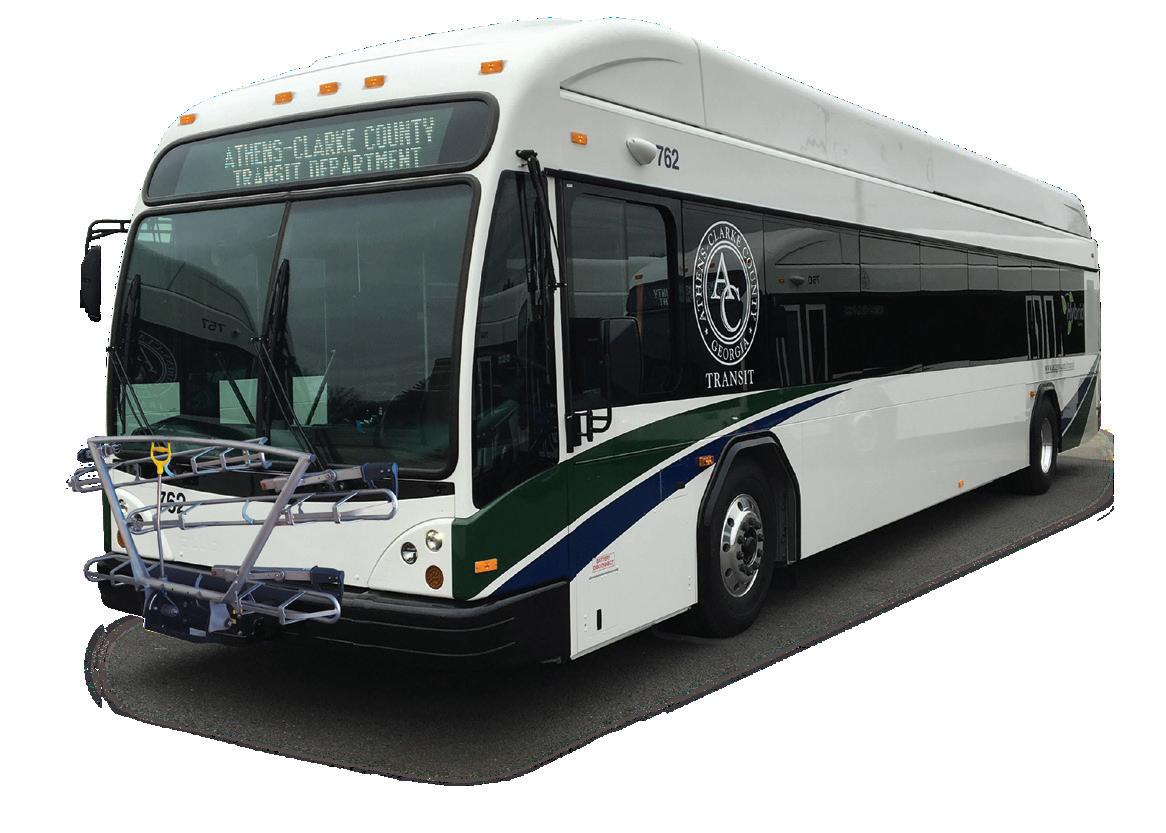

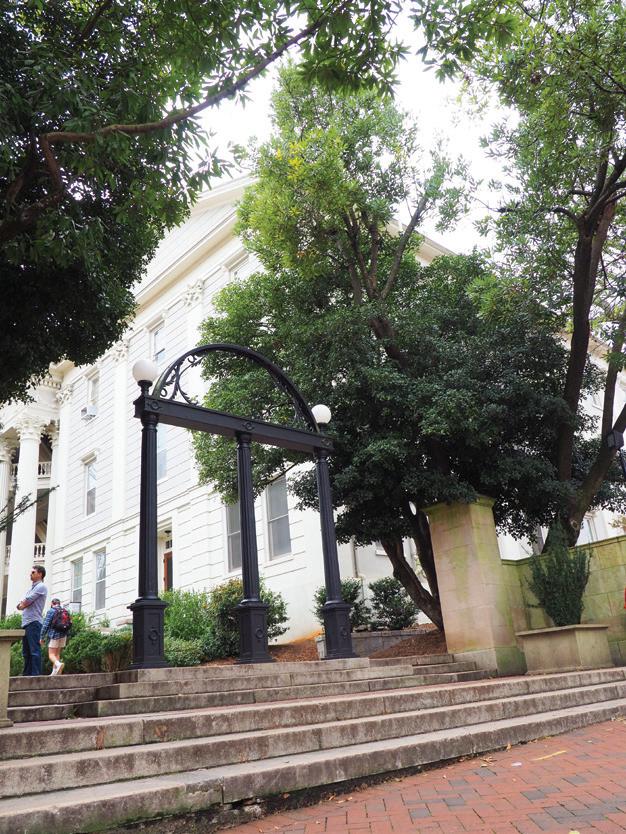
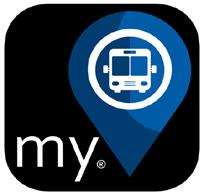

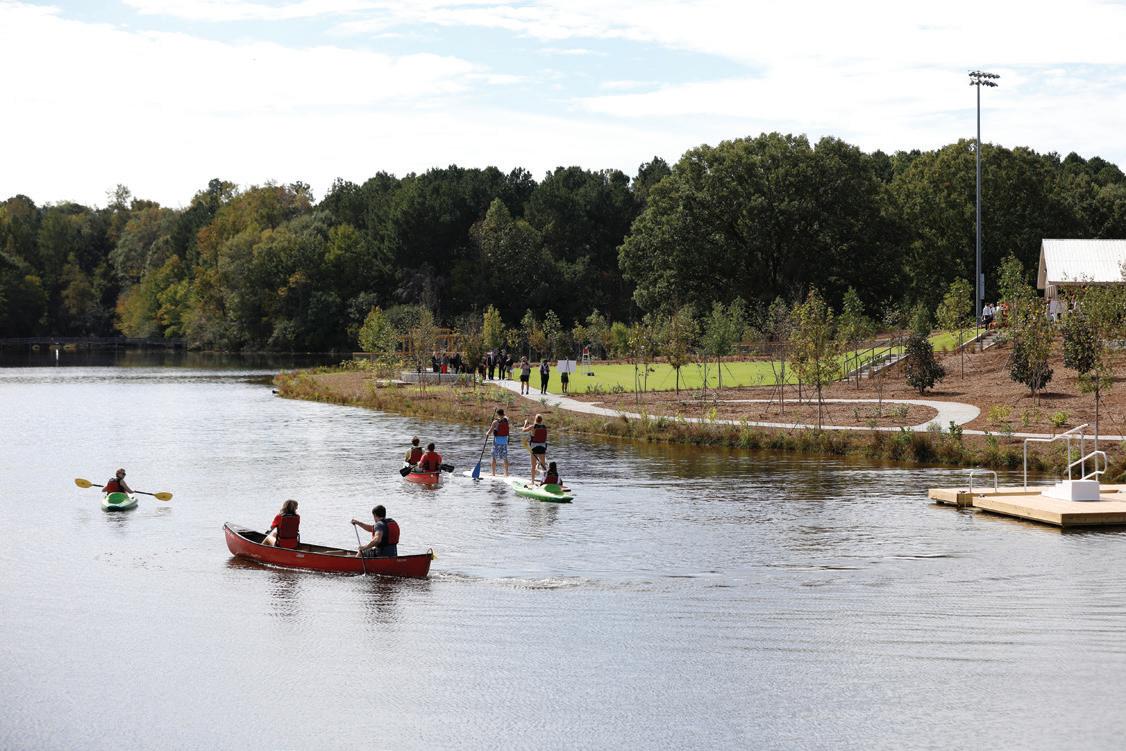
Free rides and 7-day service make it easy to leave the car behind! Skip the parking hassles, save money and the environment with ACC Transit. myStop® for live bus tracking







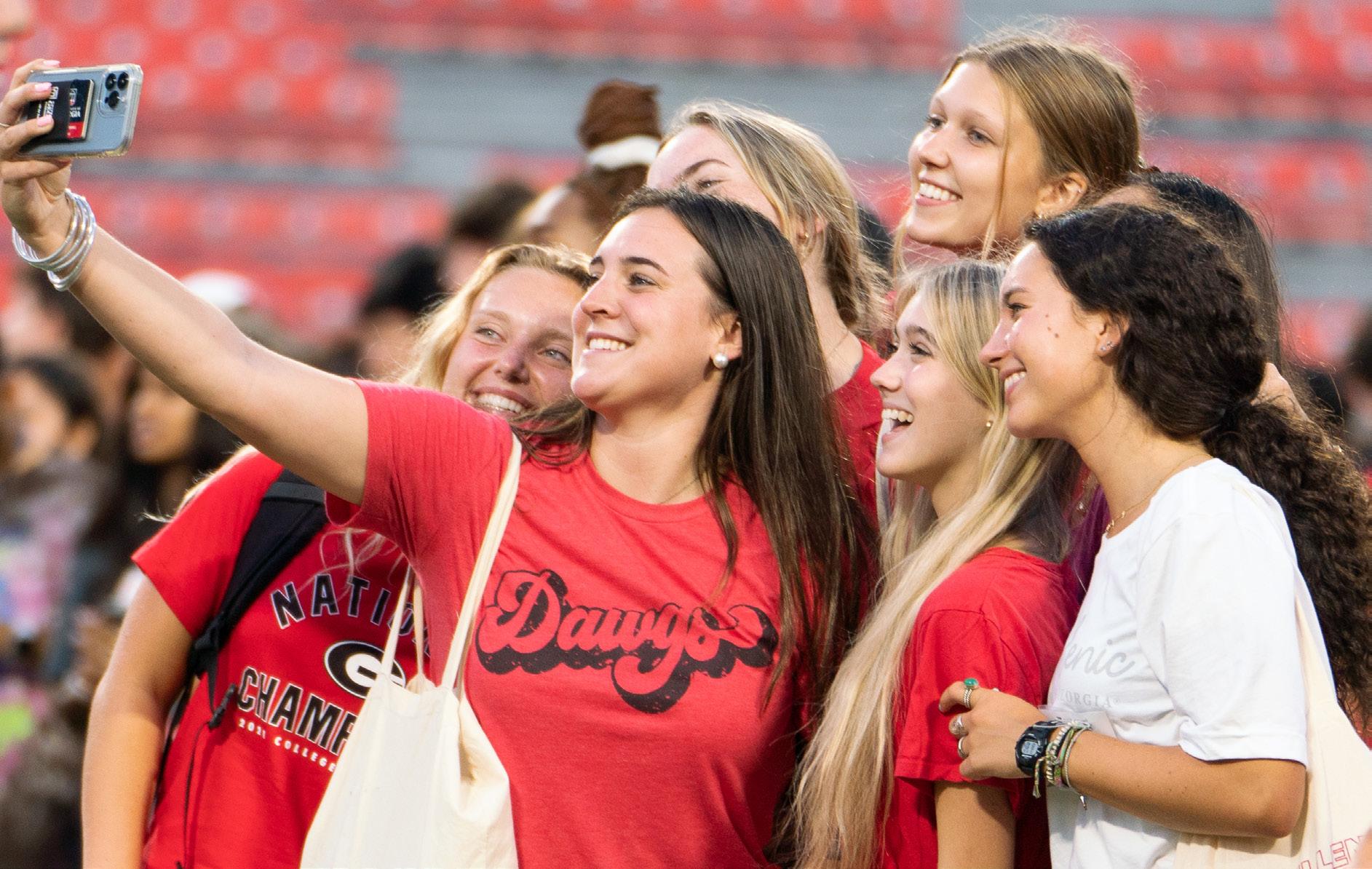
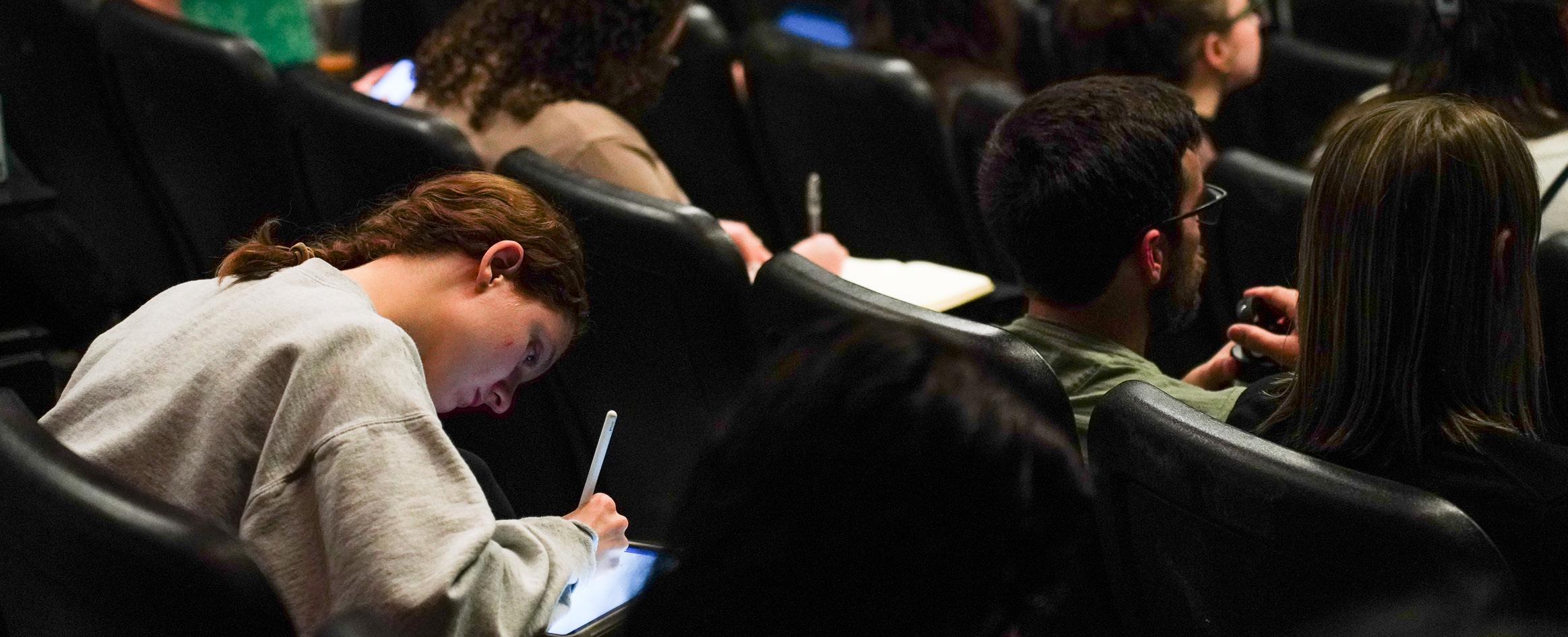 Lamar Dodd School of Art | Sidney Chansamone
Lamar Dodd School of Art | Sidney Chansamone
7 tips to help you sign up for classes
First: Meet with your adviser. Most students take 12 to 15 credit hours per semester. You must take at least 12 to be considered a fulltime student, but the HOPE Scholarship only covers up to 15 credit hours per semester. DegreeWorks is a must. It’s individualized, showing requirements you may have filled with AP or IB classes and which classes you still need for your degree. The UGA Bulletin contains descriptions for classes, any prerequisites and old syllabi. It will help ensure you’re taking what you need now in order to get into other courses down the road.
Before you start registration, it helps to plan out a couple of different schedule options. Coursicle, an online class schedule-building site, is extremely helpful. You can look up courses DegreeWorks recommends or do a general search for an area you need. Each class will pop up with the current capacity, time, place and professor. Build a few different schedules to see which course load works best for you and which classes are good backups.
Once you have a list of courses, check how far apart the buildings are. Keep in mind, there are only 20-minute breaks between consecutive classes. For perspective: It takes 24 minutes to walk from Peabody Hall to the Science Learning Center. That same journey could take 12 to 16 minutes on a bus, or 8 minutes on a bike. Some professors will be lenient about travel logistics, so if you can’t get there on time, talk to them.
An instructor can make or break a class. Check out student reviews on Rate My Professor but always take them with a grain of salt. Students who write reviews are usually the ones who had the most extreme experiences — good or bad. Your adviser and other students can give more balanced feedback.
Log in to Athena before your time ticket starts so that you can register for classes before they fill up. Have some backups — you won’t always get your first pick. Entering the Course Reference Numbers for the classes you need is the quickest way to reserve your spot. Go to: Student > Student & Registration > Registration > Register for Classes, then select the semester you’re registering for and enter the CRNs.
If you’re unsure of what class to take, how many credits to take, or if you’re looking to add a minor or take summer classes, ask your adviser. If you’re worried about scholarships, grants or financial concerns, go to the Office of Student Financial Aid.
7. MANAGE
Unfortunately, some classes might be full before you even get to orientation. Sometimes a professor can add you to a course, so it never hurts to email and ask. Make sure you find several alternatives that fulfill your requirements and are of interest to you, and prioritize registering for any classes you missed out on the next time they’re offered.
Sometimes, even after searching Rate My Professor and studying the syllabus, the experience of a class might be different from what you imagined. Dropping or withdrawing may be a necessary choice to salvage your GPA, mental health or navigate an unexpected circumstance.
If you are considering withdrawing but are uneasy about how it might impact your track to graduation, schedule a meeting to talk with your adviser. There is no shame in taking the steps that are right for you, but try to decide before the class withdrawal deadline (two weeks after the semester midpoint). It’s more common than you might think to stay at UGA for more than four years.









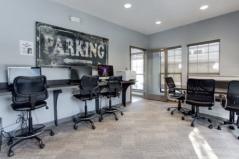




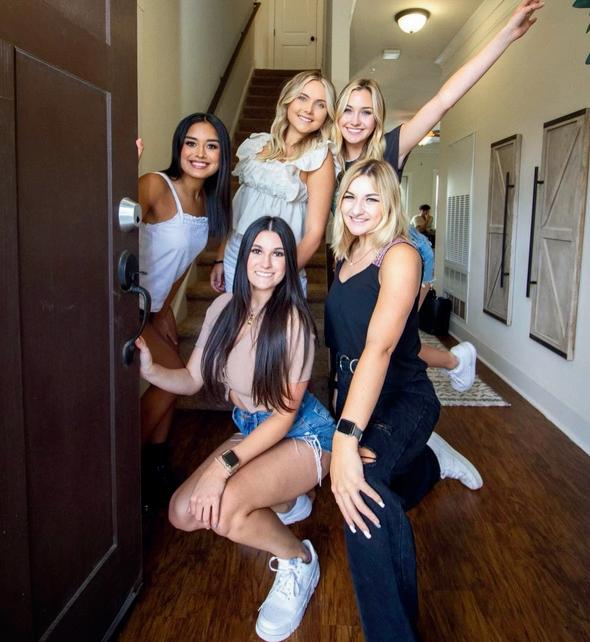


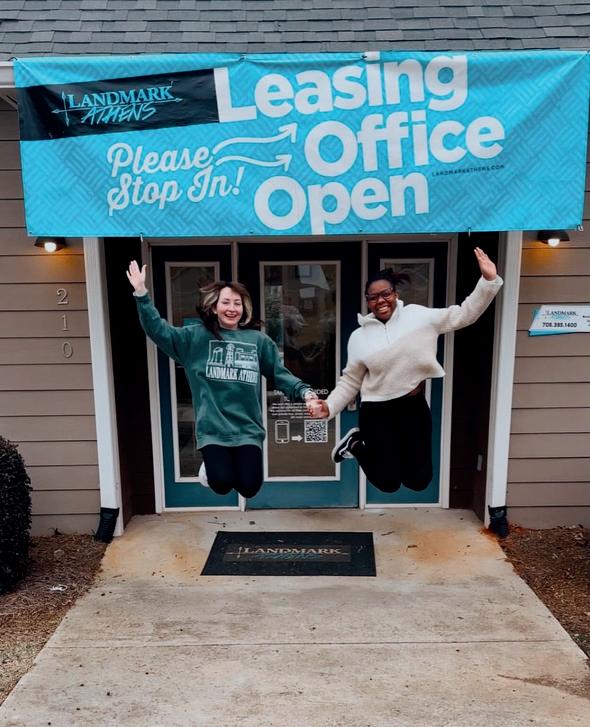
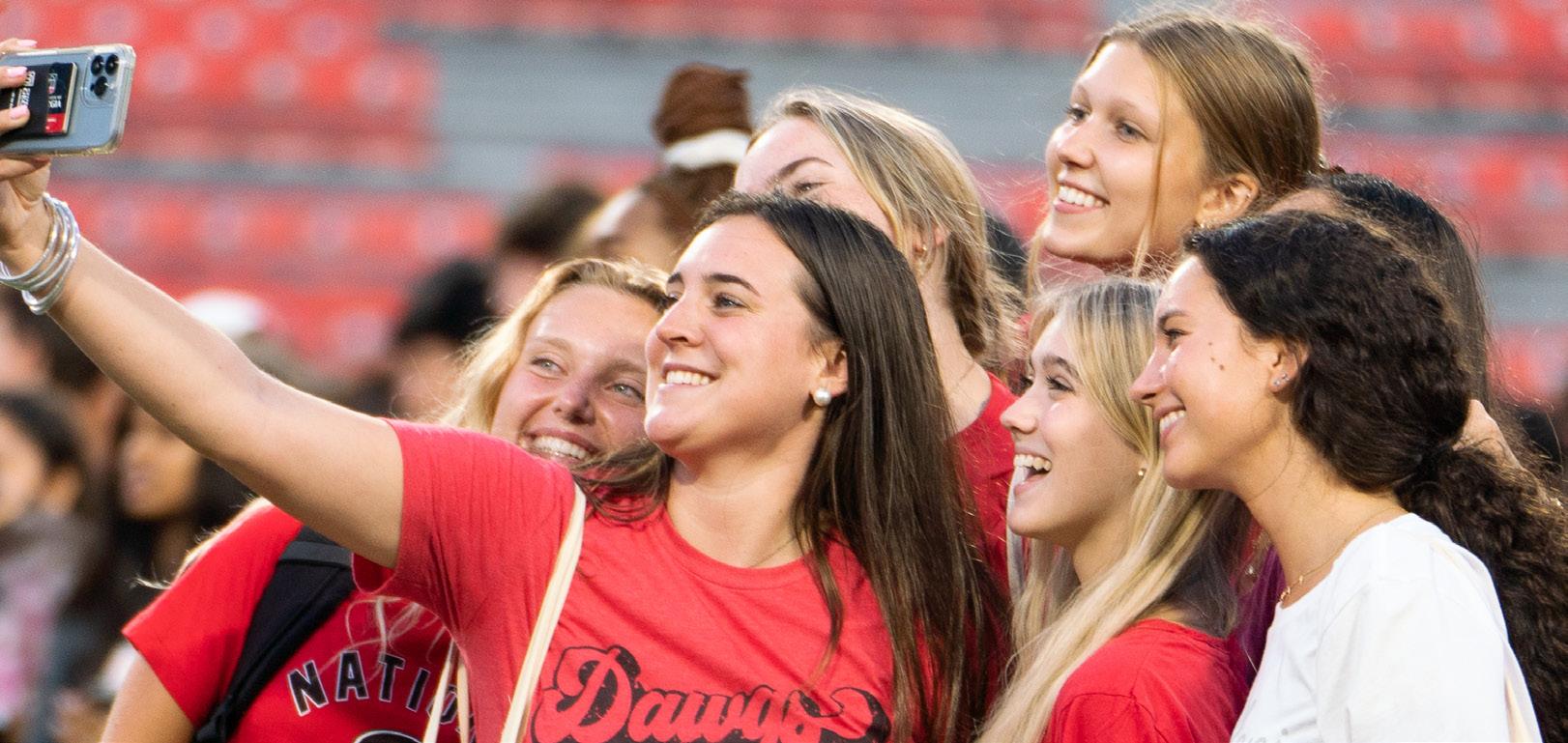
Whether you’re attending a class in person or online, the first day will consist of reading your syllabus (and hopefully not much else).
Syllabi provide an outline of what a professor feels is most important about the course. In addition to exam dates, they list assignment deadlines, class policies, textbooks and other required reading.
After reading through each syllabus, it’s helpful to write project and exam dates in an academic planner to keep track of them. The UGA bookstore and Archer Paper Goods downtown both have a wide range of physical notebooks, but Google Calendar works too.
You might also want to include family responsibilities and social calendar events to better visualize how much time you’ll realistically have to work on assignments before they’re due.
Because professors provide these due dates months in advance, they’ll be more likely to accommodate absences and shift deadlines if you communicate about conflicts at the beginning of the semester.
Check in every month or so to make sure your professor hasn’t changed the syllabus from the first week of class. Sometimes, but not often, teachers will alter the original copy without letting the class know, so stay vigilant!
DAE.UGA.EDU
Peer tutoring is completely free through the Division of Academic Enhancement. Students can meet with a peer tutor who has successfully completed the course they’re looking for help in. Tutors can discuss class content, offer study tips and resources and answer questions. There are one-on-one sessions as well as study groups. Skoolers, Science Guyz and Varsity Tutors are popular non-UGA options.
DAE.UGA.EDU
Academic coaches help students assess their school-related and professional goals, connect them with other resources and plan a path toward success. Where peer tutoring is centered around specific classes, academic coaching is more focused on long-term objectives. Coaching is a free service available for all undergraduate students pursuing any major.
ENGLISH.UGA.EDU/WRITING-CENTER
Whether you need assistance with an essay, a research paper or even a cover letter, the writing consultants are there to help. Appointments are free and can take place either online or in-person at several locations across campus. Services include evaluating thesis statements and writing structure, teaching students how to proofread their own work and providing feedback on first drafts.
CAREER.UGA.EDU
Many students aren’t sure what they want to do after college, but the Career Center helps you navigate your options. Explore the many majors UGA offers and their respective career paths, utilize resume and cover letter reviews and practice for job interviews. Maybe even sign up for the mentoring program and find someone in your dream field to connect with.
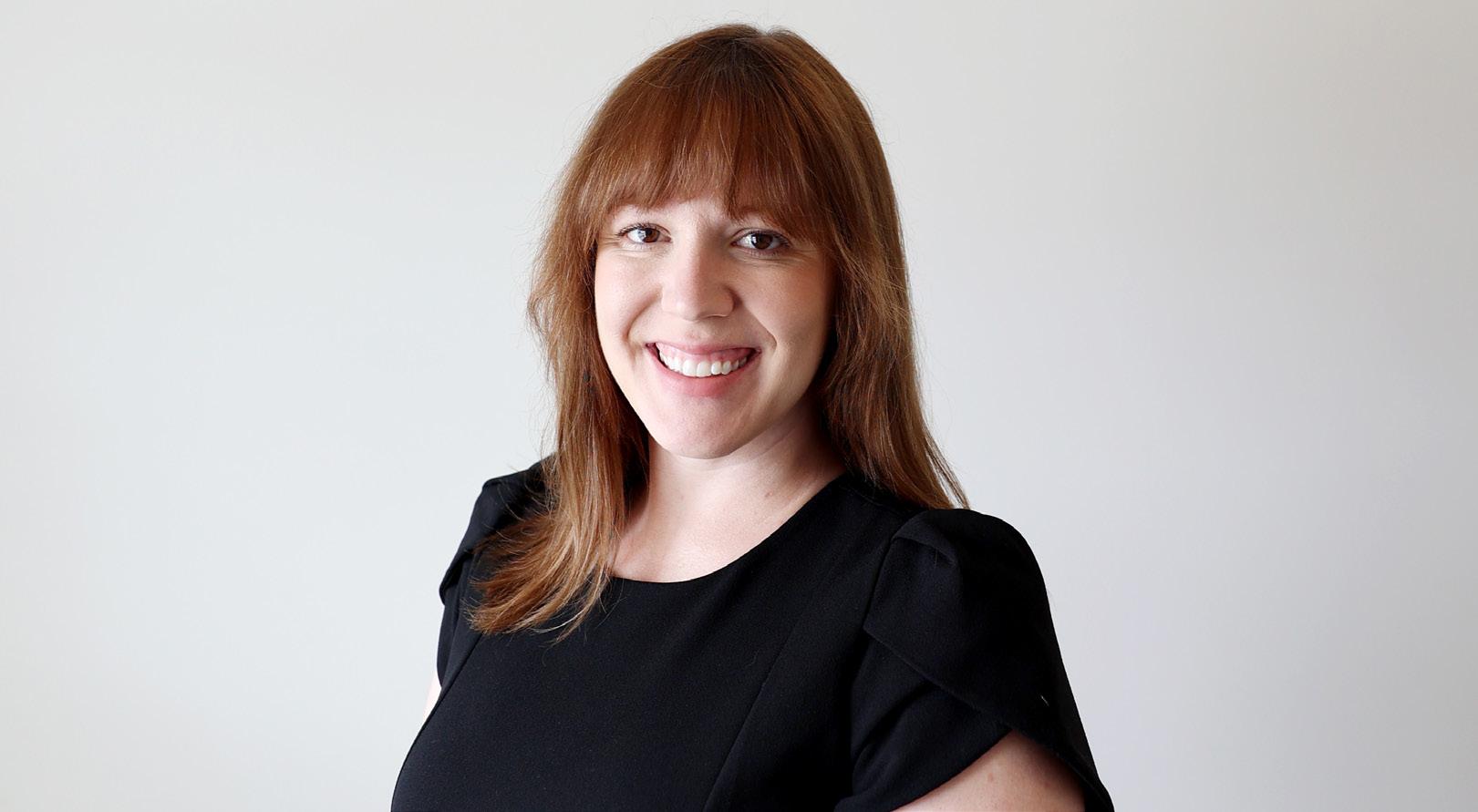
Dr. Andrea Hudson is one of the Grady College of Journalism and Mass Communication’s Teachers of the Year. A University of Georgia graduate herself, Dr. Hudson earned her bachelors and doctoral degrees here in the classic city, and now shares her perspective as a professional communicator and storyteller with incoming students.
1. Say your dreams out loud. You don’t know who is listening. It can be vulnerable and scary, but saying it out loud is the first step to it becoming reality.
2. Find a mentor. UGA has a wonderful Mentor Program and there are so many people who are willing to help you navigate your time at college, as well as your post-college dreams. There are also so many wonderful professors on campus that would love to get to know you and your professional goals - set up a time to chat with them!
3. Learn your classmates’ names. It’s the respectful thing to do. Don’t refer to people as “the girl I always sit next to in English class” or “the guy who always wears the baseball cap in psychology.” This will help make this large campus feel smaller and can even help you start to build your professional and social network.
4. Write thank you notes. If someone writes a letter of recommendation for you, or made a positive impact on your day, semester, year—tell them! It’s nice to feel appreciated and the gratitude goes a long way.
5. Find a hobby or interest that is not related to your major. Don’t let work or play be your entire identity. Practice developing work-life
balance skills now and learn how to manage your time and interests.
6. Don’t be afraid to do something on your own. If you want to join a club or go to an event that none of your friends have interest in, go by yourself! Some new people and opportunities are waiting for you there. Don’t miss out because you’re intimidated by the situation.
7. Don’t compare yourself to others. An Instagram grid or Athena grade report never tells the whole story of a person’s journey, and your story will be uniquely yours. Comparison will likely just steal your happiness.
8. Figure out your finances. Even if you’re in a privileged position where someone is helping you pay your way through college, it is important to understand financial planning so life after graduation isn’t shocking to you. Related, don’t take out more student loans than you need and be careful with credit cards.
9. Make, print and save pictures. You’ll make so many great memories, and you may not be inclined to scroll through your phone to reflect on them. I am so thankful for the photo books from college that I can flip through now.
10. Ask for help. There are so many resources on this campus to help you, whether it’s academically, professionally or personally. Tell someone when you’re struggling if you are, so that they can help you or find someone who can.
ANDREA HUDSON | Journalism Lecturer



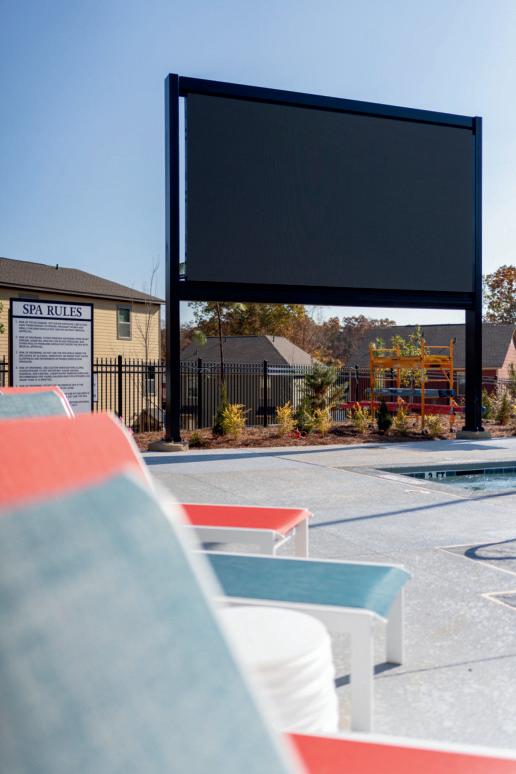

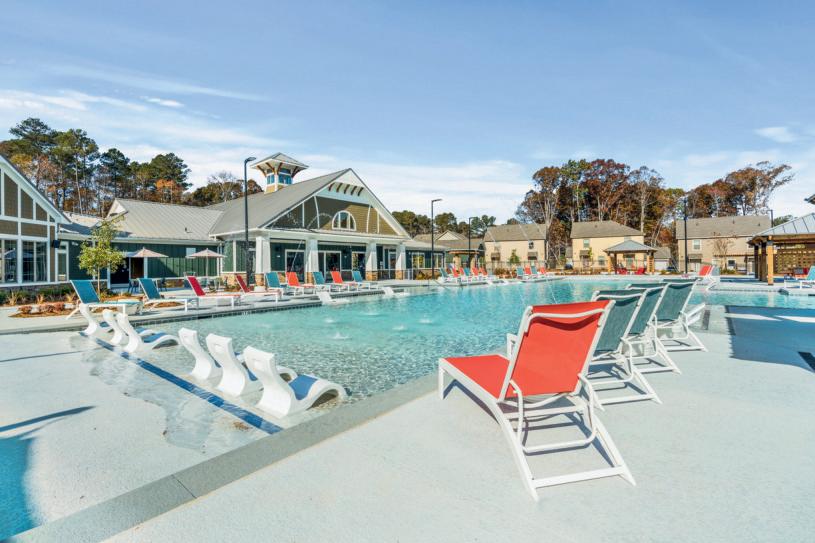


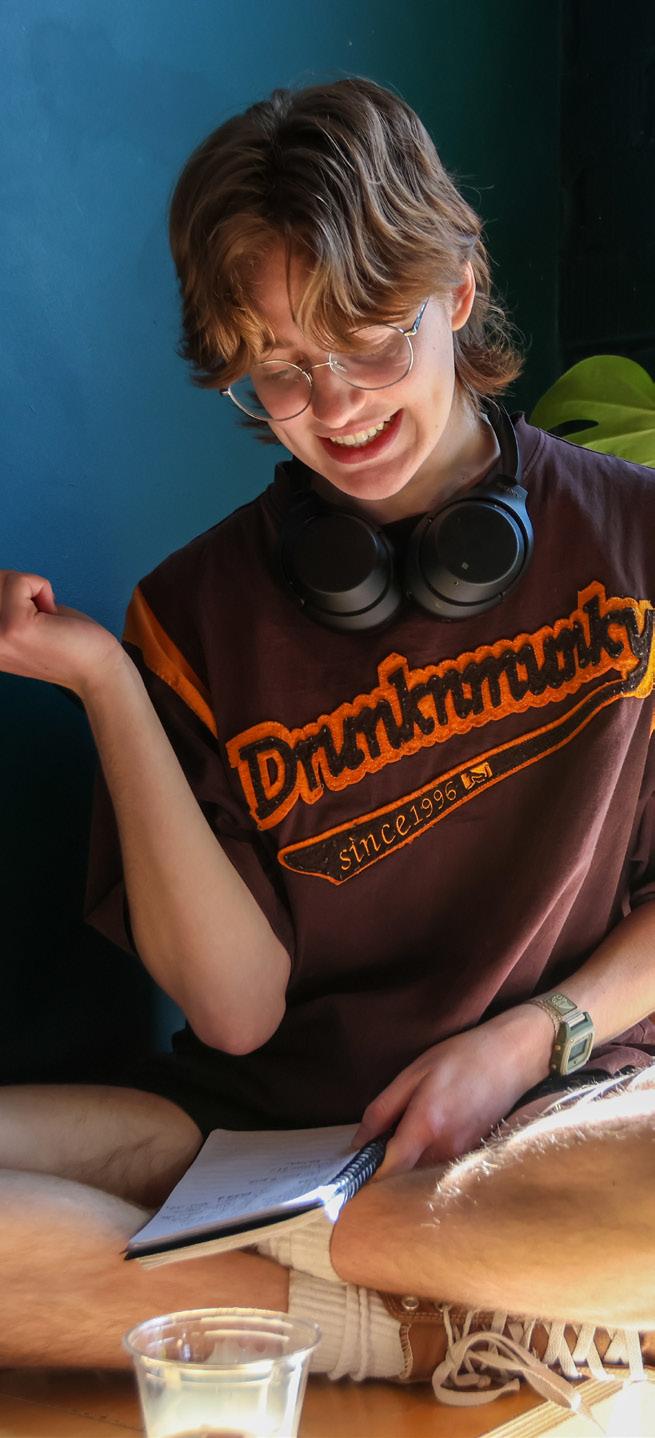
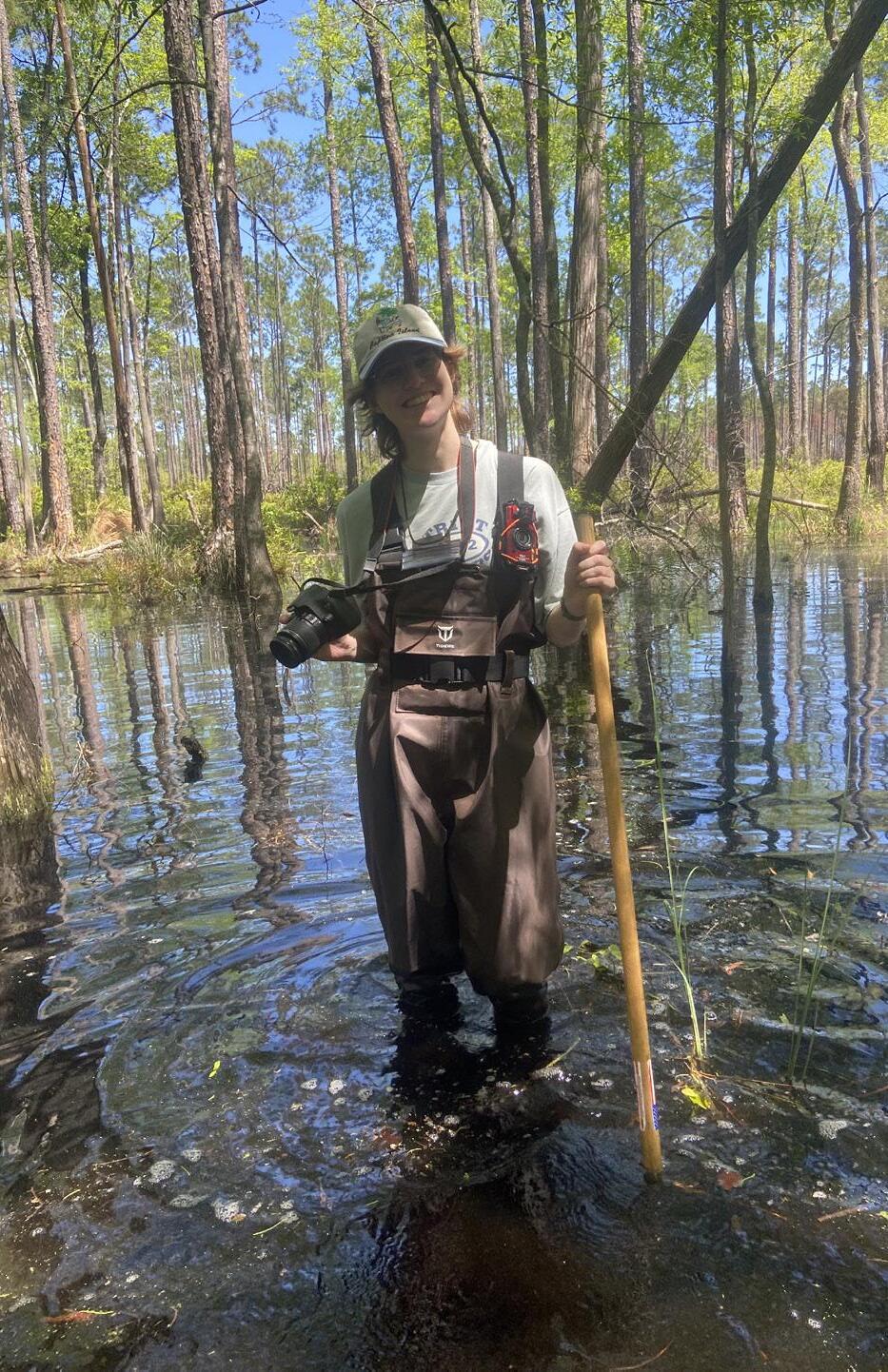 Ellis Goud | Courtesy
Ellis Goud | Courtesy
When I came to the University of Georgia, I had no idea what I wanted to do for my career, much less my major. I was interested in a lot of things, and I worried that once I made the final decision for my major, I would be stuck on that pathway for the rest of my life. So, by my sophomore year, I had changed my major four times.
Many students coming to college deal with this same problem. With almost 100 majors at UGA, how could anyone narrow it down to just one?
While your major is important, you don’t have to choose one right away, and you don’t have to stick with it. When you start college, you have to complete a variety of university requirements and core curriculum before you can move into major-specific requirements. The reason for these basic college courses is to not only round out your education but also help you with your major decision. By taking English, science, math and humanities classes, you can expose yourself to a wide range of topics and figure out what interests you.
However, taking new classes isn’t the only way to decide what you want to major in. If you’re not quite sure about what you want to do, extracurricular activities are a great way to learn about what’s out there — UGA offers over 700 student organizations to join!
If you are an incoming freshman and don’t know what you want to major in, don’t worry about sticking to one right away. You can start out undecided or pick one in an area that excites you. Take the time to explore your interests and your talents. If you find that one or more majors interest you, consider doing a double major or adding a minor or certificate. College is the time to figure yourself out – don’t sweat it if you don’t have all the answers right now.
ELLIS GOUD | Class of 2025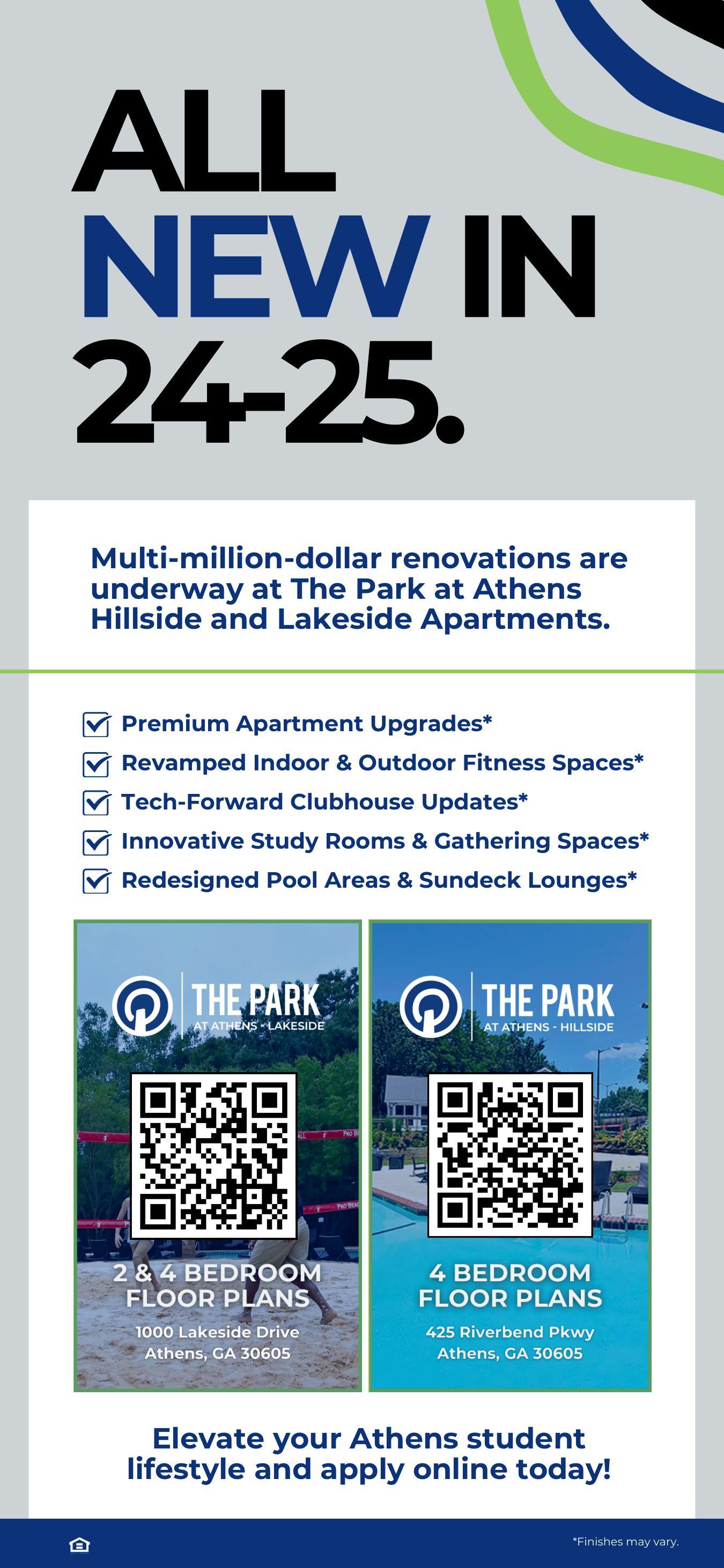
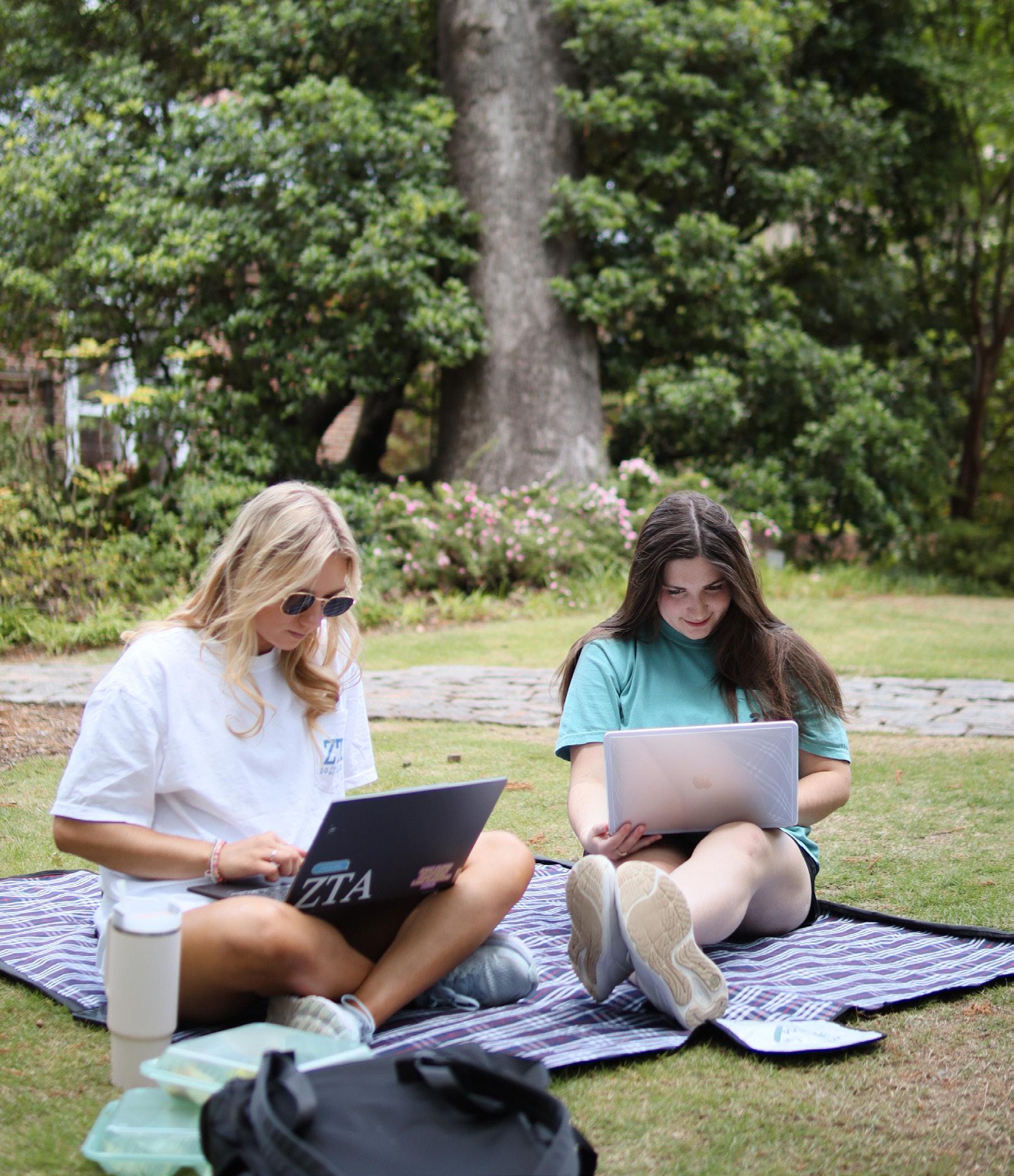
Tucked away at the edge of North Campus, this peaceful spot is just yards from Lumpkin Street but has the serene feel of a secret garden. Settle in on a bench or find a patch of shade and relax in the historic setting.
If you want to catch some rays while earning those grades, Herty — which was actually the location of the first Georgia football game — has a perfect lawn, and the fountain provides soothing white noise. There’s also a solar-powered charging station right across from the fountain.
The historic North Campus lawn is a picturesque spot popular for picnics, dates and study sessions. The trees provide plenty of shade and you’ll be just steps from downtown if you happen to need a meal, snack or sweet treat.
The picnic tables outside the Tate Student Center also offer proximity to food, drinks, restrooms and air conditioning. The area between the bookstore and the Miller Learning Center is a favorite place to hang a hammock and catch up on classwork. (Or, let’s be honest, take a quick nap.)

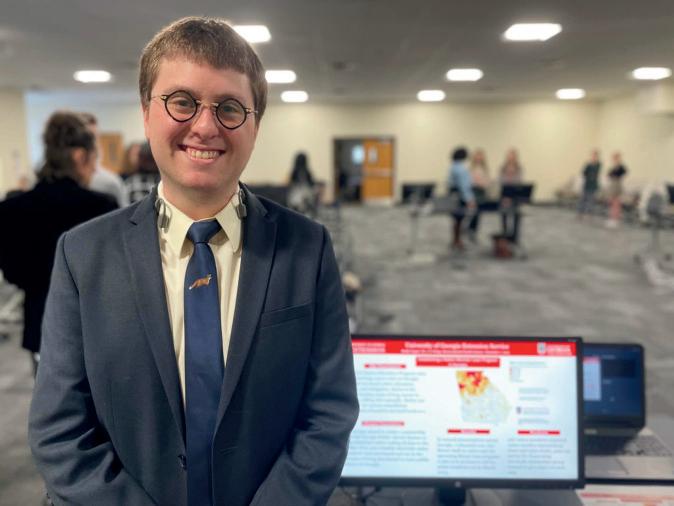
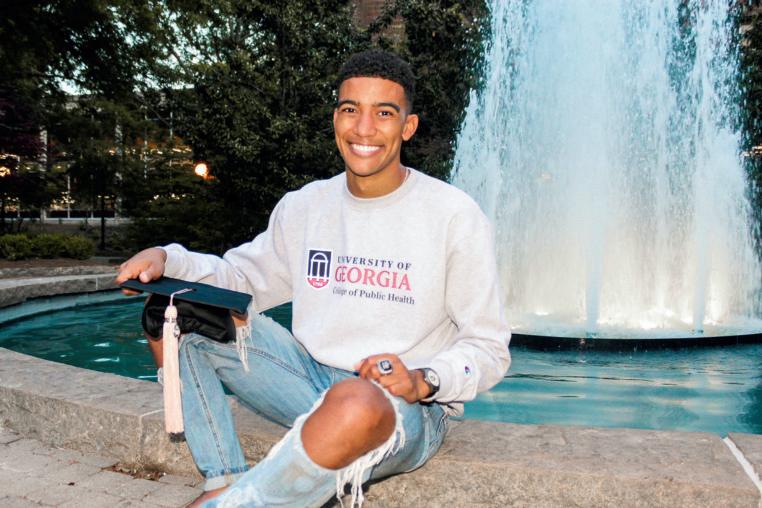
Interested in medicine, nursing, health care, the environment, or population health? Our degree pathways will prepare you for a career tackling today’s most pressing health challenges like –
Infectious disease
Reproductive health
Substance abuse
Mental health
Alzheimer’s disease and dementia
Environmental hazards
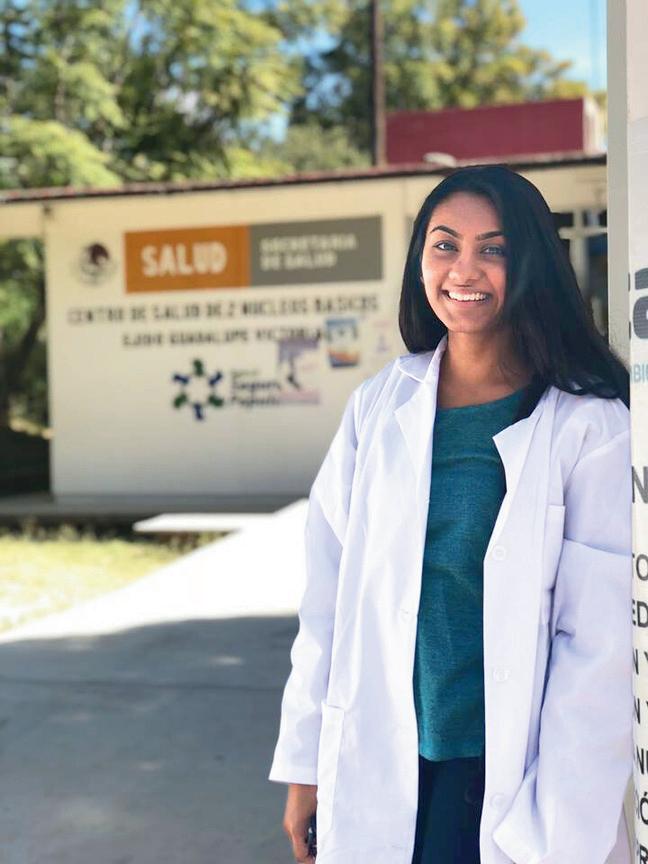







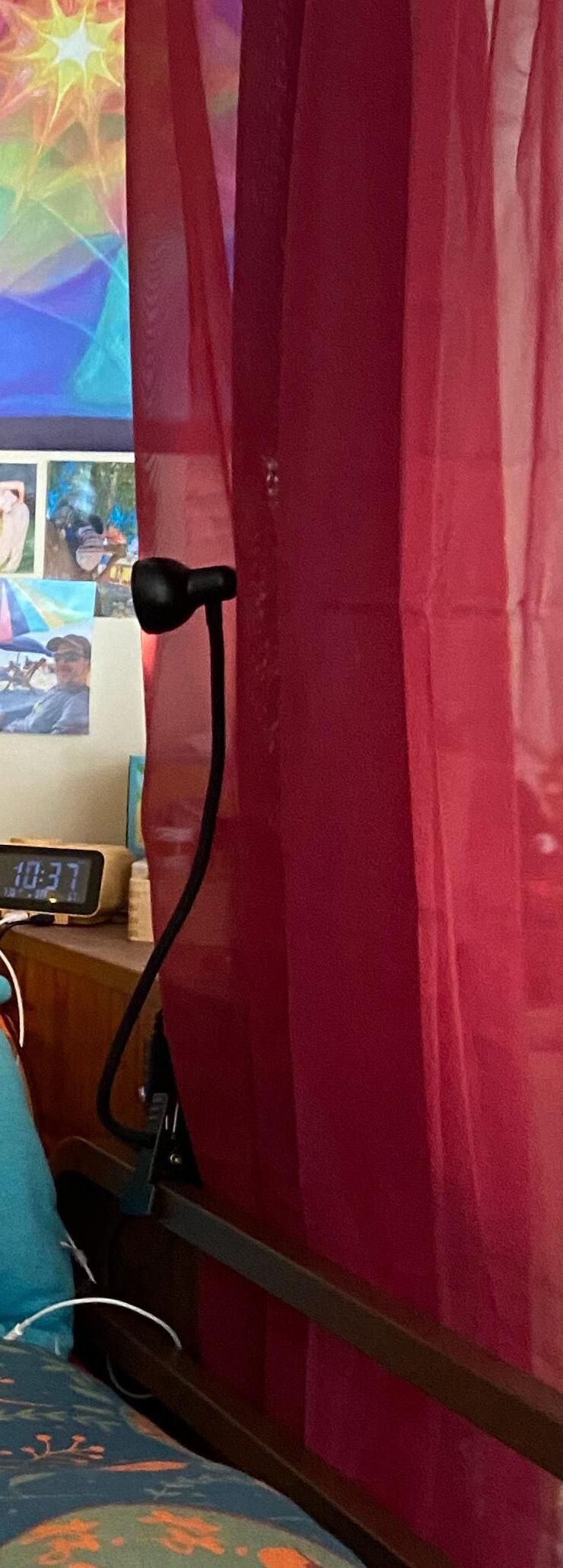

Living with hundreds of strangers will be fantastic. Really. Here are a few guidelines for making the most out of your residence hall experience.
1. BE FRIENDLY
Don’t be afraid to talk to your neighbors. Plenty of people in your dorm are feeling the same awkwardness you are. The universal signal for trying to make friends on your hall is leaving your door propped open on move-in day.
2. GO TO DORM EVENTS
Resident Assistants and other staff work hard to create a social atmosphere to promote community. Go to the events and connect with the people on your hall and in your dorm!
3. BE PATIENT
Don’t worry if you don’t find your friend group immediately, you’ll find your people in time!
4. TALK TO YOUR ROOMMATE
You don’t need to be the best of friends, but communicate enough to feel comfortable asking them to turn off the light.
5. USE THE WASHERS AND DRYERS
Do your laundry at the dorm instead of hauling it back home. Remember: You pay for all these services in your housing fees.
6. ENJOY LIVING ON CAMPUS
Take advantage of the fact that you live right on campus, you’ll miss some of the conveniences when you move off-campus! You don’t need a car to get to your classes, the dining hall or even downtown. The buses stop near your dorm, and you have more time to go back to your room between classes or work.
7. STAY SAFE
Keep your doors locked, take well-lit paths to the dorm and wear flip-flops in community showers. Take basic steps to ensure the well-being of yourself and your belongings; you’ll be living with a lot of different people.
You can survive for a couple of days without those extra-long sheets. You will not survive without shower shoes.
There will be times you need to study at night and your roommate insists on sleeping. A lamp is an investment in your room-
7 tips for living on campus and what to include on your packing checklist
ie relationship. String lights create atmosphere in a room with two default settings: pitch dark or glaring fluorescent.
Create a box with essentials — from BandAids and Neosporin to DayQuil, Emergen-C and essential medications.
This is a game-changer if you have a lofted bed. A long cord allows you to use your phone in bed at night and minimizes the journey to turn off a blaring alarm.
It’s tempting to bring cubby shelving units and to pack all your cute winter outfits. Instead, swap things out when you go home between semesters. Your dorm closet and one storage unit will be enough.
Your room has limited space and printers are bulky. You can find printers in residence hall lobbies and around campus that cost just cents per page.
Small succulents are low maintenance and will be fine. Forget about plants that need lots of natural light.
The dorms unfortunately have a strict no-candle policy, so avoid bringing these fire hazards and opt for air fresheners instead.
Movies and TV shows make it seem like you should become instant besties with your freshman year roommate. Although befriending your roommate is definitely possible, it is just as common that you and this random person won’t become best friends, or even acquaintances.
Living with someone else can be difficult, and it’s normal to have arguments, tension and maybe a few silent treatments. If you and your roommate don’t vibe, you can reach out to an RA to moderate arguments or even switch rooms if it becomes necessary. It’s most important to feel safe and comfortable in your living space.
New people in a new environment can be a recipe for awkwardness. Here are some tips on how to turn a new roommate into a new friend.
Whether it’s watching a movie, getting dinner or even doing the dishes, any time spent with your roommates will strengthen your bond (and make life much more interesting). By taking that first step and inviting your housemates to join you, you can have fun while also making someone feel wanted.
Roommates Lee Cook, second-year sociology major, and Emily Copp, second-year English major, bond best by sitting in their living room and doing homework together.
“Do something that puts you and your roommates in a space together doing something,” Cook said. “Conversation is really what helps you bond with your roommates more.”
When there is time in your schedules to go out, it’s important to invite your roommates. From going grocery shopping to spending a night downtown, making the effort to include the people you live with makes all the difference.
“It can be really hard to make the first move, but it’s essential that you be the one to put yourself out there and invite the other person to do something,” Copp said.
To make conversation smoother, find a connection you have — a shared interest, a mutual friend, or even a similar hobby.
Roommates Nina Blair, first-year theater major, and Elise Hearn, first-year classics major, met through a mutual friend and decided to live together. Now, they hang out with the same friend group.
For roommates who don’t have an established social connection, they recommend finding out what you have in common.
“See what you can connect with. See what you can talk about,” Blair said.
Once you find a shared interest, talking to and hanging out with your roommates might not seem as daunting as it did before, as you’ll always have a conversation topic to fall back on.
When you’re living with other people, it’s important to work through things together.
After living together for three years, fourthyear ecology majors Isaac Wood and CJ Jones have been through it all, from simple miscommunications to dinner disputes.
“Communicate about things even when it is awkward,” Wood said.
Darion Deviez, second-year biology major, lives with three other roommates, including his brother. He says it is most important to check with your roommates about boundaries and expectations to avoid having any fights.
“Have meetings,” Deviez said. “Definitely talk about expectations with living together.”
Once you and your roommates can discuss issues and solve them together, you will find that living together becomes much more fun.
All photos by Ellis Goud
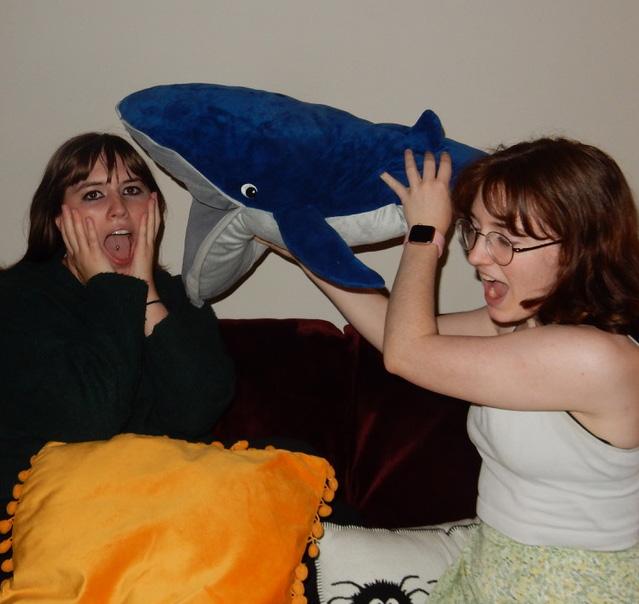

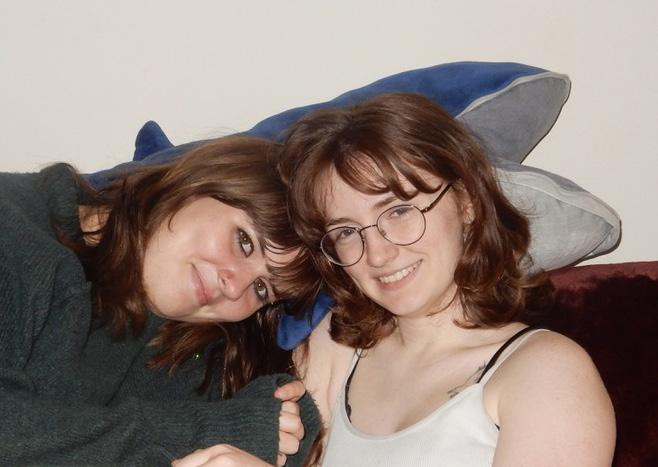

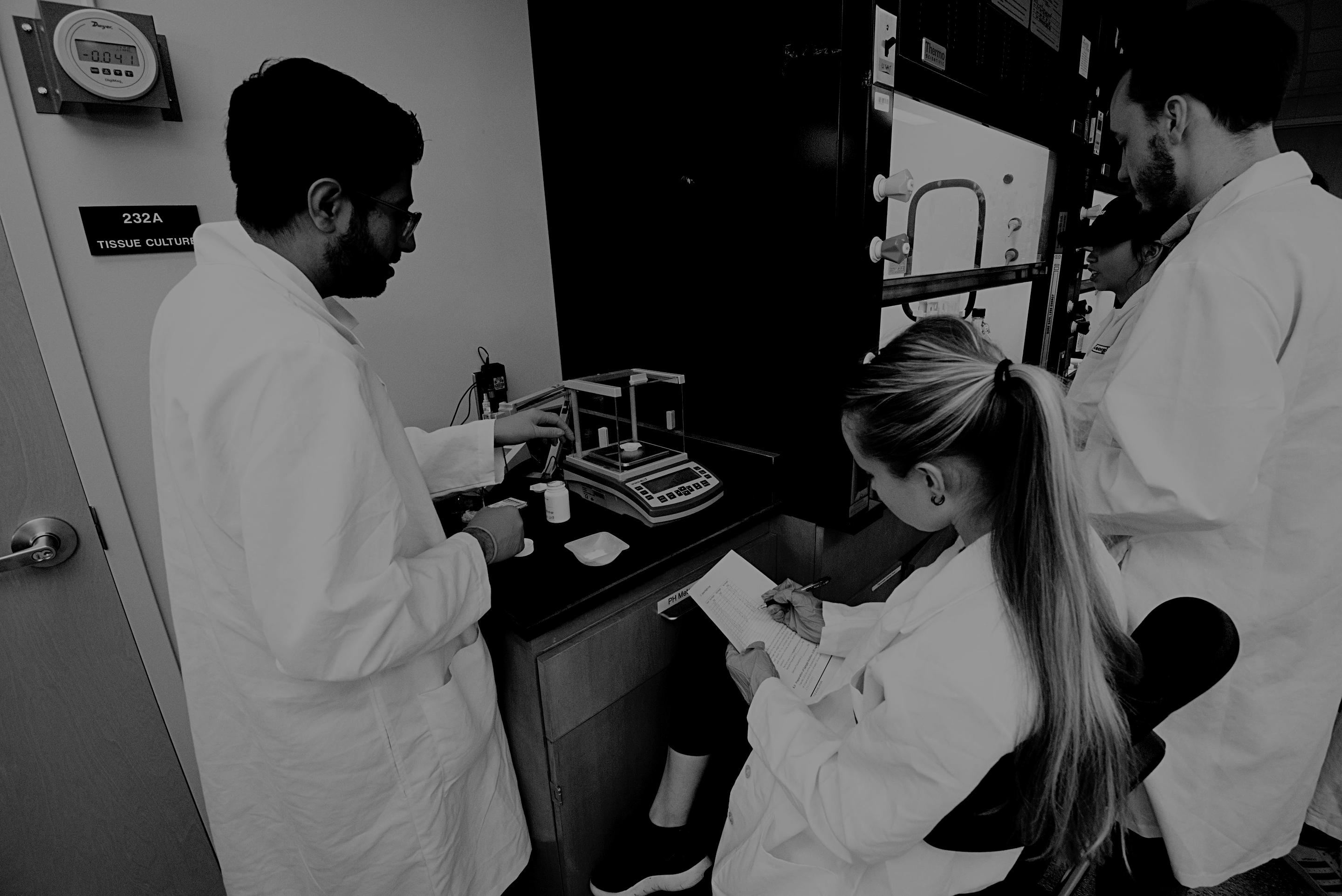


Entering UGA as a transfer student can be daunting. Whether transferring was always part of your plan or a last-minute decision, it can be both exciting and scary to start at a new school. At a university as big as UGA, you will be surrounded by students who have been here longer. Here are some tips for finding your way after transferring.
UGA is an impressive 767 acres sprawled across a large part of Athens, Georgia. Names like North Campus, South Campus and Health Sciences can sound overwhelming, but there are ways to navigate it.
Mickie Barthelemy is a fashion merchandising major who transferred from Gwinnett Technical College. Her number one piece of advice for new transfers trying to navigate the bus system is to get the app.
“This app will be a student’s best friend when trying to locate their classes and arriving at their destination on time,” Barthelemy says. “Using the category Transportation/ Navigation will allow the student to access stops, routes and buildings around campus.”
Finding friends and a community can be intimidating no matter who you are. Luckily, UGA offers a huge variety of clubs, organizations and athletic opportunities to help you find a niche.
Michael Howard, a management information systems major, notes the importance of taking advantage of every opportunity and finding your people.
“As a transfer student, you (often) come in with nobody,” Howard says. “So it’s really important to be open.”
As the current social justice chair of the Black Affairs Council, Howard notes that getting involved in one’s community is a great way to stay connected, as well as putting yourself in spaces like the Tate Student Center, where you can meet and interact with new people. Look for fun things to do in Athens, like trying out the great restaurants and bars or going to concerts around town.
UGA’s academic rigor can feel like a big change.
For Adrian Gutierrez, a management information systems major, he found that coming to UGA required him to adopt new study techniques to adjust.
“One of the things I did was buy a calendar, so I could put important dates from the syllabus there,” Gutierrez said.
There are also many resources available for students having trouble with a particular course. The Division of Academic Enhancement (see page 52) offers free tutoring that connects students with other peers who have taken their classes.
While UGA can seem intimidating at times, don’t be afraid to ask for help. Make sure to take advantage of all the resources and opportunities available to you, because you never know which will bring you closer to finding your community and achieving academic success.





All eligible UGA students, faculty & staff have free access to some of the most widely-used productivity software from Microsoft. For more information about Microsoft 365, visit the link in the QR code.



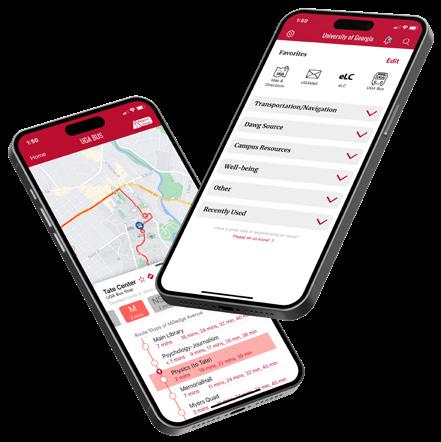



Dining Services offers several great benefits to our student employees, including:
• Flexible Schedules —work between classes
• Free Meals —one for every shift worked
• Pay Increases —for every semester worked*
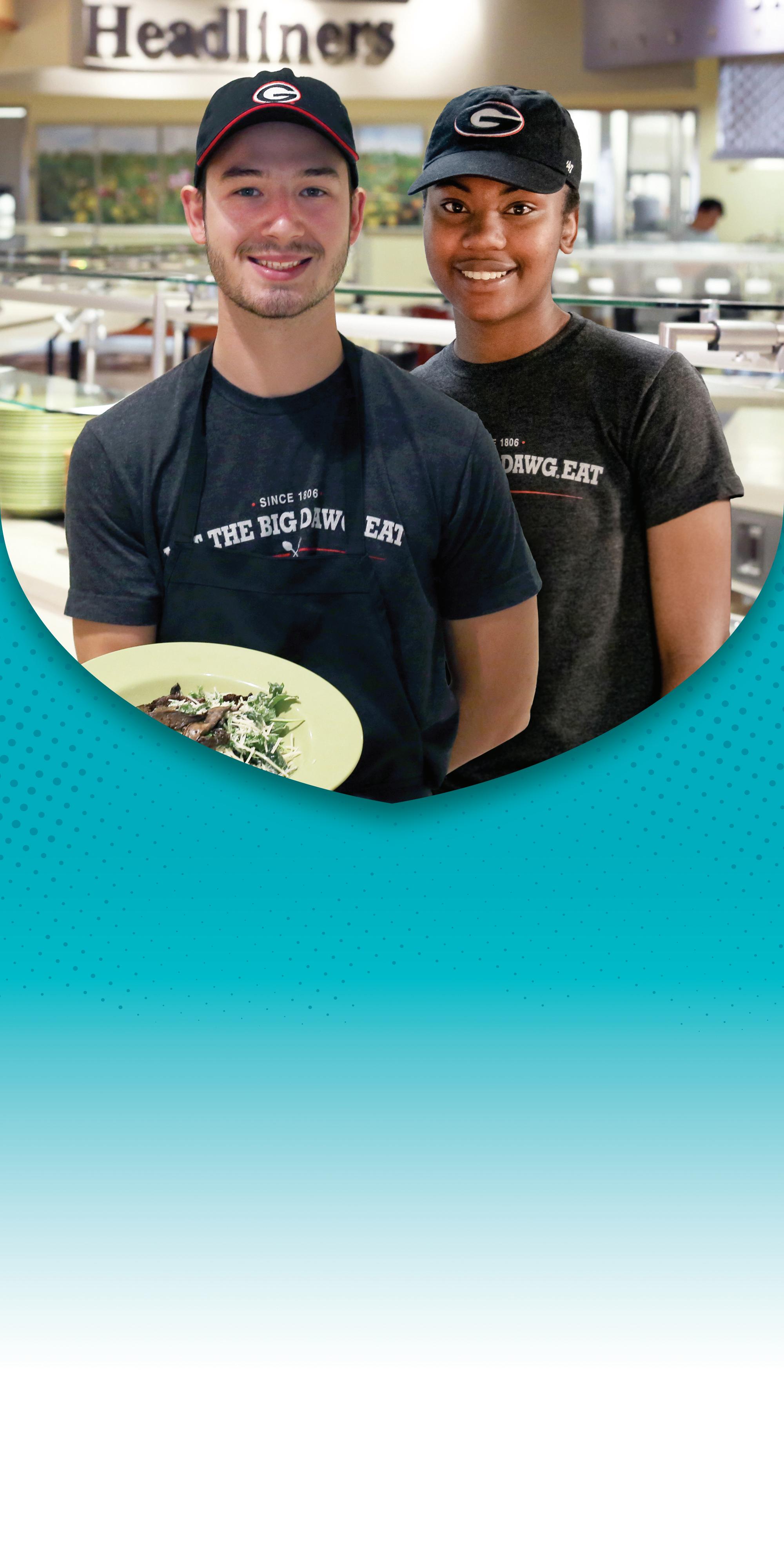
scan to learn more
*minimum number of hours required
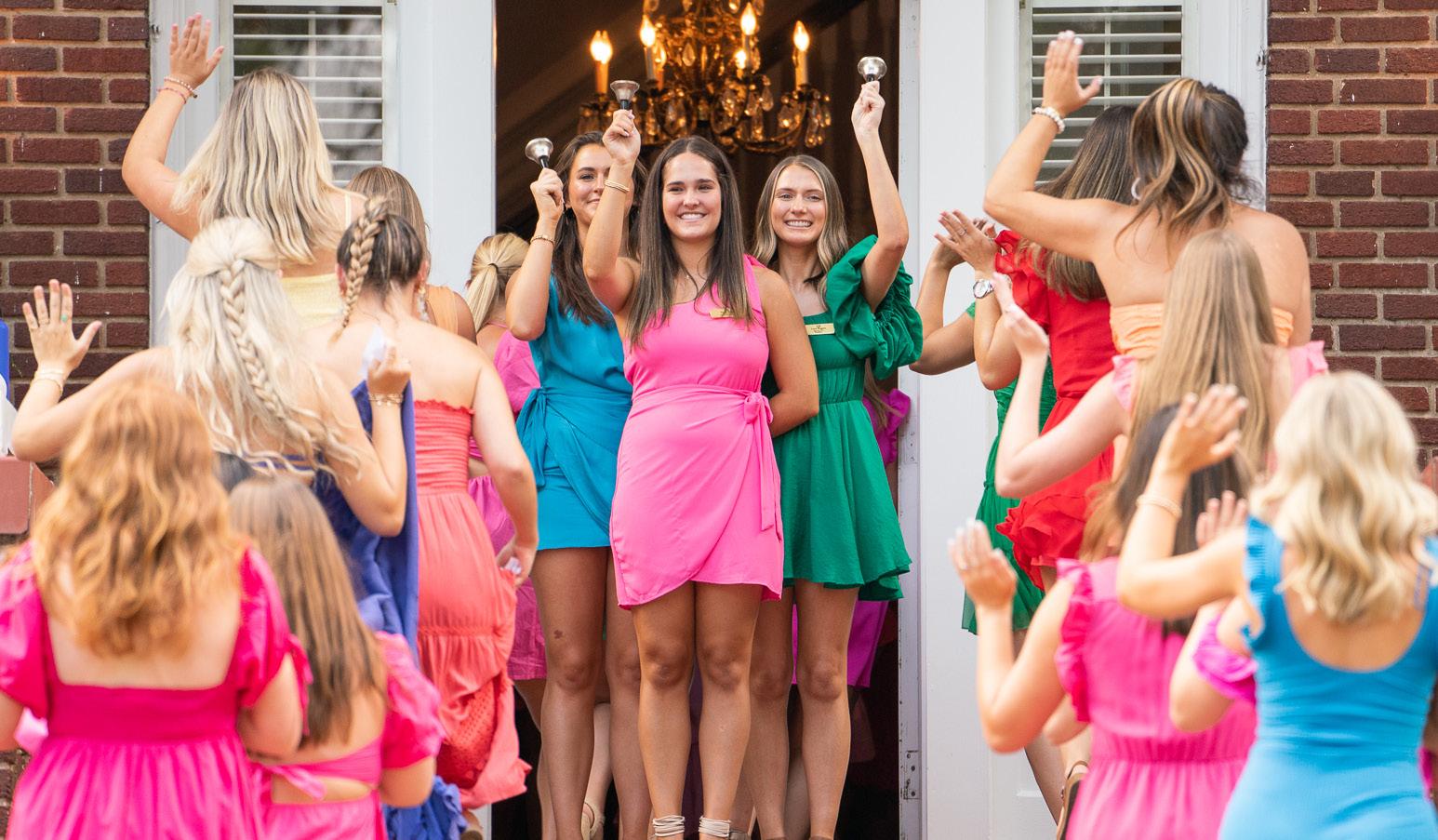
I wanted to embrace every opportunity with an open mind
To me, the decision to apply to the University of Georgia felt logical. I had family nearby to help me out and the school has a great program for my major. What I failed to consider was what would happen when I actually got here. Before I knew it, college decision day had rolled around and I was about to be a Dawg. And I was freaking out.
Coming from out of state, I had a curated image of UGA in my mind. The letters SEC and everything attached to them seemed to follow me everywhere I went. I had convinced myself I was going to a school that socially accepted only one type of person, and it was a type of person I didn’t consider myself to be. Suddenly the logic I had based my decision on was ripping apart at the seams.
One big stressor for me was whether or not to rush. The options bounced around in my mind, mixed in with others’ opinions of sororities — both good and bad. My frantic Google searches only added to the confusion.
One part of me thought I had to rush. I thought it was the only way to “fit in” and make friends. The other half of me felt lost. Me rushing? It felt ridiculous. I spoke to everyone I knew involved in Greek life, trying to gain some insight on what recruitment even meant. Would I have to dye my hair? The answer to that one was always no, thank god.
I eventually decided, Google searches exhausted, that I would rush. I figured that if nothing else, going out of state meant that I should try something new. I remember the day I signed up, just a few hours before the deadline to register. I completed the form with some hesitance but submitted it nonetheless.
Just a week after confirming my path to sorority recruitment, I attended orientation at UGA. One of the things that stuck with me came from my orientation leader: He sat down and looked around at us, the room mostly quiet other than the buzz of nerves and excitement from the participants. He told us the most important thing about coming to college was to have an open mind — to be accepting of everyone, to go out of your comfort zone and meet people you wouldn’t ordinarily be friends with.
Something about this talk changed my perspective entirely. I made the decision to make the most of my experience no matter what it brought me.
Recruitment itself was one of the strangest things I’ve ever experienced in my life. I drenched pretty dresses in sweat and then again in tears. I met some of the most wonderful and important people in my life today. I was confused and scared but I made it out alive and a year later, I’ve found myself with a community of friends that support me every day.
But that isn’t close to the summation of my experience at UGA. I misjudged what it meant to be in a sorority here, but I misjudged just about everything else too. This is a school with hundreds of opportunities around every corner and Greek life is just the tip of the iceberg.
There’s more to a school than what it looks like at a distance, and in my experience, with an open mind, there will always be a good time following close behind.
JILL WARD | Class of 2026One thing I knew about the University of Georgia before I came here was that Greek life is a big part of the student experience. Because I wasn’t interested in joining a sorority, that perception worried me as I started my freshman year.
Many people I knew who attended UGA found a close group of friends in their sorority. It seemed like a great way to start a scary new chapter — with a group of people by your side.
As tempting as it was to look into joining a sorority, I decided ultimately it was not the path for me. I personally felt like the social circle of Greek life was too limiting of a space.
One of my big hopes for college was that I would have the opportunity to meet all kinds of new people. I felt I could expand my circle so much more and diversify my time in college if I focused on making friends outside of Greek life.
That’s not to say I don’t sometimes regret my decision. A big factor in my choice was simply my unfamiliarity with the recruitment process. I had no clue what it meant to rush or pledge or
In my two years at UGA, a lot of those stereotypes have been broken. I have seen friends and relatives benefit profoundly from their involvement in Greek life, and I have seen many people make lifelong friendships within their sorority. Without that kind of social framework, it can be a challenge to make and maintain friendships in college.
But it is by no means impossible. If you are starting college and feel like Greek life isn’t for you, my first piece of advice would be to not rule it out. Reach out to someone who is involved in Greek life and ask them about their experiences to see if it’s right for you. But if you, like me, still don’t feel like it’s your thing, don’t be afraid to look elsewhere for a social life. While it may seem that everyone at UGA is involved in Greek life, approximately 73% of students are not, according to Student Affairs.
But you probably won’t make friends sitting alone in your dorm room. So regardless of whether or not you decide to get involved with Greek life, don’t be afraid to get out there and meet new people.



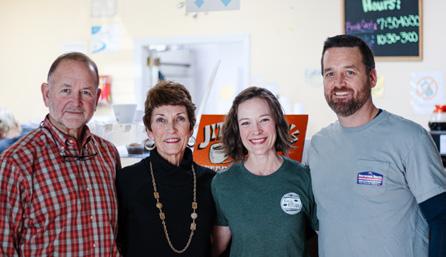
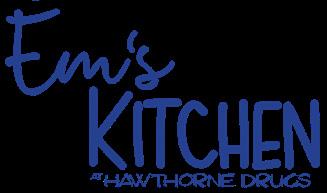
Breakfast Hours: Monday - Friday 7:30 am - 10:30 am
Lunch Hours: Monday - Friday 10:30 am - 3:00 pm
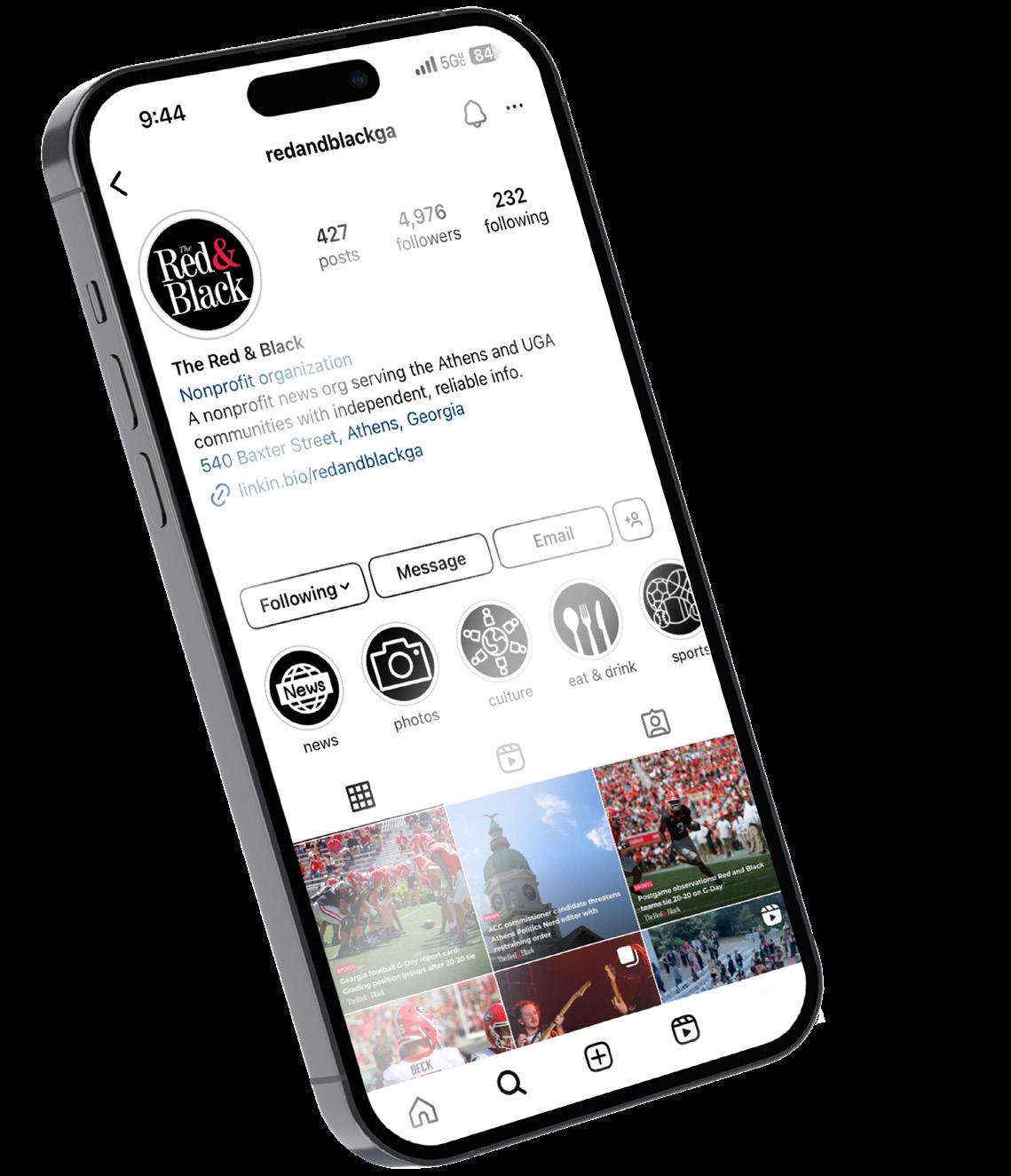
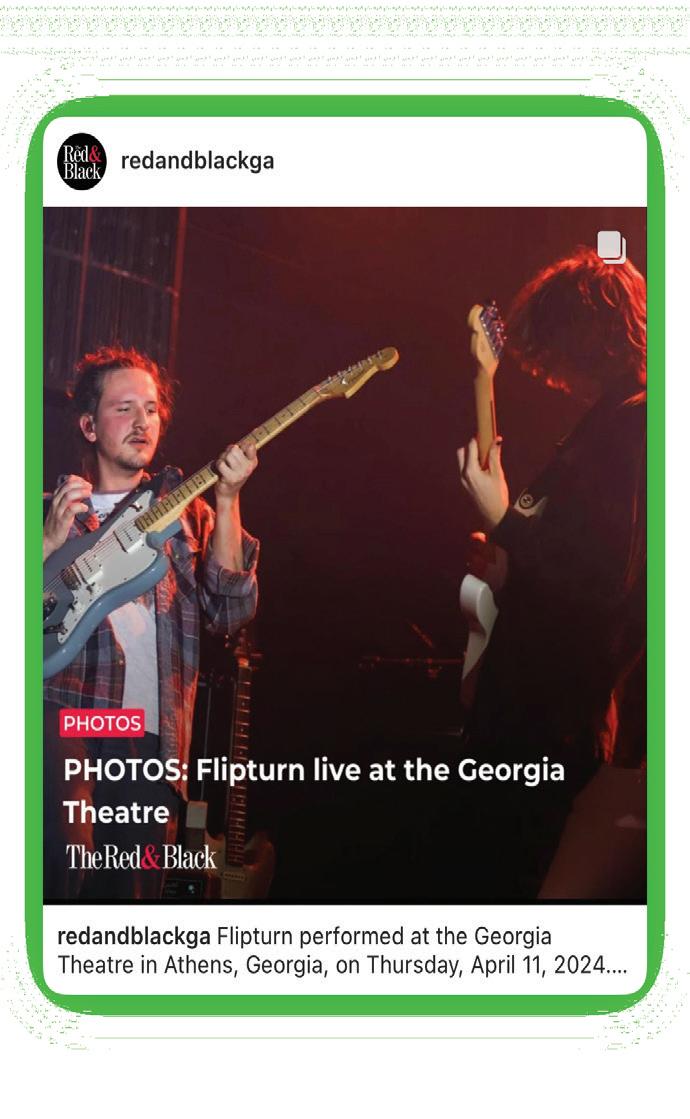


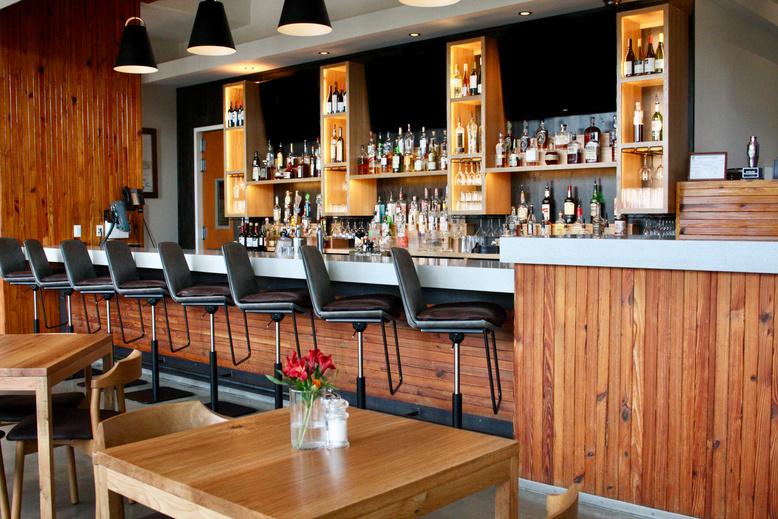
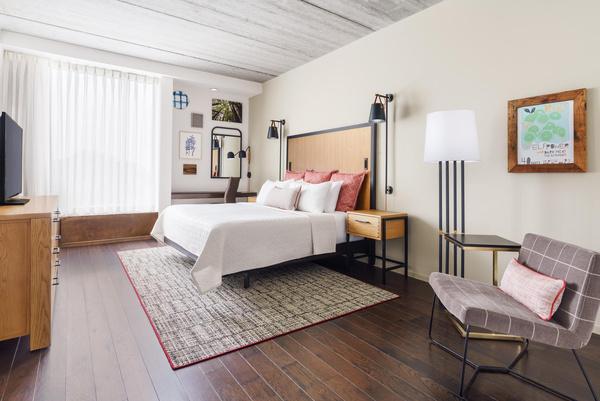
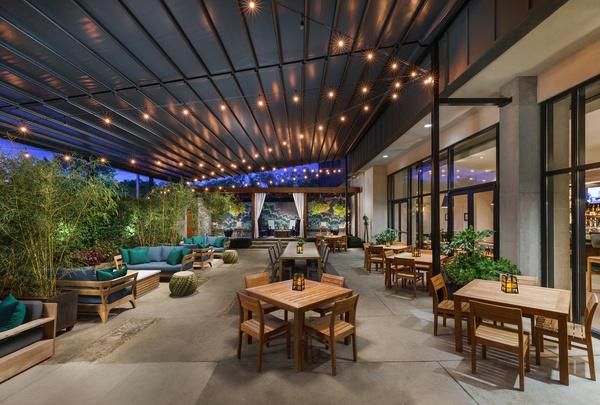
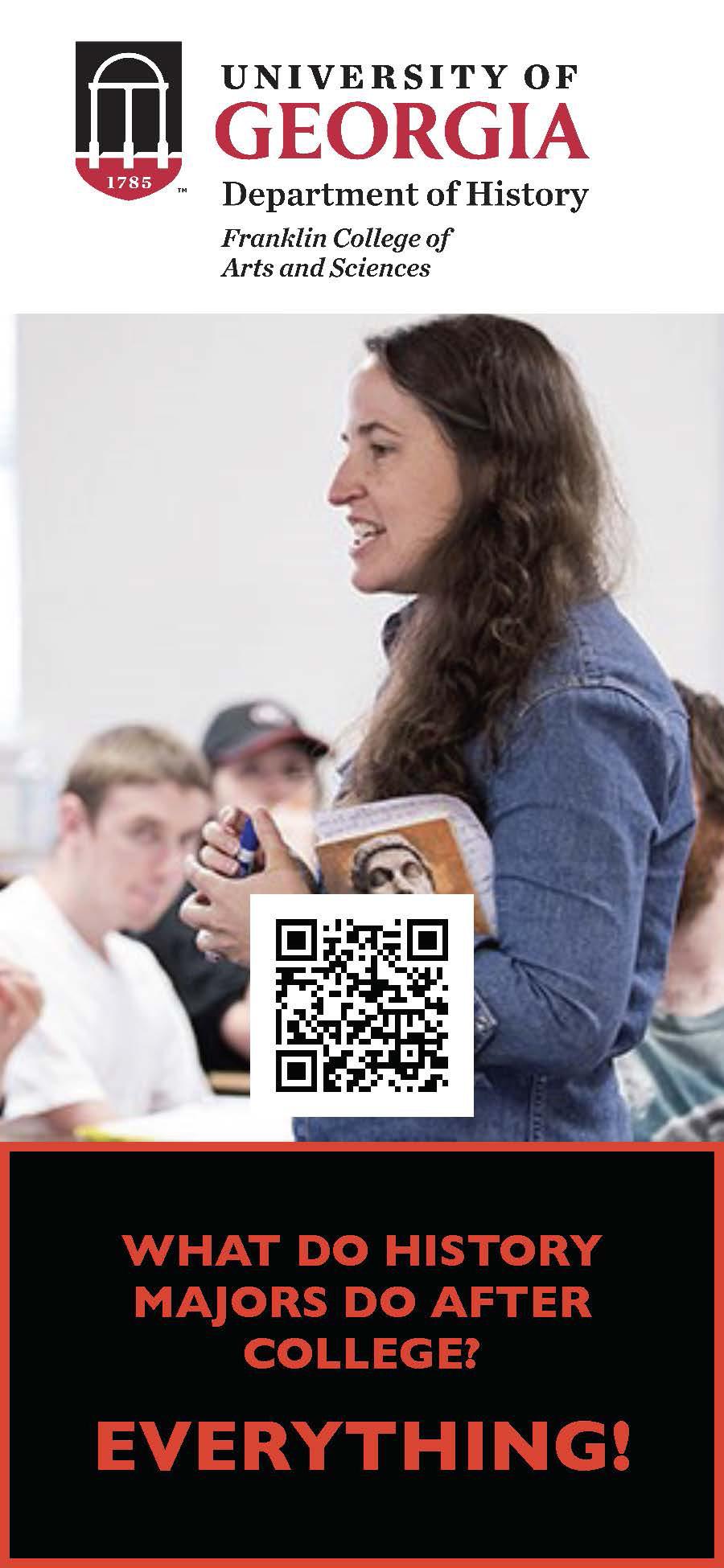

There’s really nothing like a Saturday in Athens in the fall. Georgia fans arrive by the tens of thousands to Sanford Stadium to watch the Bulldogs play between the hedges, while hundreds more flood the streets and businesses downtown.
After a 3-point loss to Alabama in the 2023 SEC Championship dashed Georgia’s hopes of going to the playoffs, the four-time national champions are ready for a comeback in 2024.
Georgia’s season opener will be against Clemson on August 31 at Mercedes Benz Stadium in Atlanta. The first home game will be the next weekend on September 7 against Tennessee Tech. Other key matchups in Sanford Stadium include Auburn, Tennessee and Georgia Tech. Here are some tips on how to navigate these games and have the best student section experience possible.
The only drink that you should be heavily consuming on gameday is some good old H2O! You can bring in one unopened water bottle, but there are plenty of drink kiosks and concession stands throughout the stadium that will allow you to remain hydrated. Water is the fuel that will get you through a long day between the hedges.
The September heat can be pretty grueling early in the season, especially in the student
section that rarely gets any shade. Wear a hat that provides shade, bring sunscreen and reapply as needed. As the season progresses and the weather cools down, pack layers and hand warmers.
Rain is a possibility all semester long, and umbrellas aren’t allowed in Sanford Stadium. A poncho or rain jacket could be the difference between a great gameday and a cold, uncomfortable one.
The process of getting through the student gate and into the stadium before a big game is not exactly known for its efficiency. Don’t arrive at the gates 20 minutes before kickoff expecting a smooth entry process. Get there around an hour early (or two, suit yourself), find some good seats in the student section and soak in the pregame atmosphere. For marquee matchups (see schedule on page 34), it’s probably necessary to get there even earlier if you want decent seats.
A good gameday outfit is essential. One of the best parts of any Saturday in Athens is seeing the thousands of Bulldog fans decked out in red and black. If you don’t have a jersey or Bulldog-themed attire, opt for headto-toe red and black. See page 60 to learn where to find merch, gameday clothes and accessories all over town.
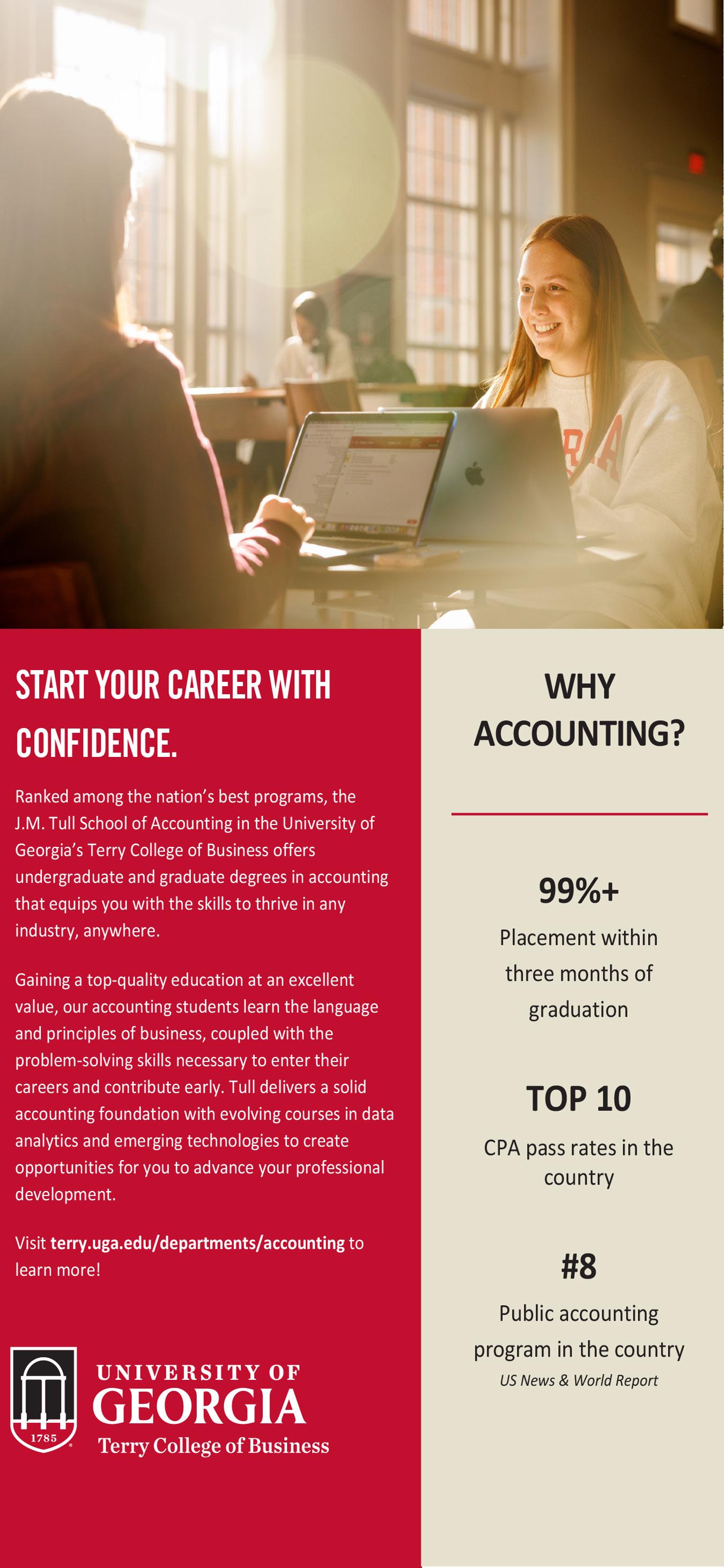
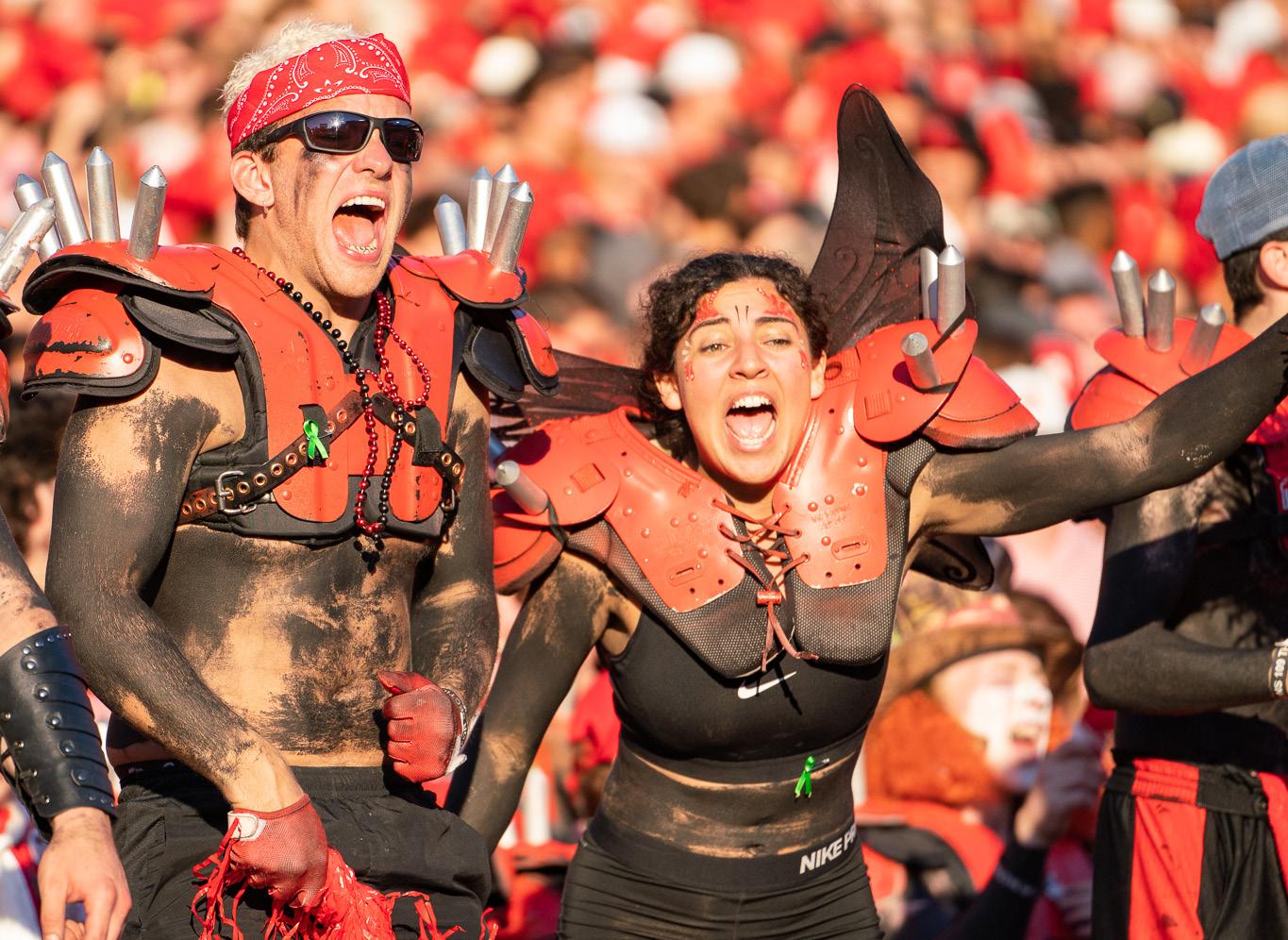
Scanning your student ticket and immediately leaving the stadium to avoid getting a strike is a move that should only be made in the most dire of circumstances. Heading home at halftime is more common, but staying for the whole game isn’t the impossible feat that some act like it is. If you’ve got the energy, it’s worth it to celebrate a win in the stadium and hear the Redcoat Marching Band play both the halftime show and the post-game concert.
A storied program like Georgia understandably has a laundry list of rituals, chants and cheers that date back to the days of leather helmets. Unless you want Larry Munson rolling in his grave, you need to know the two simple words which express the sentiments of the entire Bulldog nation – Go Dawgs. Get ready to call the dawgs, spell “Georgia,” point towards the upper South Deck as the Battle Hymn is played and light up Sanford before the fourth quarter.
If you forget any of the above tips, all can be forgiven if you go to Sanford Stadium and root for the Bulldogs like your life depends on it. Be respectful to your fellow fans as well as those of the other team, but when it’s time to cheer, be a part of the reason Sanford is one of the hardest stadiums to play in all of college football. Have fun with it and enjoy your time between the hedges!
AUGUST 31 | CLEMSON Mercedes Benz Stadium
SEPTEMBER 7 | TENNESSEE TECH Sanford Stadium
SEPTEMBER 14 | KENTUCKY Kroger Field
SEPTEMBER 28 | ALABAMA Bryant–Denny Stadium
OCTOBER 5 | AUBURN Sanford Stadium
OCTOBER 12 | MISSISSIPPI STATE Sanford Stadium
OCTOBER 19 | TEXAS Darrell K Royal Memorial Stadium
NOVEMBER 2 | FLORIDA EverBank Stadium
NOVEMBER 9 | OLE MISS Vaught–Hemingway Stadium
NOVEMBER 16 | TENNESSEE Sanford Stadium
NOVEMBER 23 | UMASS Sanford Stadium
NOVEMBER 30 | GEORGIA TECH Sanford Stadium
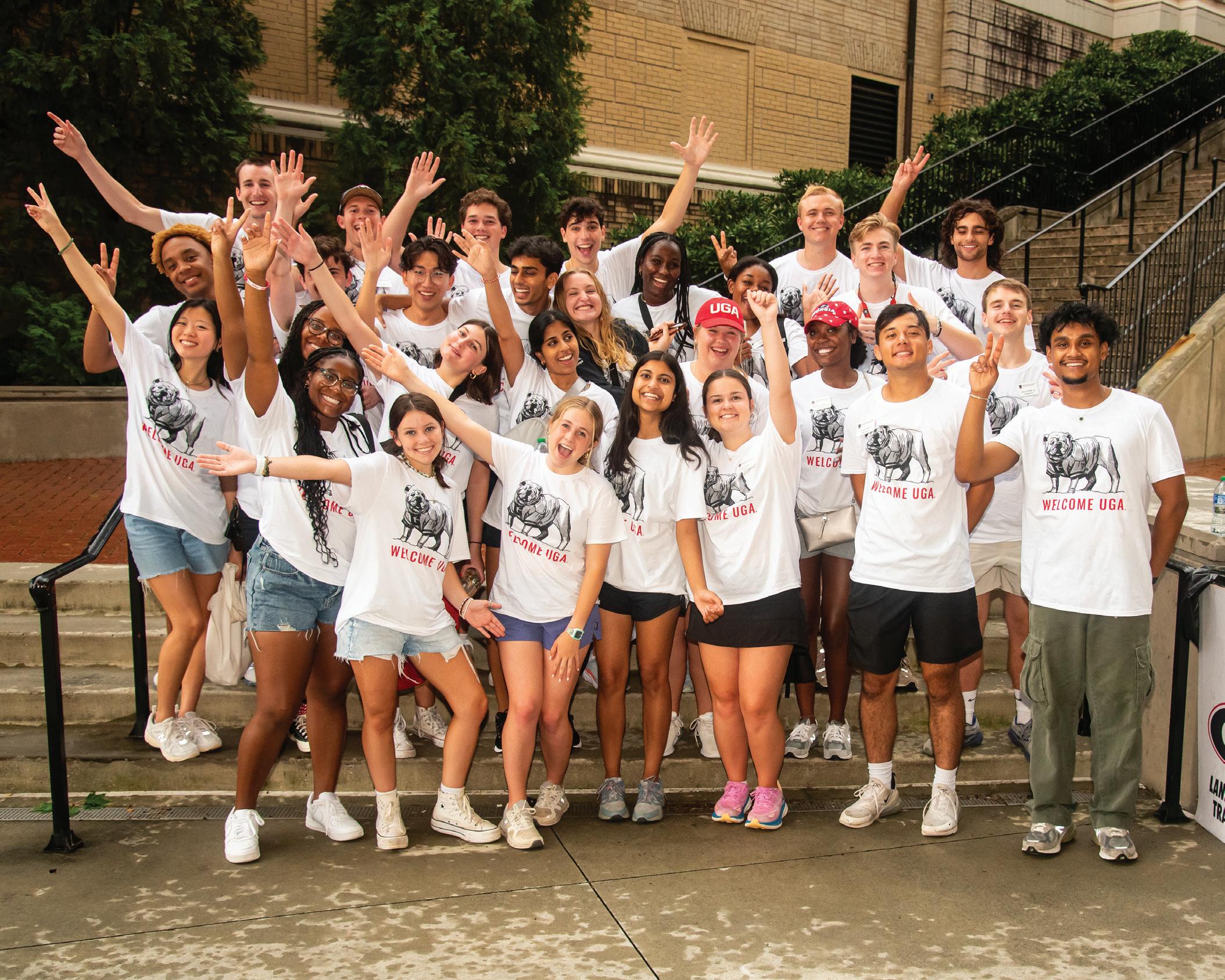
The University of Georgia offers hundreds of clubs and organizations that help students find their niche. As you look for ways to get involved, consider what’s important to you.
College is a time to experiment. There’s probably no other phase of your life where you’ll be offered so many different activities and experiences to try. UGA’s hundreds of clubs allow you to learn skills ranging from the intricate to the obscure. A few examples include the Ballroom Dance Club, Aviation Club, Juggling Club and Knit and Crochet at UGA.
Head outside with ag clubs like Block and Bridle, a livestock club affiliated with the College of Agricultural and Environmental Sciences. There are hiking and rock climbing groups too, like the Outdoor Adventure Club.
Join one of the 40+ UGA club sports teams. This will allow you to hone skills, meet new people and travel to compete. Hockey, lacrosse and rugby are just a few of the teams you can join.
From our local ranch to your table!
We carry our very own beef: individual cuts packaged fresh, vacuum sealed and frozen. No added hormones, antibiotics, preservatives or nitrates. Certified USDA inspected.
We carry local pork, chicken, lamb, raw milk, farm fresh eggs, fresh produce, rubs, marinades, sauces, salad dressing, charcoal and so much more! www.RosiesHometownMeats.com
706.705.6367
1973 Hog Mountain Rd, Ste 101 Watkinsville, GA 30677
It’s an honor to be at your table!
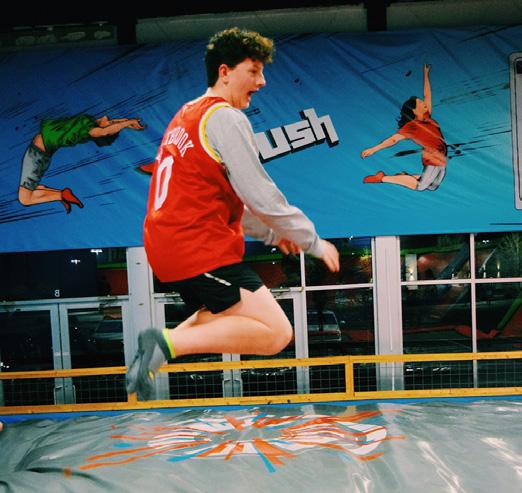
Exercise your competitive nature with groups like eSports at UGA or the Board Game Club at UGA. The Tate Student Center also has a game room with multiple screens, a rotating selection of video games and oldschool arcade units.
Take part in events like UGA Miracle’s 24hour Dance Marathon, which in February raised more than $1.4 million for Children’s Healthcare of Atlanta, or the SDT Greek Grind dance contest, which raised over $130,000 for Prevent Child Abuse America in 2023.
Fundraising doesn’t always have to be a dance-related event, of course. Local restaurants and breweries host percentage nights or benefit concerts in which a portion of sales benefits a club or cause.
Almost every weekend brings a 5K or fun run. Not all runners are human — in the Pre-Veterinary Medicine Club’s annual Dawg Jog 5K, dogs and owners compete to raise funds for animal-related causes.

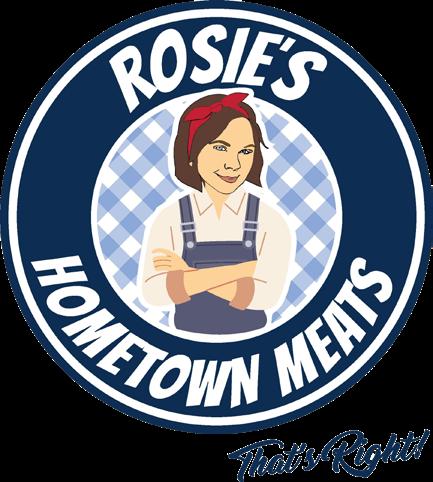
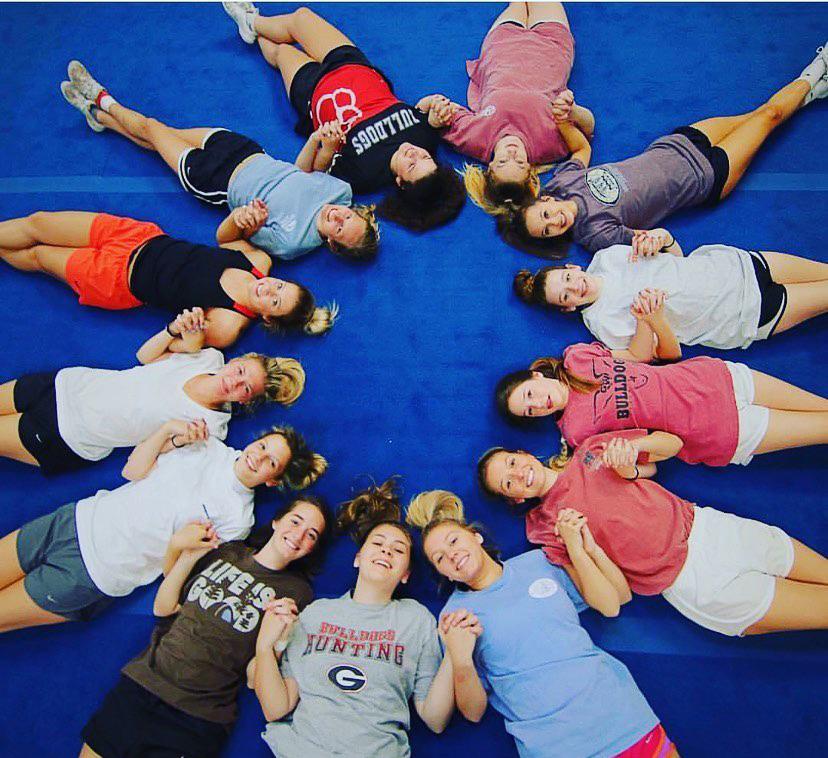
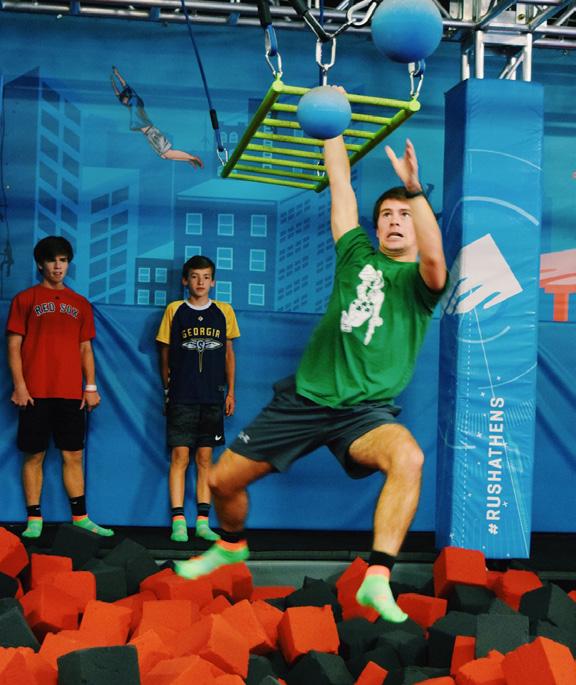
Visit rushathens.com to start jumping! B N U O C E into the school year with


Several groups let you help students or Athens residents. Designated Dawgs provide safe rides home for students. Extra Special People helps support people with developmental disabilities. The UGArden Club works with the student-run organic farm to raise sustainably-grown produce, which is then distributed to the community. The Backpack Project of Athens distributes meals, necessities and care packages to local people experiencing homelessness.
Just about every field has a student group at UGA. They offer ways to learn about what it takes to transition into your intended career. Clubs organize networking events, speakers and



workshops. A few examples are UGA’s student chapter of the American Society of Microbiology and the UGA Economics Society.
There’s no shortage of cultural organizations or communities to join at UGA.
The Pride Alliance and Pride Center offer support and advocacy for the university’s LGBTQ+ community and its allies. ASL Dawgs provides resources for UGA’s Deaf community and anyone interested in learning about American Sign Language and Deaf culture.
Cultural organizations include the Asian American Student Association, the Hispanic Student Association, the African Student Union, the Filipino Student Association, the Indian Cultural Exchange and the Russian Club. The International Student Life office at UGA offers resources and hosts events like the annual International Street Fest.
There are a number of religious organizations on UGA’s campus serving many faith communities. The Wesley Foundation, which meets at the Wesley Main Chapel on Wednesday evenings, is one of the largest Christian organizations on campus.
There are also smaller Christian groups including the Baptist Collegiate Ministries.
The Muslim Student Association serves as both a network for Muslim students and a voice for their community on campus.
Many Jewish students will gather at Hillel to enjoy free Shabbat dinners and services, and Catholic students can find a home at the Catholic Center.
You can get involved in the Student Government Association and represent your class and your interests at the university level.
The Residence Hall Association represents more than 9,000 students. You can take part as a committee member, floor representative or on the executive committee.
You can also join a group that focuses on your area of study, like Ag Hill Council, which advocates for South Campus.
Some of the oldest organizations on campus are the Demosthenian and Phi Kappa literary societies, which fuse debate and discussion with social activities. For a more competitive focus, consider the Mock Trial team.
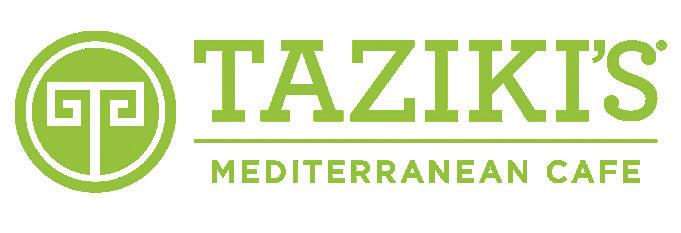

“There is comfort in knowing whenever I’m facing a decision in my UGA journey, there is someone in my corner.” – UGA student
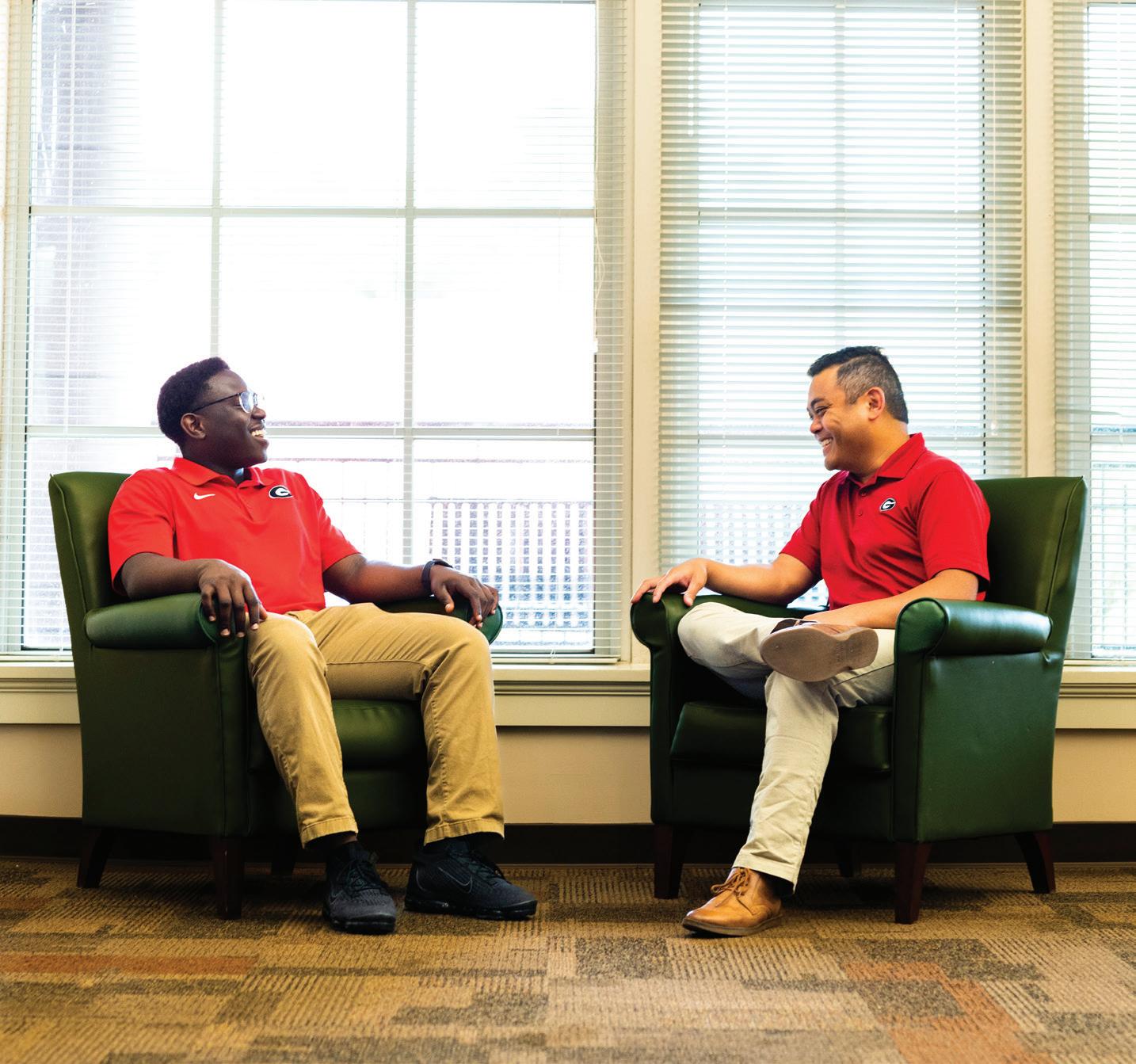
COLLEGE AND BEYOND CAN BE OVERWHELMING.
The UGA Mentor Program can help you find and connect with a mentor who shares your interests and background.
GETTING STARTED IS SIMPLE.
• Create a profile on our digital platform.
• Watch a brief orientation video.
• Request an alumni, faculty or staff mentor based on your search criteria. FIND

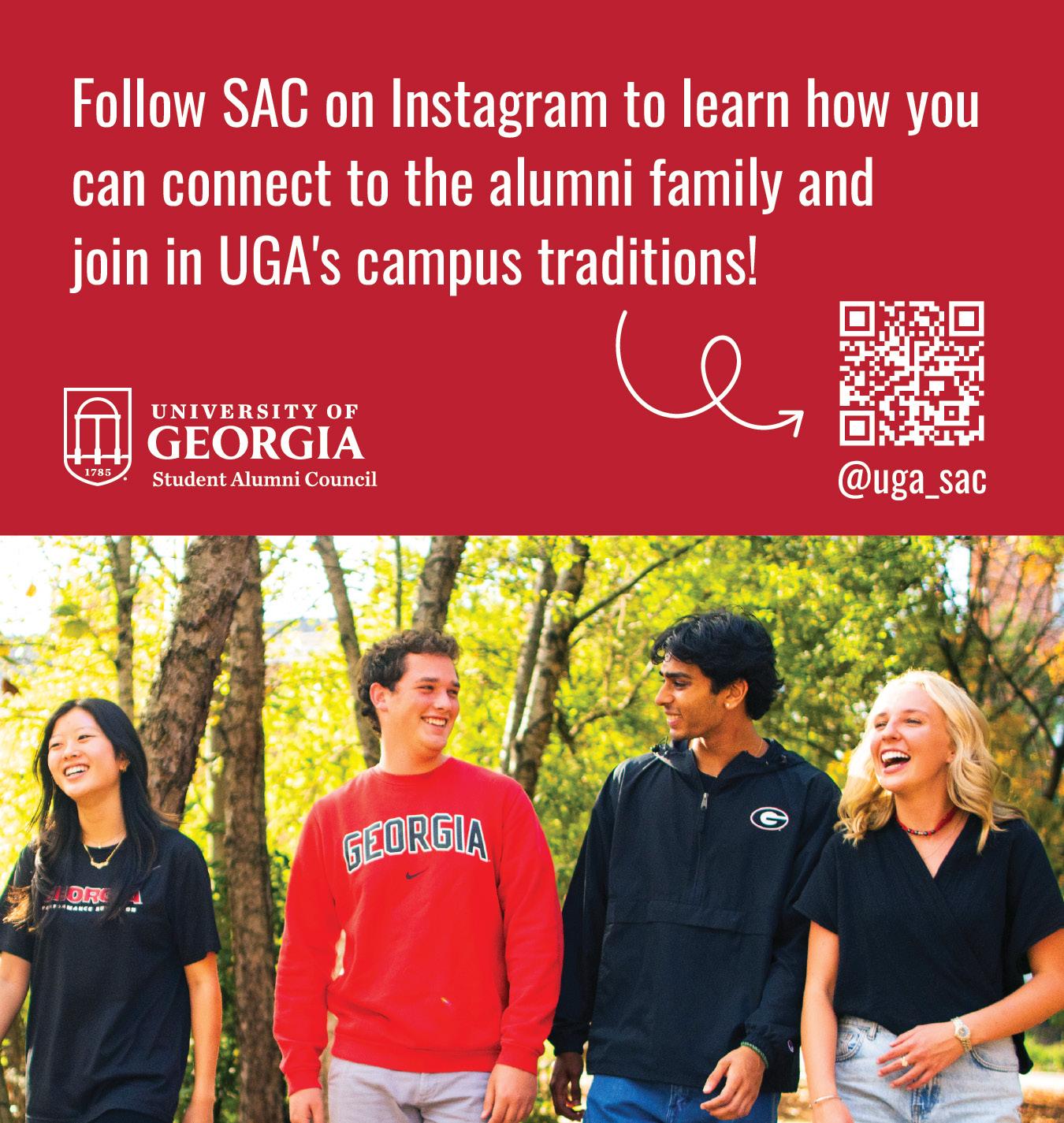
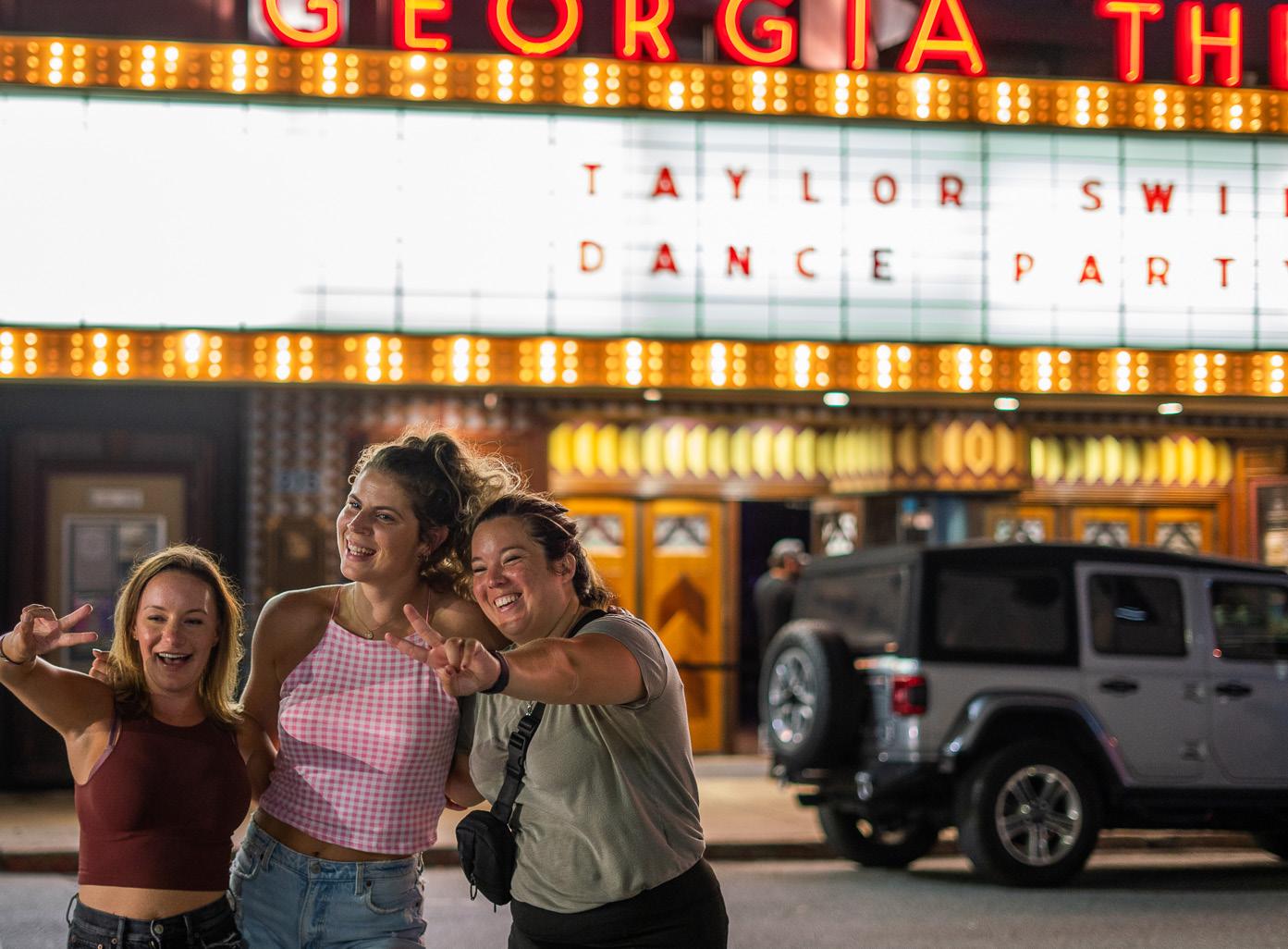
Local independent movie theater Ciné is the best place in town to catch harder-to-find films and documentaries, but they also frequently show the newest A24 releases and select blockbusters. The entertainment doesn’t stop at movies, however; Ciné also hosts art exhibits and concerts.
There are more than a dozen concert venues within a half-mile of downtown Athens, each with its own rich history and character. On the corner of Washington and Pulaski streets sits the fifth location of the historic 40 Watt Club. A likely stop for any big-name artist coming through Athens, the Georgia Theatre offers a ground floor and several balconies to watch bigger shows from, as well as a rooftop bar with its own stage. Hendershot’s on Prince Avenue hosts events like album release shows, intimate concerts and open mic nights for musicians and comedians. Athens also puts on many festivals — like AthFest and Twilight — that include free performances in the streets.
Although Athens has national chain stores like Urban Outfitters and Target, the streets downtown are also lined with Athens originals. Community offers locally sourced products and sustainable fashion creations by Athens designers. Find vintage looks at stores like Dynamite and Agora Vintage. You’ll find gameday outfits at shops like Cheeky Peach. Wuxtry Records, Bizarro-Wuxtry, Low Yo Yo have hundreds of records, books, comics and collectibles, while Cillies stocks second hand clothes and pop culture gifts.
There’s plenty of places to get a drink to cool off or warm yourself up. Cafes and coffee bars like Walker’s Pub, Hendershot’s and Jittery Joe’s offer a place to study, hang out or just get your caffeine fix. Bubble Cafe and Taichi Bubble Tea offer a variety of teas served with boba, popping pearls and other toppings.
A popular activity at the end of fall semester is ice skating at the Classic Center. The Akins Arena becomes a skating rink every winter, open to the public. If you don’t know how to skate, no fear: you can always be pushed around on a plastic seat.
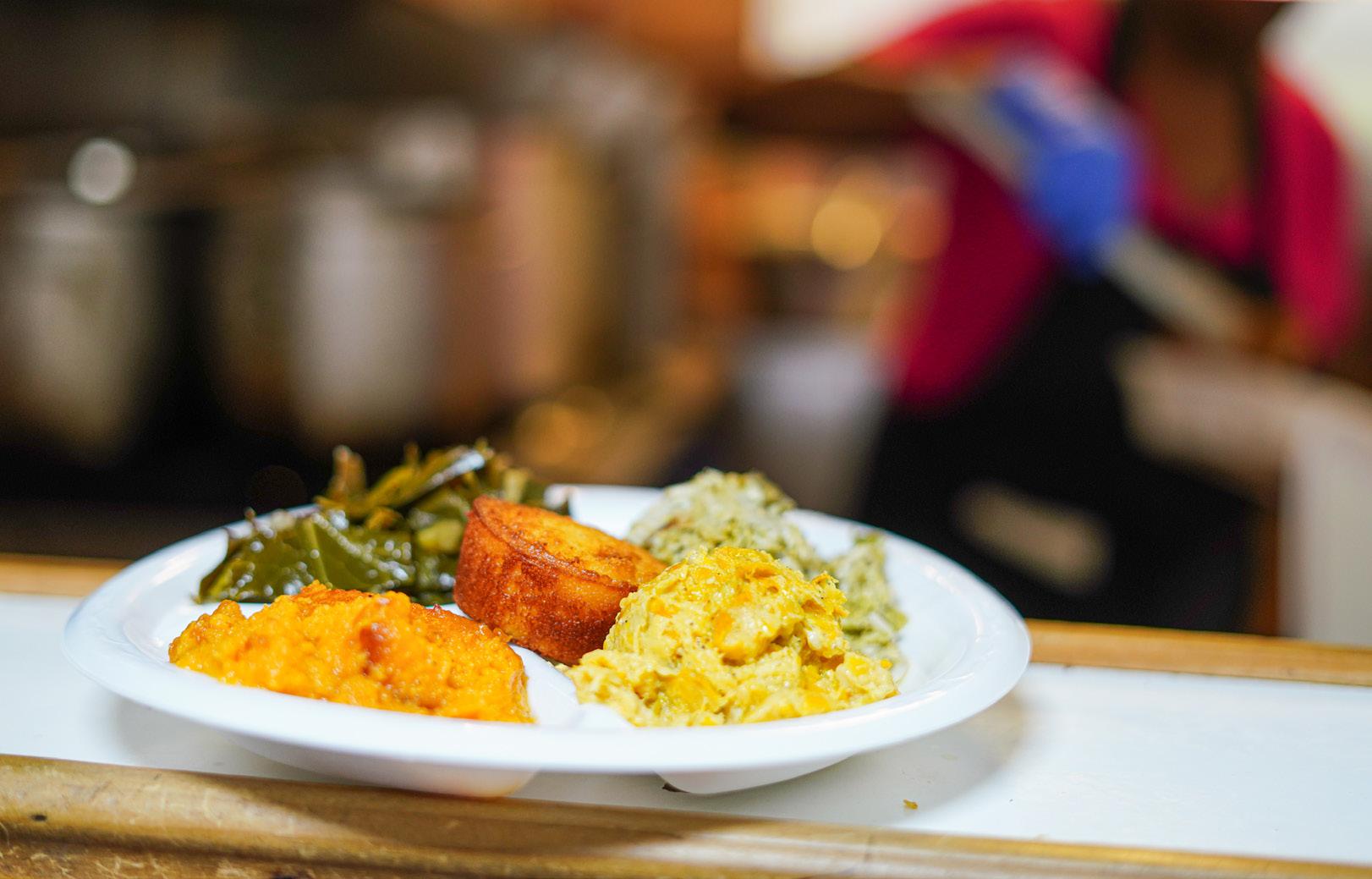
Dining hall food is great, but you’ll get familiar with the rotating menu pretty quickly. Here are some cheap and cheap-ish spots close to campus recommended by our Eat & Drink team.
Yes, there are the national chains that line Baxter Street, but for something unique to Athens, order a pizza from DePalma’s, which has three locations around town. For a late night snack, head to Little Italy, where pizza is served by the slice until 3 a.m. Thursday through Saturday. If you happen to be near Five Points, stop by Fully Loaded. This pizza place serves slices and full pies. Grab a seat at the outdoor patio when the weather is nice — and don’t miss out on Wing Wednesday for 90¢ wings.
In the heart of downtown Athens, The Grill offers a charming retro vibe, burgers, shakes and their iconic feta fries. For a sustainable and locally-sourced option, head to the Farm Burger on Prince Avenue.
Dawg Gone Good BBQ is a counter-service barbecue spot specializing in pulled pork, ribs and mac and cheese. Grab a meal to sit at one of their outdoor tables or take a plate to go. Located off of East Broad Street, Weaver D’s Delicious Fine Foods boasts classic Southern cooking — and a connection to famed Athens band R.E.M.
Stop at Ding Tea, a Taiwanese establishment, for one of its many boba options. Want lunch or dinner too? Bubble Cafe offers a full dining menu, as well as snacks like dumplings and edamame to pair with its huge menu of bubble teas.
Take time to check out Barberitos, an Athens-based restaurant chain offering burritos, tacos, quesadillas and more at multiple Athens locations. If you’re looking for a wider variety of tacos, stop by El Barrio Tacos & Tequila in Five Points. Cali n’ Titos is an Athens favorite that serves affordable Cuban and Latin food at locations in Five Points and on the East Side.
Stop by Athens Wok for an expansive and affordable menu offering Chinese, Japanese and Thai options. Head next door to pick up a poke bowl from Ahi Hibachi and Poke, or try their hibachi and sushi offerings. Mediterranean Grill on Lumpkin Street has a menu featuring authentic entrees including spanakopita, gyros and kabobs — all for $15 or less.
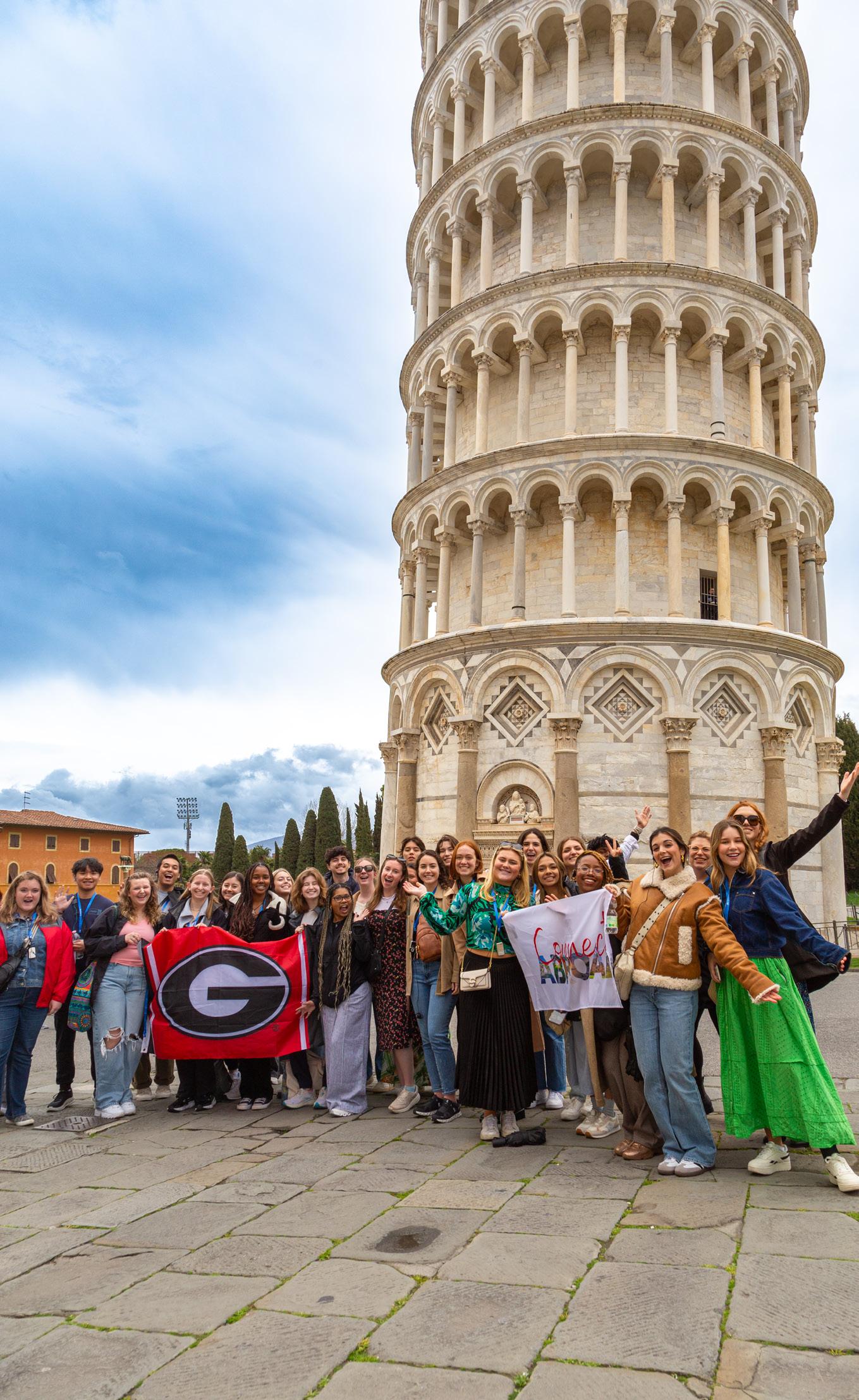

The Student Government Association provides students with one free professional outfit per academic year. Select the desired items on the SGA website and you’ll receive an email to schedule a pickup at one of the designated pop-up shops.
This program connects students and alumni to form meaningful relationships. When selecting a mentor, students create a profile and are linked to mentors who relate to them based on their industry, major, location and more. Once connected, mentees and mentors can meet anytime and anywhere.
LinkedIn is a great tool to connect with people and find jobs, but UGA also provides free LinkedIn Learning through MyID. This service provides over 16,000 video courses taught by industry experts. Once completed, certifications are automatically posted to your LinkedIn profile.
Students have free access to the New York Times, Wall Street Journal and Microsoft Office Suite. Discounted items include Adobe Creative Cloud and Spotify.
Create a profile and let UGA’s job and internship platform connect you to thousands of jobs, internships, employers and events via email. It’s also the best place to find jobs on campus, but be sure to send a follow-up email after you apply.
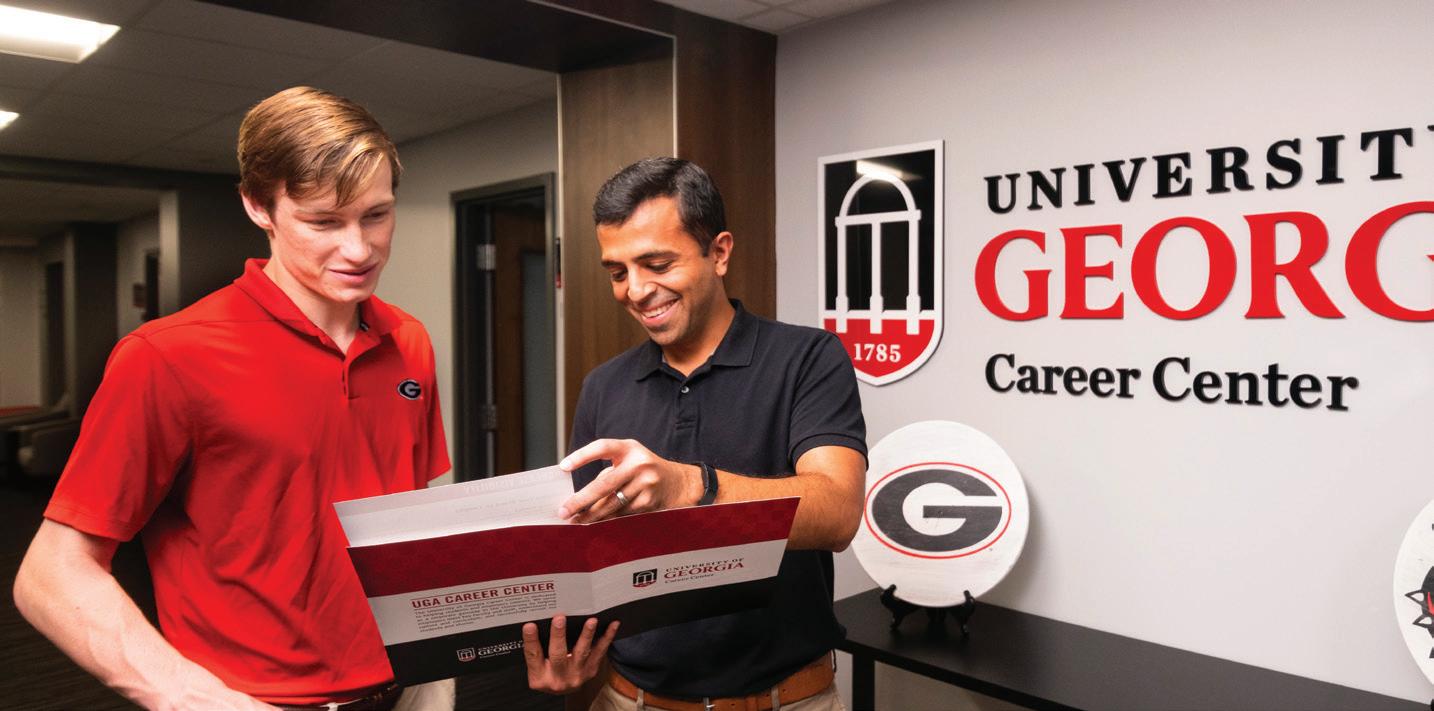
Choosing a major and career path is overwhelming—but it doesn’t have to be.
UGA’s Career Center is a safe place to explore your options. Work with trained career professionals to find a direction that aligns with your interests, skills and values.
Visit career.uga.edu/appointments to connect with your dedicated Career Consultant.
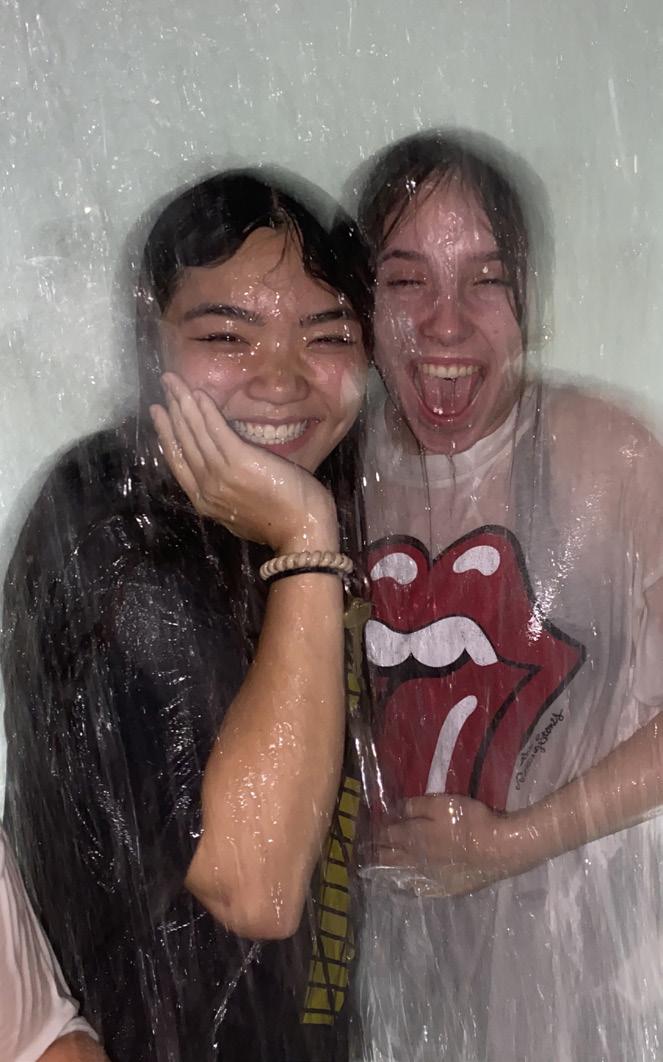
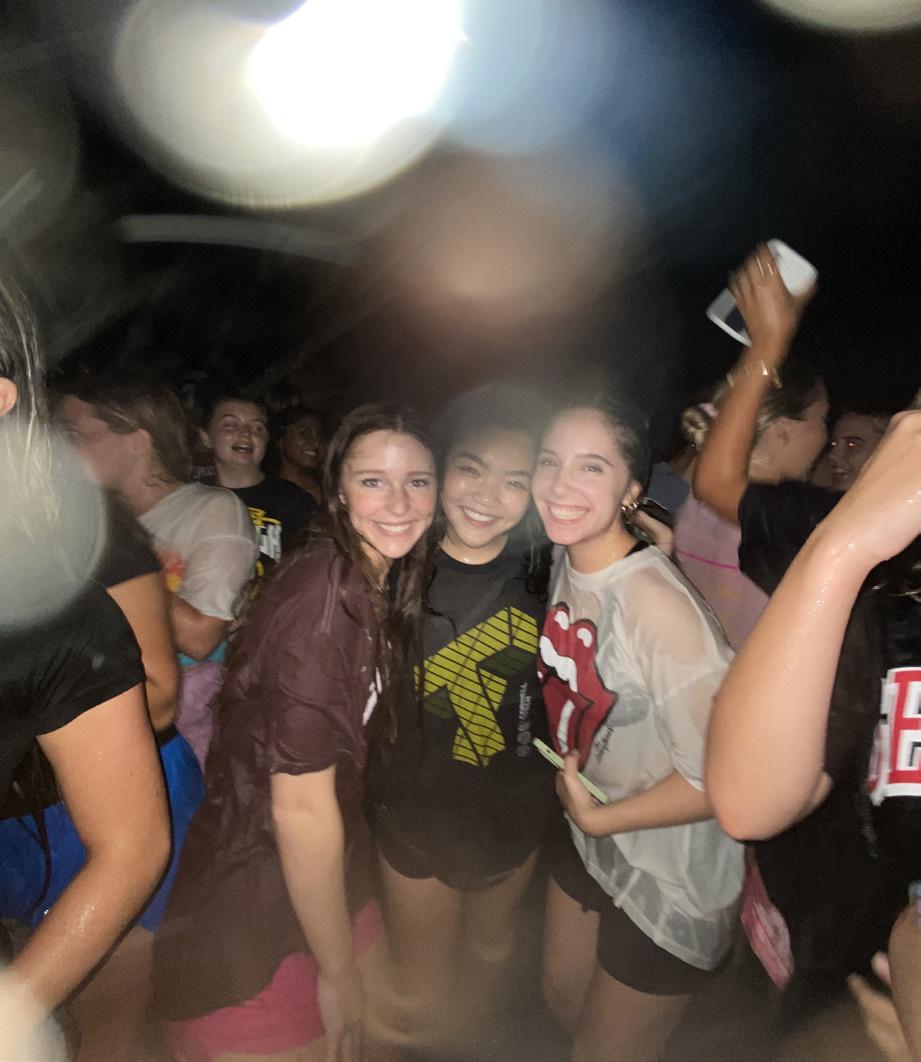
Pushing outside my comfort zone was the best thing I could have done
Transitioning from my lifelong home, a small town where everybody knows everyone, to the University of Georgia was one of the hardest things I’ve had to do. It’s easy to feel lost in the vast sea of people in a big university, like you are one in a million but still don’t quite fit in. But it was the first day of class when I realized I belonged here at UGA.
My roommate, who I wasn’t even close with yet, asked me if I wanted to go jump in the fountain with her. Apparently, it was a first-day-of-class tradition and everyone was doing it. My first instinct was to say no, that it was too out of my comfort zone. As silly as it is, I was so nervous to do it. But even though my brain was saying no, I said yes.
As we got closer to the fountain, I could hear loud music, splashing and voices yelling, which only increased my nerves. When we approached, all I saw was a mass of soaking wet people. Before I could process the scene in front of me, my roommate was taking off her shoes and was running toward the water. I quickly followed her, my heart pounding, and we squeezed through all of the people and into the cold water.
It was the most exhilarating feeling. All of the air left my lungs, and suddenly it was only adrenaline that I felt. There, in the fountain, being squished between fifty-plus people, I could not stop smiling. Instead of feeling like one in a million, I felt like I was part of a unit. That night, as I went to bed, UGA did not feel so foreign after all. It was already starting to feel like home.
Because of this experience, my biggest advice is to go out of your comfort zone and take risks. When going to a big college, it can be your instinct to just retreat into your own little bubble. It was mine, too. But it was when I challenged myself — sat next to a new person in class, introduced myself to strangers and joined new clubs — that I felt like UGA was where I was meant to be. I’ve learned throwing yourself headfirst into a new experience makes it easier. A new person that you sit next to in class could end up being in your wedding one day. There are so many possibilities, and college is too short not to explore them all.
So, go to that party. Join that club. Get a roommate you have never met before. Sit next to that stranger in class. Introduce yourself to a new person. All of those things changed the course of my freshman year for the better. You will regret not living your college life to its highest potential. If I had not pushed myself out of my comfort zone, I would probably still be the shy girl who kept to herself. As you are transitioning into a new school in a new place, say yes and step into the unknown.
ANNA KAPUSTAY | Class of 2026

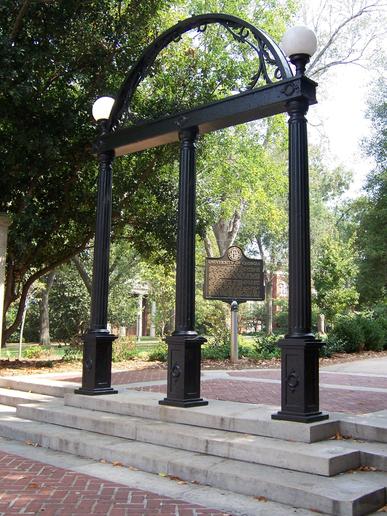





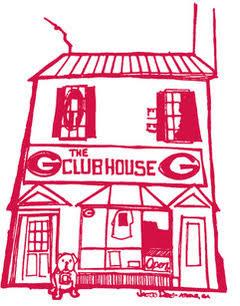

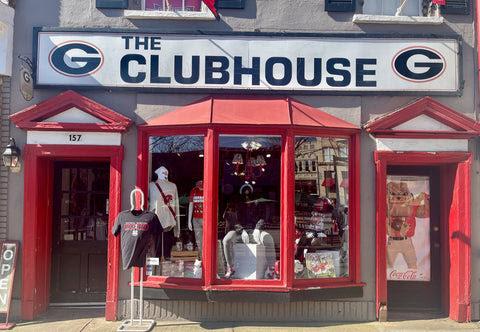
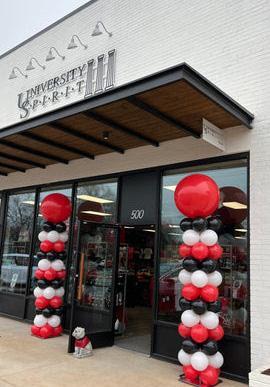


As a queer individual, I found community where I least expected it
Sometimes, you’re so focused on what’s ahead and where you’re going that you forget to see the beauty in what’s beneath your feet.
Last summer, as I began to run the emotional gauntlet of college admission letters, I thought I had a clear choice in mind. I was going to move to the West Coast, where I’d begin my new life at the University of California, Berkeley.
I loved my family, and I loved the town that had raised me, but I’d always longed for a place where I didn’t feel like the exception. Growing up as a queer individual in the South, I’d adopted a rather dismissive attitude toward all things Georgia. Over the years, I’d found a tight-knit group of other individuals who saw the world the way I did. A perspective that was larger than football, frat parties and the -isms and -phobias that we’d been forced to endure.
But my parents are both teachers, and in order to try and alleviate some of the strain that my dreams put on our family, I decided to apply to some in-state universities as well. The University of Georgia — the “football party school” that was so many of my tormentors’ greatest desire — became my new best bet.
My parents suggested a family trip to Athens to tour the campus. Though I was not overly thrilled, I agreed. And to my surprise, I found people like me — different, weird and proud.
Suddenly, I saw the dream that I’d thought would only ever bloom far away from home sprouting under my feet. The soil had been there all along; I just hadn’t allowed myself to appreciate my roots.
By counting out the South, I was choosing to not see the beauty in what was here. I had done to Georgia what I believed it had done to me — intentionally seeking out the most unpleasant aspects of the entity. I’d come at it with bias and negativity, the exact reality I believed I was leaving behind.
Since that first visit, I’ve found people who love me, in an environment that helps me build toward success. The fears I had coming to this school have been replaced by pride.
FELIX SCHEYER | Class of 2026

This UGA clinic can help with everything from managing student loans to a diet plan or legal advice. The financial planning services, legal counseling and nutrition advice services are free. Other programs, like therapy, are offered on a sliding scale. fcs.uga.edu/aspireclinic | 706-542-4486
This service, referred to as CAPS, offers short-term individual and group counseling. An initial screening is free, with reduced rates for visits afterward if the student has paid health fees. CAPS also offers mental health workshops and a 24-hour hotline.
caps.uga.edu | 706-542-2273
The Disability Resource Center aims to create a welcoming academic and social environment for students with disabilities and connect them with resources to improve their experience at UGA. The DRC staff works with each student to develop an individualized accommodation plan for attendance, testing and more.
drc.uga.edu | 706-542-8719
This center is dedicated to alcohol and substance abuse prevention and recovery. They offer learning tools, programming and advocacy services. healthpromotion.uga.edu/fontaine-center | 706-542-8690
The health center’s Nutrition Teaching Kitchen offers $5 cooking classes focused on healthy and simple meals. The department also offers appointments with nutritionists. healthpromotion.uga.edu/nutrition/kitchen | 706-542-8690
The Pride Center was formed to foster an inclusive and informed community for LGBTQ+ individuals in Athens. It offers a list of resources on its website and provides safe spaces like a student lounge and a quiet study room on campus. pride.uga.edu | 706-542-4077
RSVP offers classes, counseling and educational resources on relationships and sexual violence. Its programs include healthy dating tips, consent education and training on how to be an active bystander. 24-hour hotline: 706-542-7233
healthpromotion.uga.edu/rsvp | 706-542-8690
Many programs are operated by the UHC, which offers medical services through four clinics with services from general checkups to dental, vision and gynecology services. They also offer vaccinations, including the updated COVID-19 vaccine.
healthcenter.uga.edu | 706-542-1162
This division’s mission is to assist students with any kind of hardship. Get help for a fellow student, find mental health resources and learn about hardship withdrawals.
sco.uga.edu | 706-542-8479
A sexual assault center and children’s advocacy center, The Cottage grew out of the Athens Rape Crisis Line. It operates a 24hour help line, conducts legal and medical advocacy, provides referrals for survivors and offers crisis counseling. It also supports education about sexual assault and other issues.
northgeorgiacottage.org | 877-363-1912
The public health department offers many free or low-cost services, such as long-term birth control, contraceptive pills, condoms, STI testing and vaccinations.
northeasthealthdistrict.org/locations/ clarke-county | 706-389-6921
With an emphasis on helping musicians, this nonprofit named for Athenian Nuçi Phillips is dedicated to preventing suicide and removing stigma around mental illness. It offers health referrals, supports groups and workshops. nuci.org | 706-227-1515
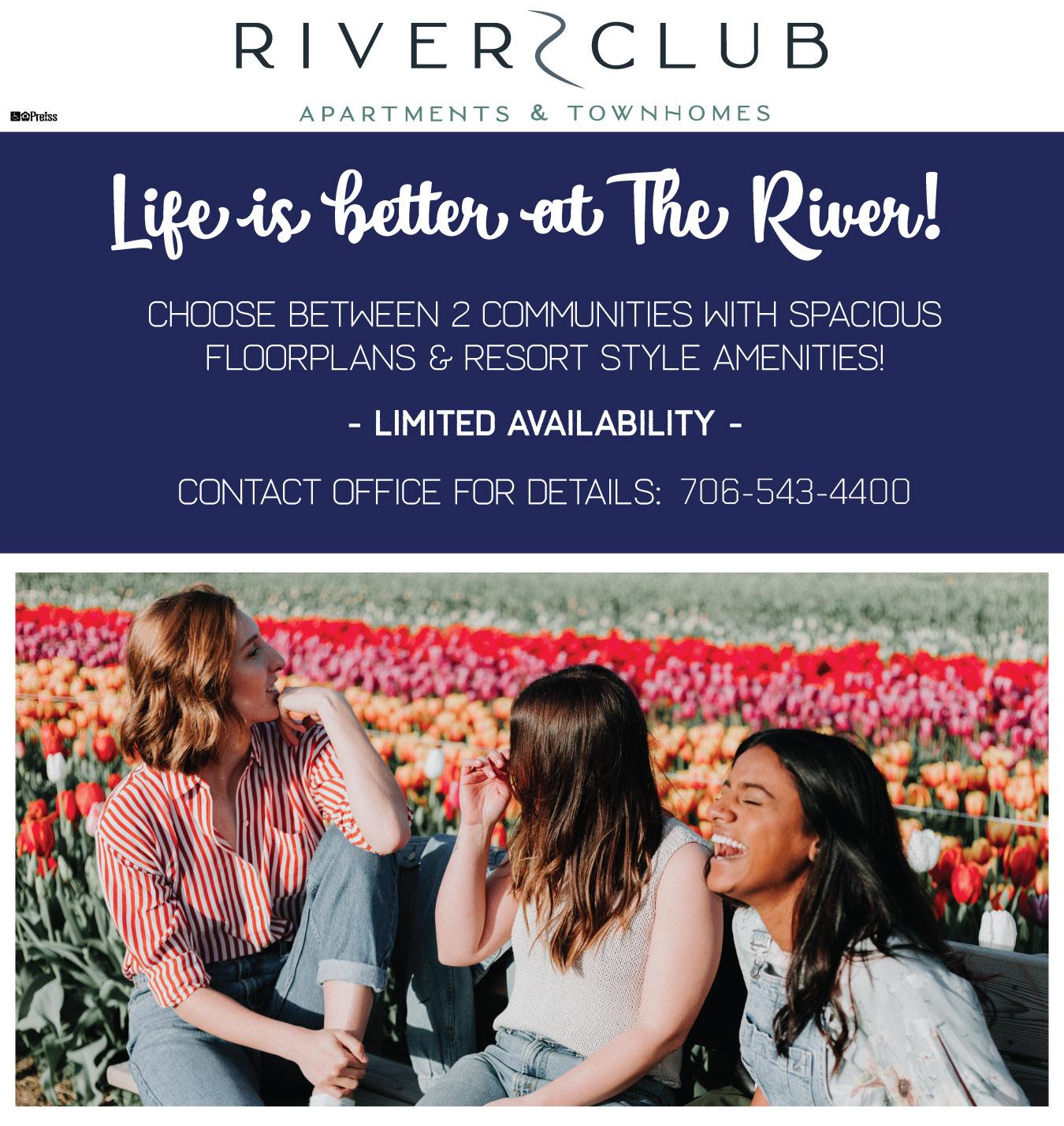


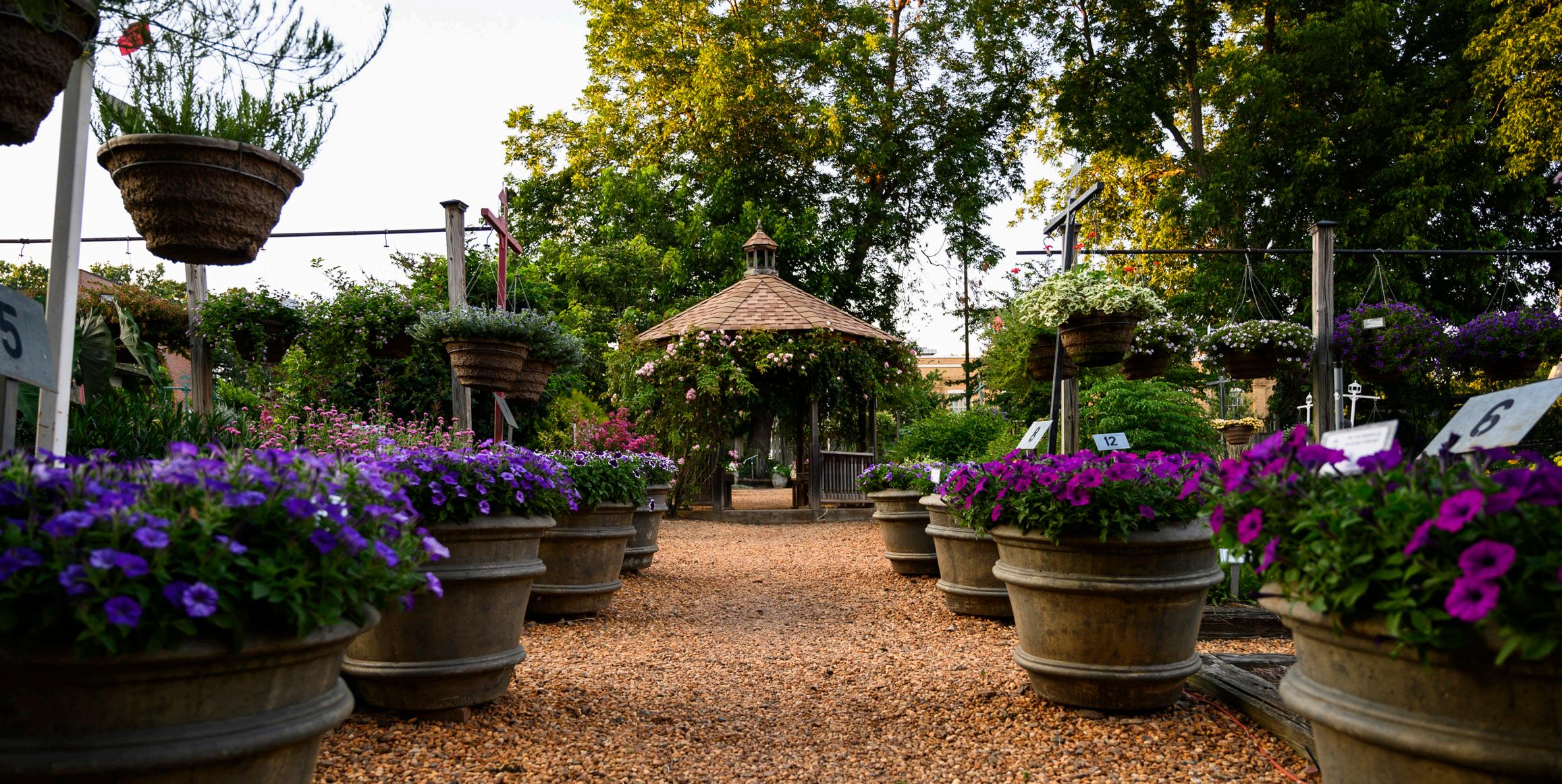
Everyone gets overwhelmed at college, whether that’s because of a large load of schoolwork or a tight schedule with no wiggle room. Freshman year can be a big adjustment, and sometimes there’s just no time to go back to your dorm to decompress. Luckily, UGA has plenty of quiet places on campus to take an escape from reality.
UGA’s campus is dotted with historic lawns and sunny quads, but if you’re looking to relax somewhere that feels more private, head to the Founders Memorial Garden. Located on North Campus off of South Jackson Street, it’s one of the most picturesque spots on campus.



Filled with a wide variety of beautiful botany, there’s a fountain, a small maze and plenty of benches and lawns to sit on. It’s the perfect place to get a breath of fresh air and reconnect with nature.
UGA’s Well-Being Hubs are private and semi-private rooms where students can study, meditate, pray or just take a break between classes. Located all around campus, you can find them at the University Health Center, the Disability Resource Center, Milledge Hall, the College of Environment and Design, University Testing Services, Sanford Stadium and the College of Pharmacy. Features include comfortable seating, nap pods, massage chairs and art supplies. Some are first come, first served, and others can be reserved online at well-being.uga.edu/well-being-hub.
You may be familiar with the Georgia Center as a hotel and event venue, but it’s also a convenient spot to work or unwind. Located off South Lumpkin Street, near Snelling Dining Commons and Myers Quad, stop by to enjoy ample seating, a relaxed courtyard (with fire pits) and the Bulldog Bistro, where you can order a meal or grab a snack to go.
The location of the first Georgia football game, Herty Field is a secluded spot in historic North Campus where you can sit and enjoy the rushing of the iconic fountain and the sun shimmering on the water. There’s a solar-powered charging station and plenty of benches to sit back and enjoy the view.
Behind the Science Learning Center and in between College of Pharmacy and Snelling Dining Commons are the UGA Horticulture Trial Gardens. A hidden gem on South Campus, this garden puts both annual and perennial plants on trial to see how they thrive in the southern heat. It’s the perfect place for a stroll to clear your head while taking in the colorful flowers, wildlife and floral aromas.
One of the quieter buildings on North Campus, the Fine Arts Building has beautiful architecture and peaceful spots to decompress. The staircases on either side of the main entrance lead to smaller lobbies with seating, sunlight and access to restrooms.
 Herty Field | Jessica Gratigny
Herty Field | Jessica Gratigny
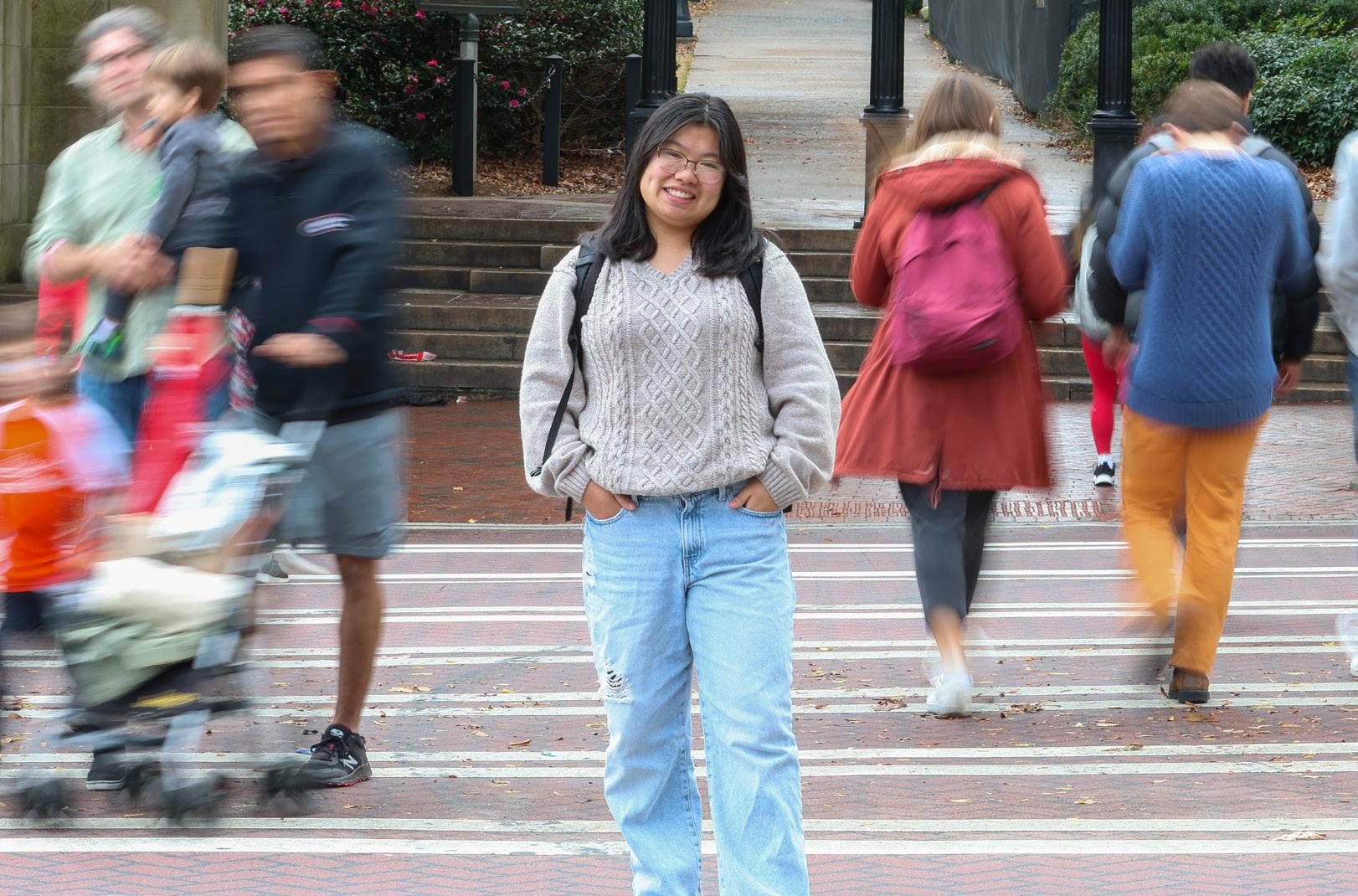
Many thoughts race through Ashleigh Gordon’s mind on the first day of a new semester.
“I need to sit up front. I need to tell this professor about my needs. Will this class be echoey? Will they have captions on their videos? How big will the classroom be?”
Gordon, an environmental economics and management student at the University of Georgia who is hard of hearing, has to navigate in a way that her peers without disabilities have never had to think about.
Navigating college with disabilities introduces unique social, logistical and academic circumstances.
Young adults with disabilities accounted for 21.2% of adults aged 18 to 44 in the U.S. in 2021, according to the Centers for Disease Control and Prevention.
Nicholas Byrd, a senior political science and international affairs major, spends much of his spare time studying for the LSAT, but otherwise fills his schedule with student groups such as UGA Wesley Foundation and University Judiciary. Byrd has a form of cerebral palsy that is not visible to others and therefore surprises people when discussed in passing.
Byrd experiences weakened sensation on the left side of his body, complicating tasks that require fine motor skills — such as tying
his shoes and typing. His slower processing speed presents challenges with visual and spatial reasoning and reading quickly.
“I have needed to remind myself that my frustration is valid,” Byrd said. “Yes — I’m incredibly blessed, and I don’t need to take that for granted. But, it’s also okay to process the frustration and try and find solutions to navigate college life.”
Upon arriving at UGA, Byrd’s family was previously an instrumental part of his transportation plan. Now, they were suddenly a couple of hours away.
He typically relies on walking and the bus system, although in the event of time, walkability or route limitations, Byrd turns to rideshare services like Uber and Lyft.
“It was kind of a barrier to realize I couldn’t necessarily do all of the activities I needed to do,” Byrd said, but in adapting to Athens has been sure to live within walking distance of a grocery store, bus stops and campus
Phone calls, grocery store check-outs, the pharmacy pick-up window and ordering at a coffee shop are a few examples of everyday tasks impacted by Gordon’s hearing loss.
When she first came to UGA, Gordon toiled with feeling like she repeatedly had to explain herself to others, a side effect of being in conversations where she had difficulty hearing.
Although now, Gordon is an environmental economics and management student, a member of Delta Zeta, an intern for the Office of Sustainability and a Sustainability Certificate Ambassador. She feels comfort with disclosing her hearing loss, it has become easier as she’s gained confidence and grown to accept her disability.
“I still struggle with that, kind of blaming myself for it… even though it’s not my fault, like I didn’t choose this,” Gordon said.
She builds on her experience by volunteering at BLANK mentoring kids with hearing loss.
The Disability Resource Center at UGA offers accommodations to more than 3,000 students per year who register through an application and by submitting disability documentation.
Once admitted, students gain access to priority course registration, which accounts for navigation and transportation barriers. Testing accommodations include small group testing to eliminate distractions, alternative test formats and extended time.
Classroom accommodations range from assigned notetakers or recording lectures to moving class to an accessible location.
The DRC emails students’ professors notifying them of accommodations at the start of each term but doesn’t describe their disability. This allows students to choose if they want to disclose more to their professors.
Byrd thinks the DRC is great, adding that they sent letters to the law school admissions council explaining his accommodations for his LSAT exam.
Weng, a Disability Resource Center Ambassador, says disclosing her accommodations can be tricky. A senior human development and family science major, Weng received her diagnosis one day after her 12th birthday: a traumatic brain injury resulting from having a brain aneurysm precipitated by a ruptured arteriovenous malformation (AVM) — a tangle of blood vessels that ultimately had to be surgically removed. She now experiences frequent headaches, balance issues and cognitive impairments such as memory loss.
Byrd, Gordon and Weng recommend sending an email before class about accommodations or speaking with the professor in person to establish an open line of communication.
What is most helpful to Byrd, however, is when professors understand the “why” behind accommodations.
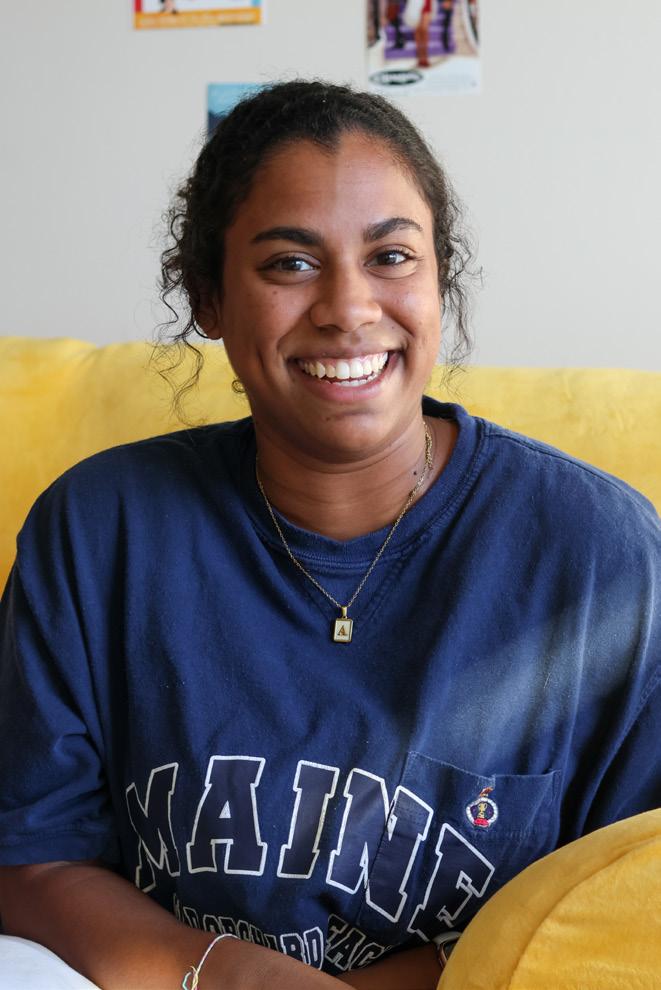



“I feel like I have confidence that they’re not going to want to either take the accommodation away or question why the accommodation is needed,” Byrd said.
One of Weng’s favorite professor experiences was made possible by her professor’s deep understanding of the “why” behind her accommodations, having a Traumatic Brain Injury himself he expressed his enthusiasm for supporting her.
As students navigate disabilities in college, support and recognition come in many forms. But for Gordon, the best thing someone can ask is a simple, “How can I help you?”
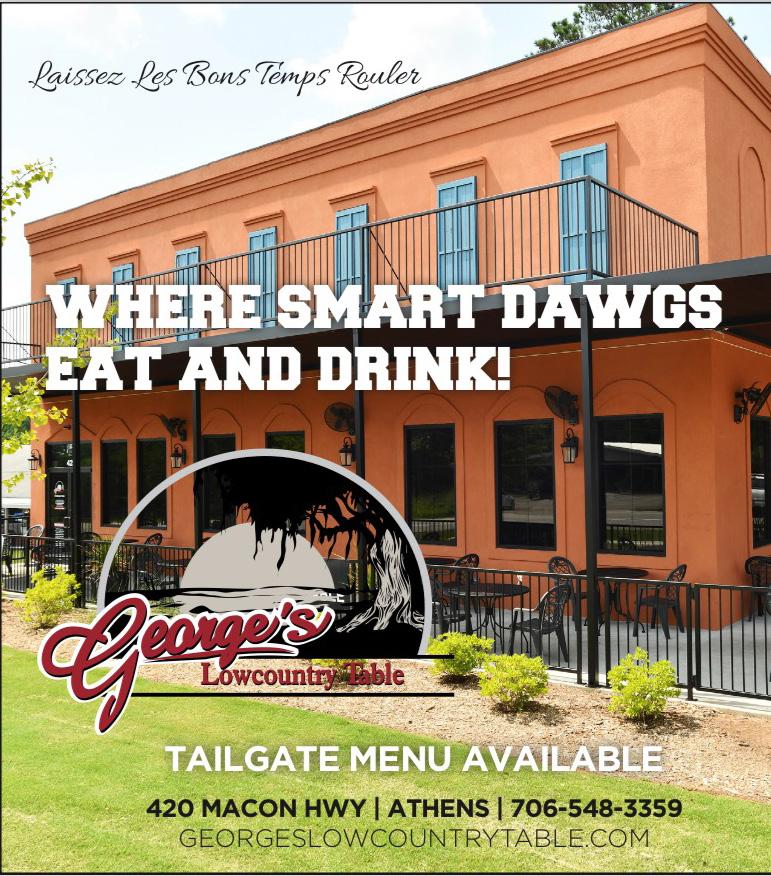

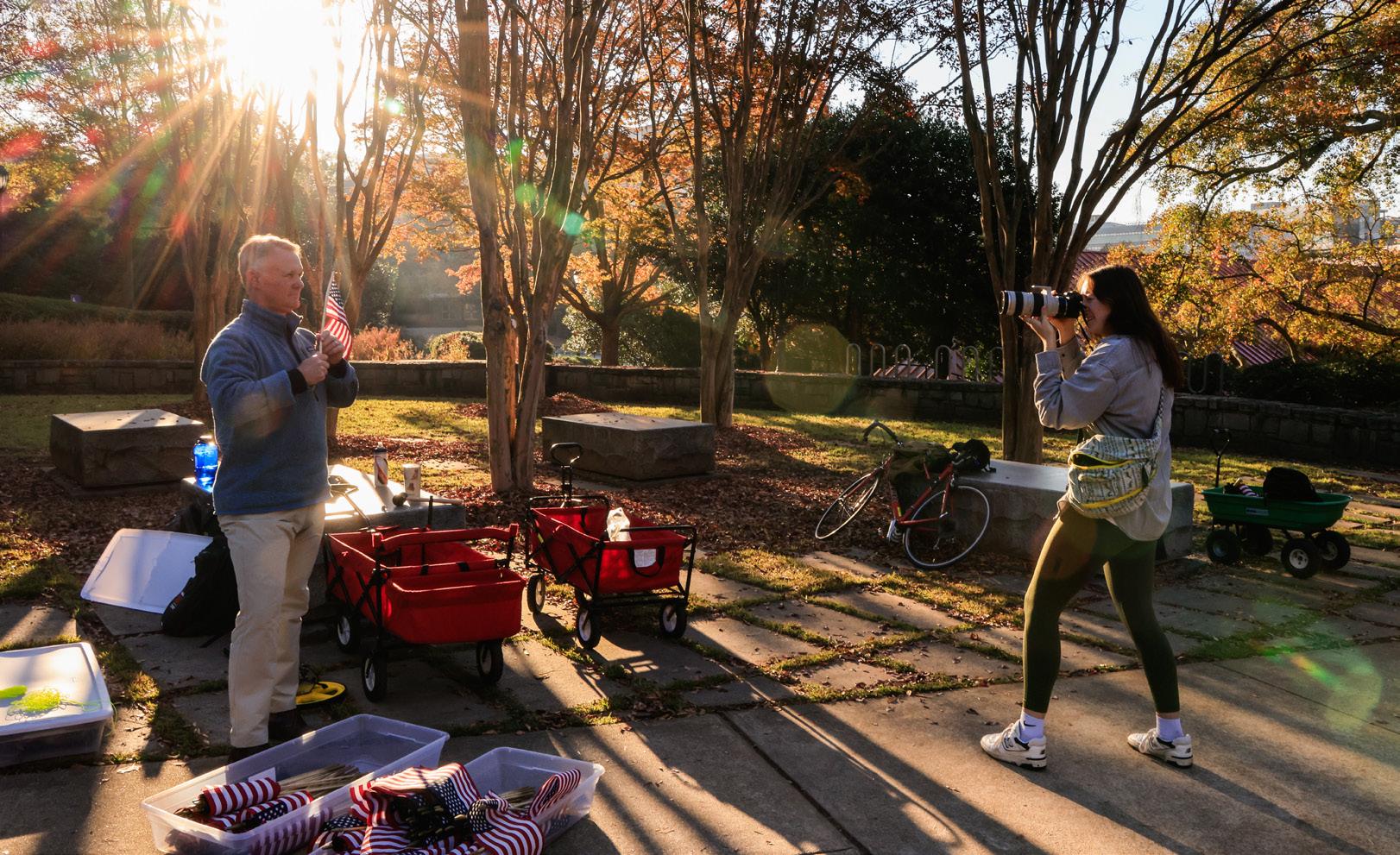
Going into my senior year of college, I felt like I had been on a circus tour the last couple of years. I’ve juggled changing majors, two jobs, adjusting to new schedules every semester and new friends. I’m here to tell you that it doesn’t have to be that way.
Money wasn’t a big concern for me going into college — I was fortunate to have my dad finance my expenses in the first couple of years. But as time went on, I got older and more independent and I started to support myself.
When I picked up a job at a retail grocery store, I did not know what to expect. I knew I needed money, and I also knew that it took up a large part of my day that could be used for studying, hobbies or working on my other job at The Red & Black.
I was always told that in order to make my insane schedule work I needed to “find a balance.” This is true, but don’t stress yourself over making time for everything at once. Some tasks require all the attention you need in that moment, day or week, and the other commitments you have will need less attention in order to execute the more pressing one in a meaningful way.
However, this doesn’t mean you should neglect all other tasks in order to focus on one – this means planning ahead of time and getting ahead of the stress before it happens. My best friend in college besides my roommates and my cat is Google Calendar. As soon as you get an assignment, your work schedule or plan a brunch with friends, put it into your calendar! This is a sure way to not miss anything and to visually see your week.
When you get to the tasks that you need to do, be intentional with it. If you take a day off, fully bask in it and take your mind off any worries or stresses. If you are at work, fully engage in your job and connect with your coworkers – some of my best friends were made at work. This will allow you to make the most of your time and be as efficient as you are capable of.
There will be days when you don’t have the usual energy, motivation or drive to do what you need done. This is okay. I have those weeks where I mentally check out and when I come back, it feels like a sudden avalanche of work collapsing down on me. When this happens, don’t freak out – instead make a to-do list to visualize your workload, then start with the most pressing task or whatever is due first and go in order.
Having a good support system will make or break your college experience and impacts how you handle times of laughter and love, as well as stress and hardship. Find the people in your life who light you up and inspire you and hold them close to your heart. They will be the first to pick you up when you fall and the last to let go when you hit the ground running.
ELIZABETH RYMAREV | Class of 2024

Clothing and accessories from



Whether you’re looking for Natty merch or a chic handmade dress, here’s where to find your gameday looks and UGA merch in Athens.
CHEEKY PEACH shopcheekypeach.com
At Cheeky Peach, you can book a free session with a stylist in-person at the downtown shop or virtually if you’re not in Athens. The Gameday Collection features everything you need to put together a trendy tailgating outfit, from red and black dresses and two-piece sets to metallic cowboy boots and accessories.
COMMUNITY shopcommunityathens.com
This downtown shop focuses on local and sustainable clothing, featuring Georgia-made goods (like ceramic earrings by Athens-based Clayton Street Clay) and oneof-a-kind vintage pieces (recently spotted: red silk maxi dresses). Community also designs and sews its own clothing label, Community Service, from repurposed vintage materials. Fun fact: The sewers, whose studio shares space with the store, patch and repair UGA football jerseys after each game.
DICK FERGUSON’S dickfergusons.com
For men looking for a polished gameday look, there’s Dick Ferguson’s on Baxter. It’s where you’ll find upscale pieces like slim engineered and mesh UGA polos from Peter Millar, Holderness and Bourne pullovers, and Georgia needlepoint belts. Khakis and Duck Head button-downs abound.
DYNAMITE shopdynamiteathens.com
This cozy vintage shop is a smorgasbord of retro clothing, with funky red and black pieces, bold accessories and old UGA gear for the fan with quirky style. Recent finds at the downtown store include vintage UGA sweatshirts, red Doc Martens and oversized Georgia earrings.
THE RED ZONE ugaredzone.com
The Red Zone carries much of the same merch as the campus bookstore, but in a more intimate space downtown. National Championship gear goes fast; other favorites include the “Georgia Mom” and “Georgia Dad” Champion sweatshirts.
UNIVERSITY SPIRIT universityspirit.com
If you want to find Natty merch while avoiding the downtown and campus crowds, try University Spirit just up Baxter Street. Shop a wide range of UGA garb and gifts, as well as sorority tees and sweatshirts.










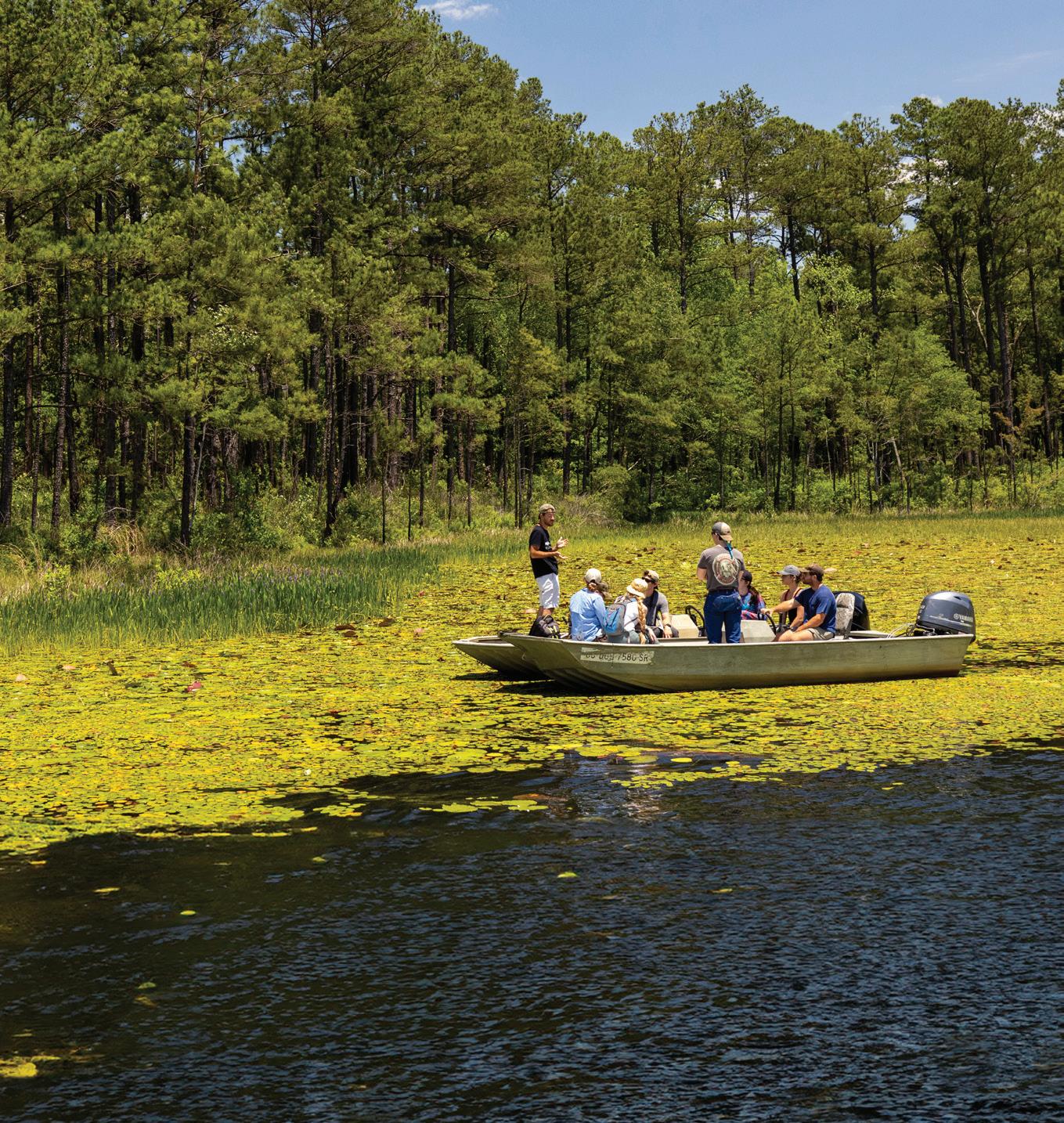




Try these Athens activities and UGA traditions to have a well-rounded experience in the Classic City
You’ll support a worthy cause of your choosing while learning about volunteer opportunities around Athens and meeting new people.
There are concerts happening downtown almost every night of the week. Check out the center of the Athens music scene at the Georgia Theatre or its iconic rooftop to see a show and a spectacular view.
You’ll definitely stop by the chapel to ring the iconic bell or take pictures, but this 1830’s building also hosts special lectures, student organization events and even the occasional wedding.
The Hunter-Holmes building was named for Charlayne Hunter-Gault and Hamilton Holmes, who integrated the University of Georgia in 1961. Make a point to learn about them and other notable alumni who have made campus a more inclusive community.
He’s somewhat elusive, but it’s entirely possible to meet college football’s best mascot in real life, either at a special event or before a game.
Located just outside of Athens in Bogart, Washington Farms offers fall festivities and hands-on harvesting in their pumpkin patch. It’s a great place for fall dates and Halloween celebrations.
Spend an afternoon walking through the tranquil halls of the Georgia Museum of Art. The best part? Admission is free.
Opened in 1910, the Morton Theatre was one of the first vaudeville theaters to be built,
owned and operated by an African American, Monroe “Pink” Morton. The theater still hosts performances to this day.
The UGA Department of Physics and Astronomy hosts open house events for those interested in taking a peek into the night skies.
ATTEND A FOOTBALL GAME
It takes fortitude, hydration and sunscreen to last four quarters of a September game. See our gameday guide on page 32.
SEE ALL THE SPORTS
Make it a mission to cheer on as many teams as you can, from basketball to gymnastics. Most events are free or low cost for students.
VISIT THE BOTANICAL GARDEN
Taking a stroll through the flower gardens in the spring or the changing colors in the fall makes for a memorable trip.
CATCH A MOVIE AT TATE
It’s free with your student ID, it’s a great way to connect with other students and movies are always better on the big screen.
FIND ALL THE BULLDOG STATUES
It takes real effort to track down all the statues — there are dozens — scattered throughout Athens.
VISIT BEAR HOLLOW ZOO
A must for animal lovers, this (free) zoo in Memorial Park is a refuge for injured and rehabilitated native Georgia species.
GO ICE SKATING
In the winter, the Atkins Arena at The Classic Center becomes an ice rink for Ice Dawgs hockey games and public skating.
JUMP IN THE HERTY FOUNTAIN
Join in the UGA tradition and take a latenight dip in the fountain on North Campus.


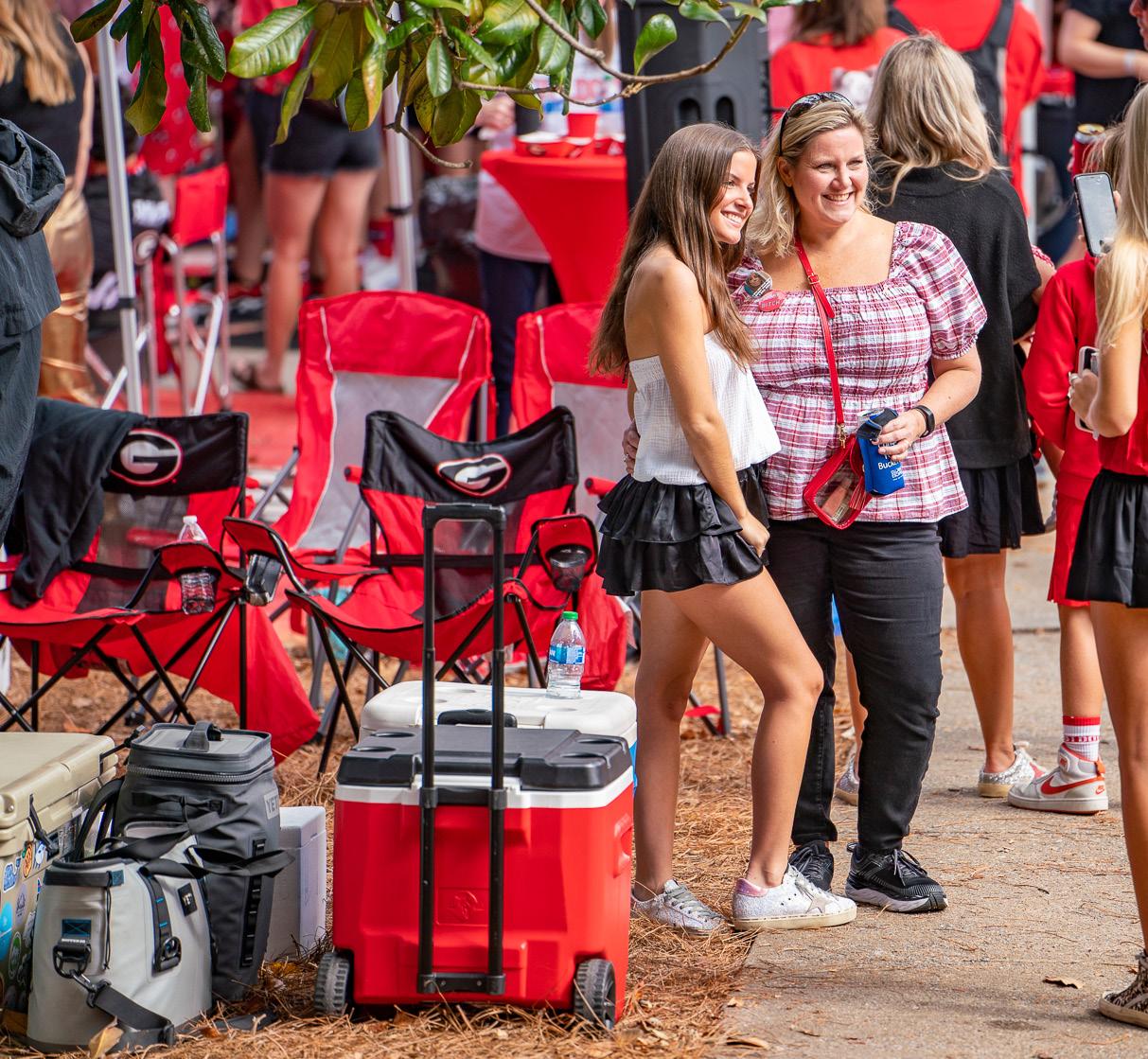



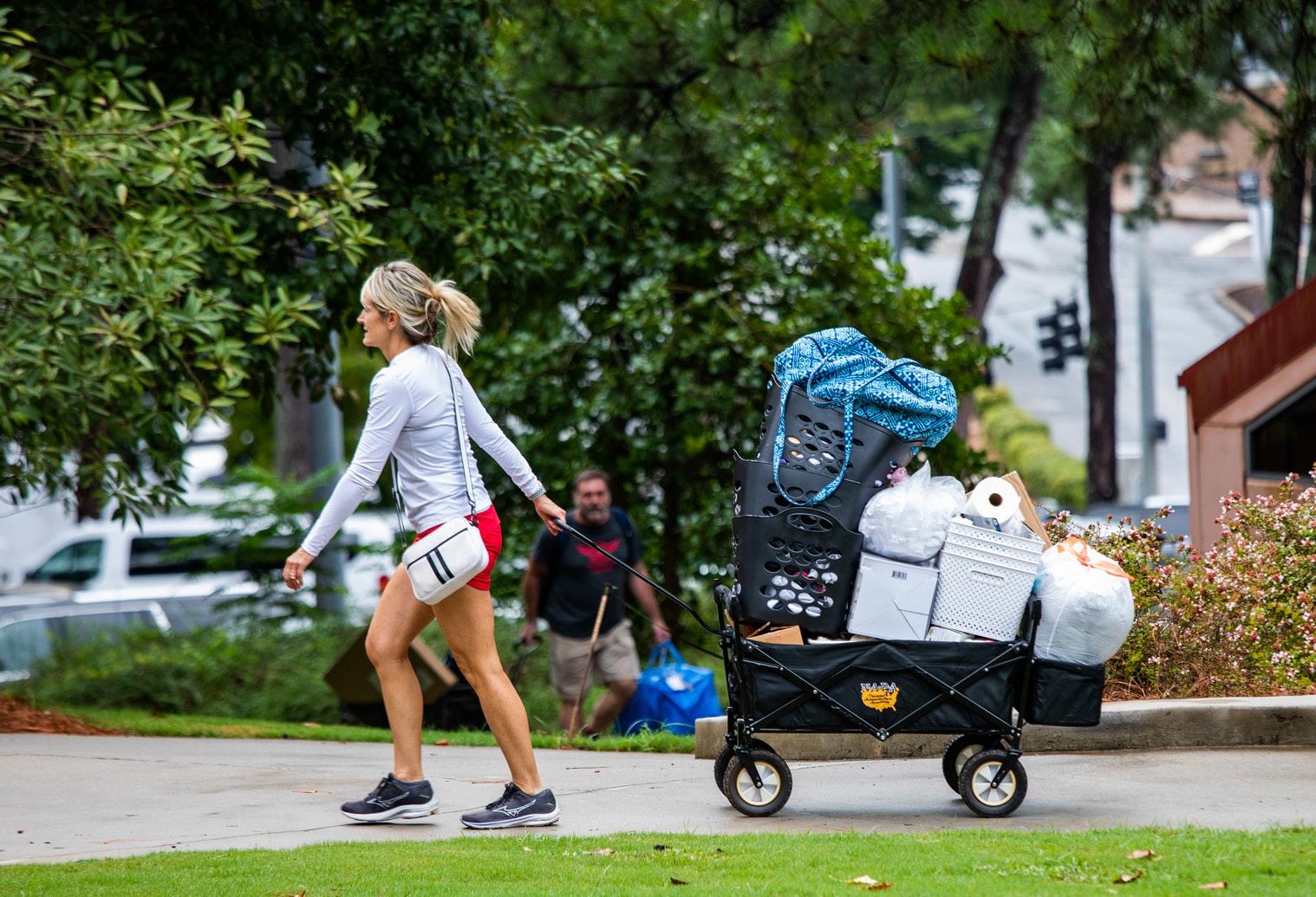





Dining Services offers several great benefits to our student employees, including:
• Flexible Schedules —work between classes
• Free Meals —one for every shift worked
• Pay Increases —for every semester worked*
scan to learn more
*minimum number of hours required
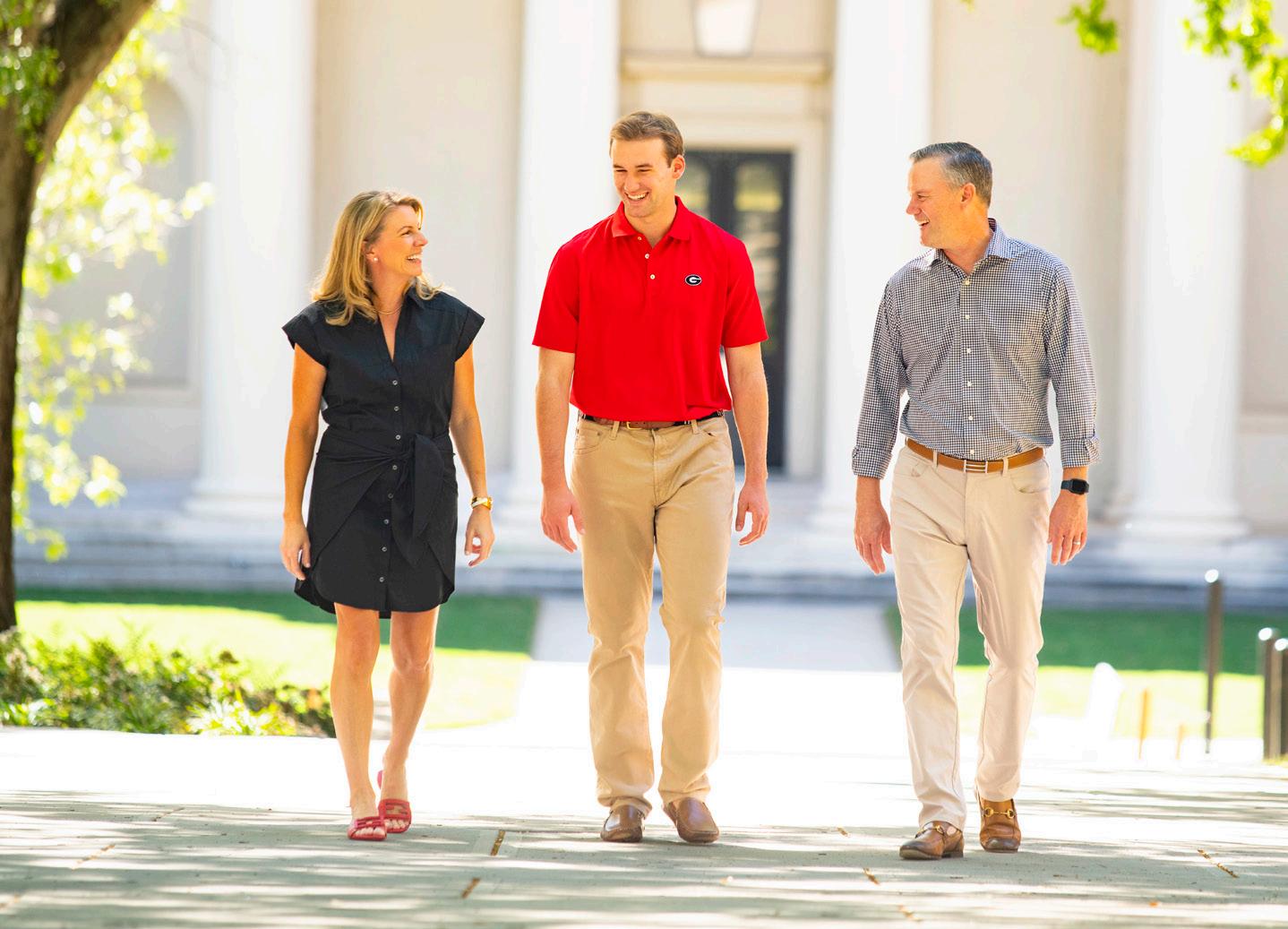
STAY CONNECTED WITH YOUR STUDENT WHILE MAKING A DIFFERENCE FOR OTHERS.
Meet UGA leaders, tour campus facilities and get to know fellow parents and their students.
Enjoy ample opportunities to engage with your student on campus to help support a full undergraduate experience.
Your annual gift of $5,000 or more impacts student areas of high need through the Parents Leadership Council Grants Program.
For more information about the Parents Leadership Council, email parents@uga.edu , visit give.uga.edu/plc or scan the QR code.


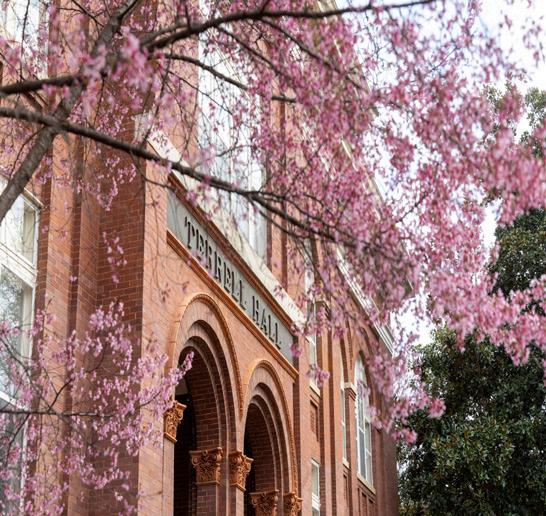
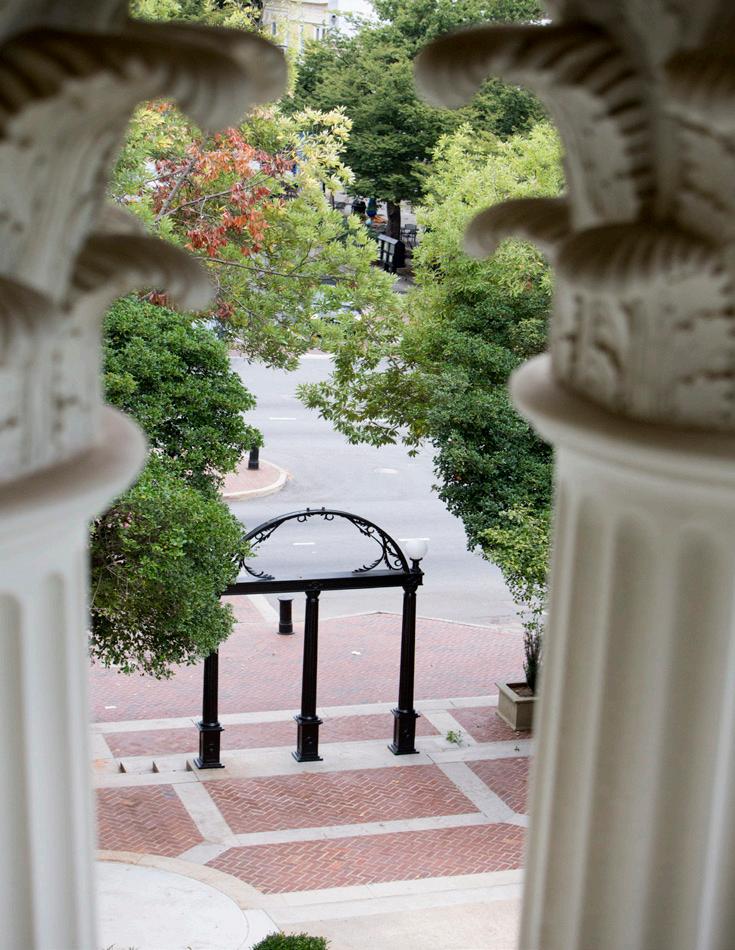


Make what is important to your child important to you. It may not seem like they want you to, but they secretly do. That intentionality will help with those desired, yet fleeting conversations. And this leads us to our next point.
Texts are much easier for busy and newly independent students to answer. They are also a great way to remain connected. Be sure to ask a question so your child has to respond.
Take them to dinner and invite their friends. It can be a great way to get to know the new people of influence in their world. If you are able, offer to pay for dinner. Students can’t resist free food!
Passes are much cheaper than parking tickets, trust us. It’s really a one or the other situation.
Be sure that your student knows about student.uga.edu. It’s the best tool to quickly find resources they may need on campus, from career counseling to mental well-being and the Arch Ready Professionalism Certificate Program.
Discuss your expectations for their academic performance before classes start, and make them realistic. This helps ensure you are all on the same page.
Don’t forget — they are excited but nervous. How you act will be their guide.
Lean into the UGA experience with your student as they forge their path in life. If you’d like to learn more about the PLC, email parents@uga.edu.
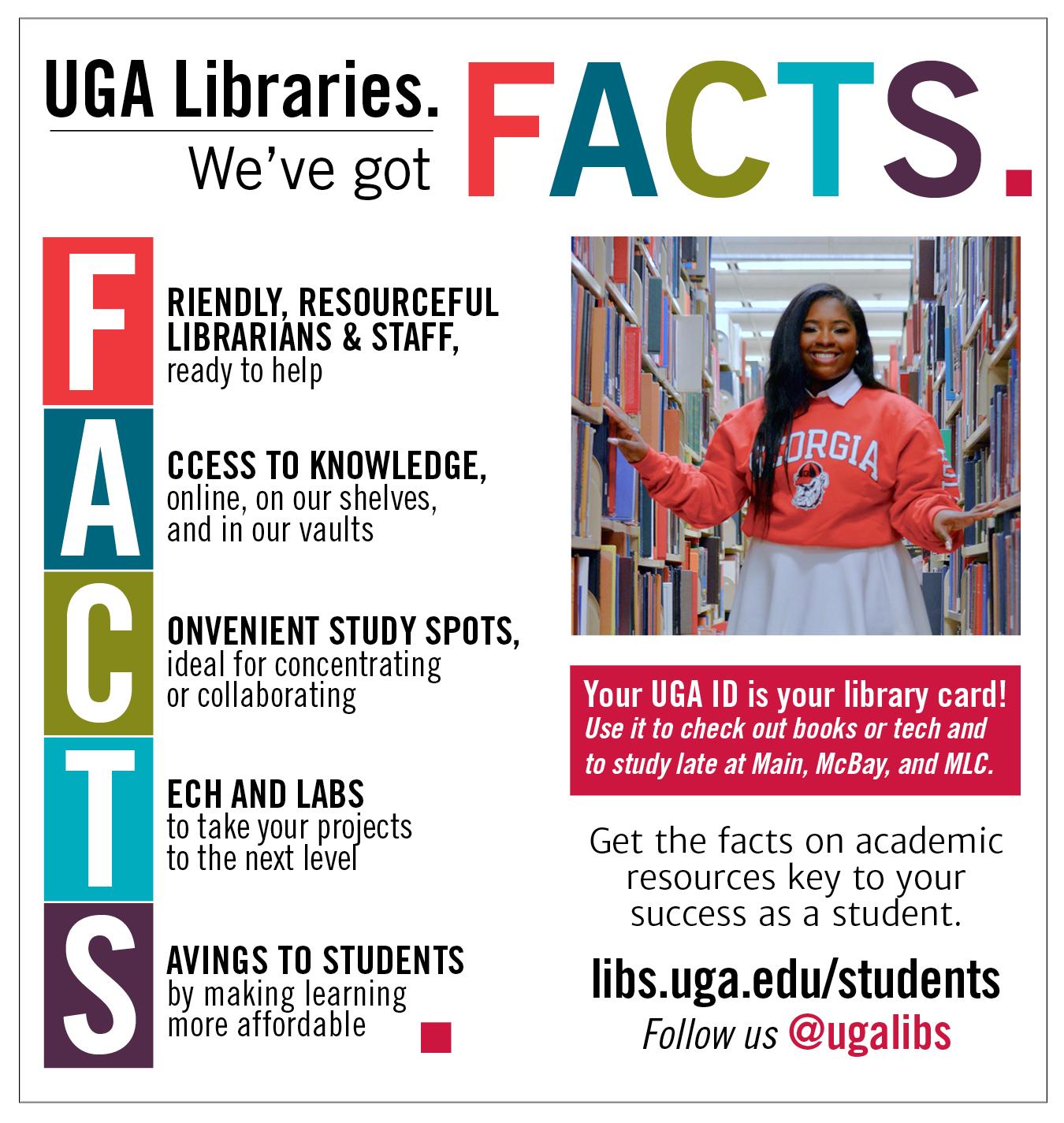


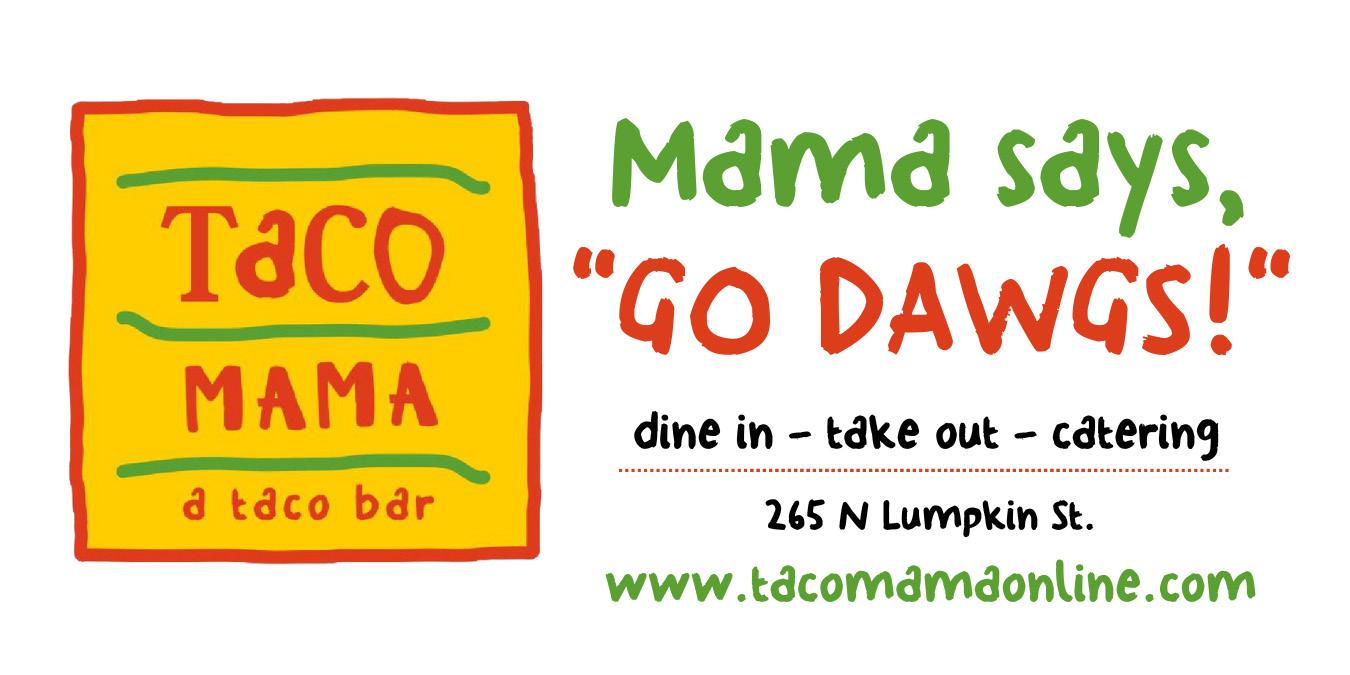
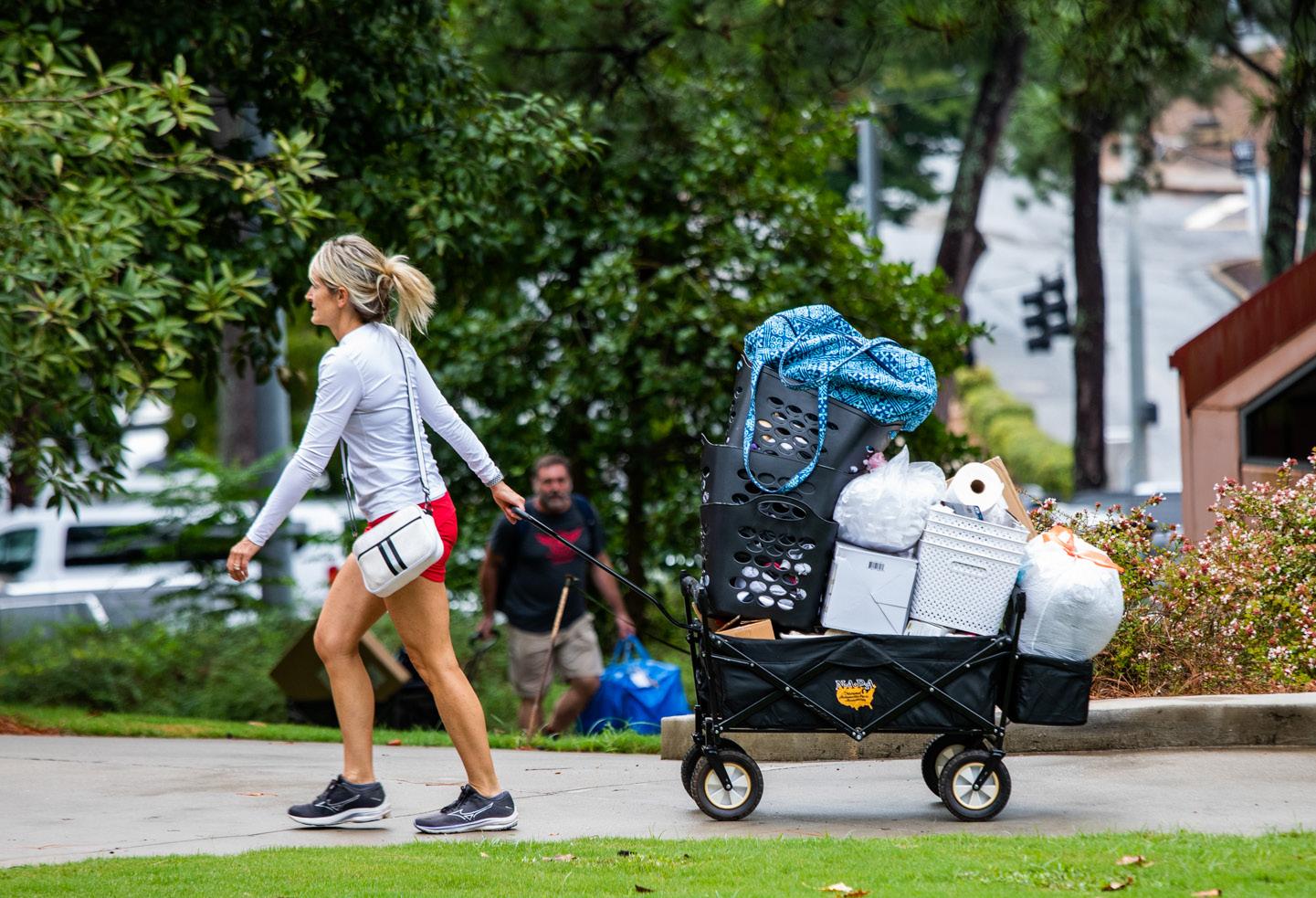
Arriving at UGA for move-in is a momentous day for your family, but it also can be stressful and emotional for everyone. Here are a few suggestions to make the experience a little smoother.
Students moving in during the first days of move-in need to schedule arrival times. You will be assigned a 15-minute window to arrive and then have 45 minutes to unload. Don’t miss your time slot!
Students arriving later in the week don’t have to schedule times, but you could find yourselves waiting to unload during this less structured period.
If your student is arriving early for Panhellenic Recruitment, ask them to coordinate with their roommate so you don’t all arrive at once. If your student is not involved in recruitment, consider moving in later when it’s less chaotic.
Streets near campus will be backed up. If you can mentally prepare and keep your cool, it will help your student, who’s already on edge, stay calm too.
It is stunningly hot in Athens in August. You will be hauling boxes across asphalt lots and in tight elevators. Bringing an extra shirt is not a bad idea.
Go pick up food and give your kid a little alone time to sort their belongings and acclimate. There are dozens of restaurants in downtown Athens. Check out our recommendations for cheap eats (see page 42) and dining for any occasion (see page 84).
You will end up needing things you don’t expect. To prepare for emergencies, pack paper towels, spray cleaner, masking tape, a hammer, a screwdriver, wet wipes and many more bottles of water than you imagine you might need.
Bringing something from Ikea? It’s a lot easier to haul the flat-pack for a Hauga or a Vesken into the dorm than having to schlep the assembled item.
Before you race out to buy anything, discuss if it’s a priority. There are only two Targets in Athens and they will be packed. Can that towel or whiteboard wait? (Plus, this gives you an excuse to visit in a few weeks or to send a care package).
Once you’ve helped with the major hauling and unpacking, say goodbye, but don’t drag it out and get everyone emotional. Save the tears until you hit the road.

How to support your child while letting them take the lead
As the start of the school year approaches, parents and their first-time college students need to consider the best ways to approach this transition. Experts emphasize meeting in the middle.
“I think one of the most respectful things we can do is talking to our young adult child, and saying ‘What do you need from me?’” suggested Janet Frick, who is an associate professor in the UGA Department of Psychology and also the parent of a UGA student.
For parents who may be apprehensive about their student’s departure for campus, UGA staff also encourage a deep-dive into the plethora of resources available online and in-person, for everyone involved.
“UGA has several opportunities for parents to stay connected to what’s happening on campus,” Victoria Redmon, assistant director of student transitions said. “Parents can check out opportunities to stay engaged through the Parent and Family Portal or the Parents Leadership Council.”
This is a new experience for the class of 2028, but might be new for their families too. So for any parents that might need some advice for helping and not hovering, this one’s for you.
Frick said one of the most consistent themes among college students is a frustration having to do with parental control. While it’s important to keep students in check, parents should approach their students with respect for their own ability to take care of themselves.
“If they have a problem to solve, let them solve it,” Frick said. “You can be a sounding board, but let them take the lead on that.”
Frick, who has a doctorate degree in developmental psychology, said it’s also important for parents to separate their own experiences from those of their students.
“Of course, we influence our kids, and the things we teach them shape who they become, but they really are also their own people,” Frick said. “They’re going to be the ones figuring out what they want to do in the world.”
UGA offers extensive resources for parents and students alike. The Office of Student Care and Outreach connects families with on-campus resources, including health and wellness, financial assistance and campus engagement.
While faculty and staff cannot discuss academic information with parents unless students have given permission in advance, parents can encourage students to explore tutoring and academic support services offered through the Division of Academic Enhancement. More information on FERPA can be found under the general information tab at reg.uga.edu.
Redmon also suggests parents look into the Department of Student Transitions Interactive Transition Guide.
“While it is a great resource for current students, it can also be helpful for parents who are looking to learn more about resources at UGA,” Redmon said. “From navigating campus to discovering opportunities available to students, this guide is full of quick links that will help parents learn more about the resources dedicated to their student’s success and well-being.”
It’s easy for parents to step in as the experts, but allowing students to lead conversations and ask their own questions might result in more open lines of communication.
Frick recommends parents try being “just a listener,” offering advice as it’s asked for rather than jumping into lecture mode.
Feelings of isolation and loneliness are common after moving away from home, and nudging students to take advantage of opportunities for social interaction might help them with this transition in the long run.
“It takes time to sort of find your people or the activities you want to do,” Frick said. “And I think a lot of freshmen come in thinking that that’s going to be easy.”
Redmon recommends participating in Welcome UGA, which is an effort to celebrate first-year and transfer students at the beginning of the semester. Events include open houses, information fairs and late-night programming. There are “numerous opportunities for students to acclimate to campus, make new friends and start building great memories,” she said.
Everyone is going through a transition, which is bound to be difficult no matter how many times you’ve done it, Redmon said, adding: “You are not alone in this experience, so it’s OK to lean on your support systems during this adjustment.”



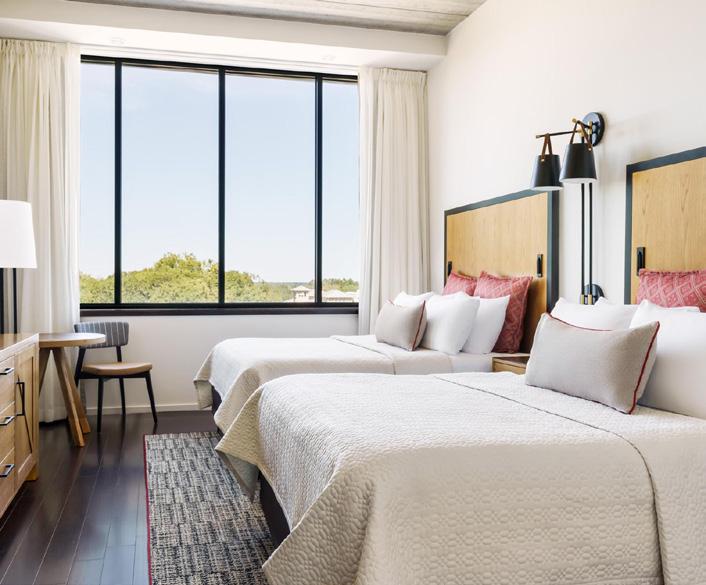

GEORGIA GAMEDAY CENTER
If you want to be fully immersed in school spirit, this complex in the heart of downtown rents 65 football-themed condos.
GRADUATE ATHENS
Housed in a former iron foundry, this beautifully renovated hotel features a pool, eclectic decor and The Foundry, a restaurant that hosts live music and trivia. Poindexter, the lobby-level cafe, serves breakfast, lunch, coffee and tea.
HILTON GARDEN INN
For a longer stay, this downtown high-rise hotel offers a mix of rooms and suites as well as 24/7 business and fitness centers.
HYATT PLACE
This 190-room hotel on North Thomas Street, adjacent to the Classic Center, features free breakfast, a restaurant and a rooftop bar.
HOMEWOOD SUITES BY HILTON
This Broad Street hotel offers connecting rooms and larger suites with family-friendly features like full kitchens.
HOTEL INDIGO
This upscale, environmentally friendly hotel houses a concert venue, art gallery, restaurant, courtyard and electric car charging stations.
SPRINGHILL SUITES BY MARRIOTT
This downtown hotel just steps from UGA’s historic North Campus offers a variety of different suites, a fitness center and free breakfast.
UGA CENTER FOR CONTINUING EDUCATION AND HOTEL
If you want to be in the heart of campus, there’s no better spot than this UGA-operated complex near Myers Quad and Stegeman Coliseum. It includes a 200-room hotel with large suites, two restaurants and a shuttle service.





Your child might not tell you directly what they need or how you can help. Here are some honest tips and suggestions from current UGA students.
“Make sure to check in with your child, but not too often. Be receptive towards whatever method of communication they prefer. Most of all, respect their boundaries.”
“Unless they ask you to, don’t call them late at night on the weekends.”
“Don’t constantly ask them where they are or check their location.”
“Try to check in once a week, not daily.”
“Don’t visit unexpectedly. Give a heads up.”
“Your child is growing up. Let them be their own person, make their own decisions and mistakes. Understand that it’s a transition period and your child’s emotions might be all over the place. Give them freedom, but be there to give them guidance.”
“Give them enough leeway to make their own decisions, but make it known that you’re always there for them even if you’re not there with them on campus.”
“College has changed since you went. Talking about what it was like back in the day is not always helpful.”
“Never (ever) call their professors. Or their advisors. Your student needs to handle some issues on their own.”
“Don’t put too much pressure on them about grades. It takes time to adjust to college rigor, so let them make mistakes and learn from them.”
“If possible, help pay for groceries. Food is expensive.”
“Instead of sending decorations or gifts, send money, gift cards or take them out to lunch or dinner. Dining hall food gets old after a while.”
“Consider sending a care package on their birthday. It makes potentially spending it away from home easier. “



Here at The Retreat on Milledge, we offer spacious floor plan layouts for residents of our UGA student apartments to pick from, including







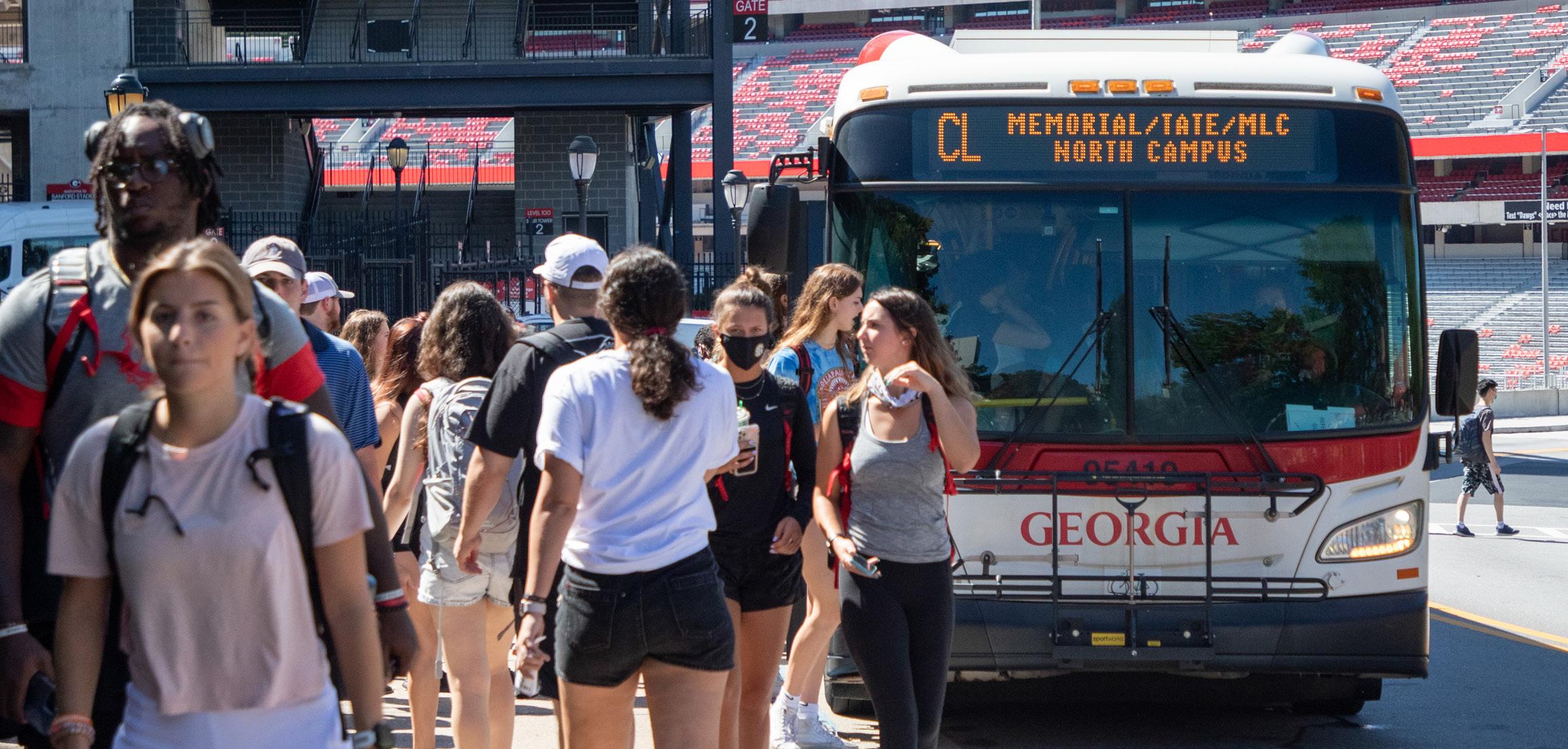
Flights to the local Athens-Ben Epps airport, a few miles east of downtown, are available through charter service only. Here are two ways to get to town if air travel is part of your plan.
Aero Center Epps Atlanta, Wheels Up, Georgia Jet and AirStar Charter all service Athens-Ben Epps airport. Visit accgov.com/airport for more information.
This shuttle service runs multiple times a day from Athens to Atlanta’s Hartsfield-Jackson International Airport. There are several pick-up and drop-off spots around Athens, including at the Georgia Center for Continuing Education and Hotel on South Campus. Fares range from $25 to $60, and one pet is allowed to travel with you for an additional $15 fee. Online booking discounts are available.
The UGA bus system can save you the time and expense of looking for parking, and it travels far beyond campus. You can download the UGA app for route information. Regular bus services do not run during home football games, when the university is closed or the weekend immediately before or after a holiday.
Athens Transit is a free city bus with 20 different routes. Hours of operation end at 9:45 p.m. during the week and at 6:45 p.m. over the weekend. Buses don’t run on major holidays. Download the myStop app for route tracking and additional information.
Parking downtown can be tricky for visitors and locals alike, but you’ll usually have better luck finding a spot farther away from the Arch. Metered parking is $1.50 an hour with a two-hour maximum from Monday to Saturday from 8 a.m. to 10 p.m. After 6 p.m., you may purchase additional time, and after 10 p.m., the meters are not monitored.
Parking in city-operated decks is typically free for the first 30 minutes, and $1 per hour. The downtown area also has several ParkMobile spots and lots that can be reserved and paid for via the ParkMobile app, which is also utilized by several UGA decks.
Most street parking is free on Sundays and major holidays and is not monitored after 10 p.m. Many UGA lots are free and unrestricted on non-game weekends.
405 College Station Road
Here you can schedule campus tours, get directions and find answers to all your UGA-related questions. Student-led campus tours consist of an admissions presentation, a ride on a UGA bus and an hour-long walking tour of historic North Campus. Registration is required for all guests, but self-guided tour maps are also available.
280 E. Dougherty Street
Open seven days a week, stop by the ChurchWaddel-Brumby House, which is considered the oldest surviving residence in Athens, to grab a map, sign up for tours and get Athens-themed gifts. The welcome center offers both guided and self-guided tours about Black history, local music, historic homes and more.



Interested in medicine, nursing, health care, the environment, or population health? Our degree pathways will prepare you for a career tackling today’s most pressing health challenges like –
Infectious disease
Reproductive health
Substance abuse
Mental health
Alzheimer’s disease and dementia
Environmental hazards







If you have an hour to kill while visiting your student, take the time to explore North Campus. We recommend you start at the intersection of Broad Street and College Avenue. As you face south, you’ll see the expansive lawn stretching beneath large oak trees and historic campus buildings.
With its cast-iron structure and three pillars, this landmark is hard to miss. Each pillar represents one of UGA’s founding principles: wisdom, justice and moderation. While it’s now the symbol of UGA, its origins are more practical: The Arch initially served as a gate between North Campus and Broad Street to keep cattle from grazing on the college lawn. Campus Legend: If an undergraduate walks beneath the Arch, they will not graduate.
The large, ornate columned building on your right will be hard to miss. It currently houses the office of the registrar. This building was renamed in 2001 in honor of Hamilton Holmes and Charlayne Hunter-Gault, the students who integrated UGA in 1961.
As you walk past Holmes-Hunter and onto the lawn, pause for a moment when reaching Demosthenian Hall. Directly across the quad is Phi Kappa Hall. Founded in the 19th century, these buildings have hosted a centuries-old rivalry between debate societies. Campus Legend: Demosthenian Hall is supposedly haunted by the ghost of the infamous Robert Toombs, a 19th century UGA student who was expelled.
After pausing to appreciate the debate history, continue walking until you reach the UGA Chapel with its striking painted-white exterior and its six Doric columns. You can also walk behind the Chapel to the Chapel Bell. Students today ring the bell after both school-wide and personal victories, like football wins or acing an exam. The bell used to sit in a tower on top of the building, but in 1913 it was relocated behind the Chapel because wood rot damaged the tower.
After you’ve taken a peek at the Chapel Bell, walk down steps on either side toward the large, elegant building on your right. Moore College currently houses UGA’s Honors College. Built from 1874 to 1876, the building is UGA’s sole example of Second Empire architecture, characterized by the mansard roof.
The large expanse next to Moore College is Herty Field, where Georgia played its first official football game in 1892. (Georgia beat Mercer University 50-0.) Home games were played on Herty Field until 1911. The fountain in the center of the field is a popular photo spot.
Make your way back to the UGA Chapel, and walk across the lawn to the large, red brick building on the opposite side of the North Campus quad. Terrell Hall currently houses the offices of undergraduate admissions. It was built between 1904 and 1905.
Continue walking, and you’ll soon be face-toface with UGA’s oldest remaining structure. Just look for the statue of UGA’s founder, Abraham Baldwin, in front of the building. Old College was built in 1806. The building has housed classrooms, a dormitory, dining facilities and even a World War II training program for the U.S. Navy.
UGA’s Main Library has seven floors filled with primary sources and scholarly works. From the top floor, you have a great view of campus and the surrounding countryside.
Across the street, you will find this cemetery, which in 2009 was added to the National Register of Historic Places. The cemetery contains 800 grave spaces that include two former UGA presidents. Renovations in 2015 at nearby Baldwin Hall uncovered an additional 105 grave spaces with remains of possible enslaved or formerly enslaved people. Since the discovery, UGA commemorated those Athenians and other enslaved individuals with the Baldwin Hall memorial on campus.
Maybe you’re visiting your UGA student with younger siblings along for a ride. Or maybe a grandparent or aunt is joining the fun. Here are places that can entertain everyone in a multigenerational group.
Music fans of all ages should head to Wuxtry Records, which occupies a revered spot in Athens music history. Its second-floor sister store, Bizarro-Wuxtry, is packed with comics, books and collectibles. Avid Bookshop in Five Points stocks popular and harder-to-find titles, has an exceptional kids section and hosts author readings and other events.
Opened in 1948, the state’s official art museum occupies a contemporary building on UGA’s East Campus. It holds nearly 17,000 pieces, including 19th- and 20th-century American paintings, artwork from the Italian Renaissance and a growing collection of Southern decorative arts. The monthly Family Day events allow kids and parents to spend a Saturday morning learning about a specific exhibit. Plus: admission is free.
Every Saturday morning, more than 40 vendors set up shop on the tennis courts at Bishop Park to sell seasonal produce, meats and cheeses, baked goods, fresh flowers and handmade crafts. The weekend market runs all year, while Creature Comforts hosts a smaller market downtown on Wednesday nights from March to November.
The Rook & Pawn is a board game cafe that serves food, coffee, tea and spirits. Their impressive selection of over 600 games ranges from Scrabble and Clue to Cranium and The Chameleon. The daily game fee is $7 per guest, free for kids under 13. For thrill seekers, LumberJaxe offers hourly axe-throwing packages for people looking to test their skills. Participants must be 13 and older.
Housed in Memorial Park, Bear Hollow Zoo provides refuge and rehabilitation for native wildlife that have physical disabilities or other challenges. Admission is free and the small zoo is easy to stroll through as you see animals like otters, an alligator and the three namesake bears.
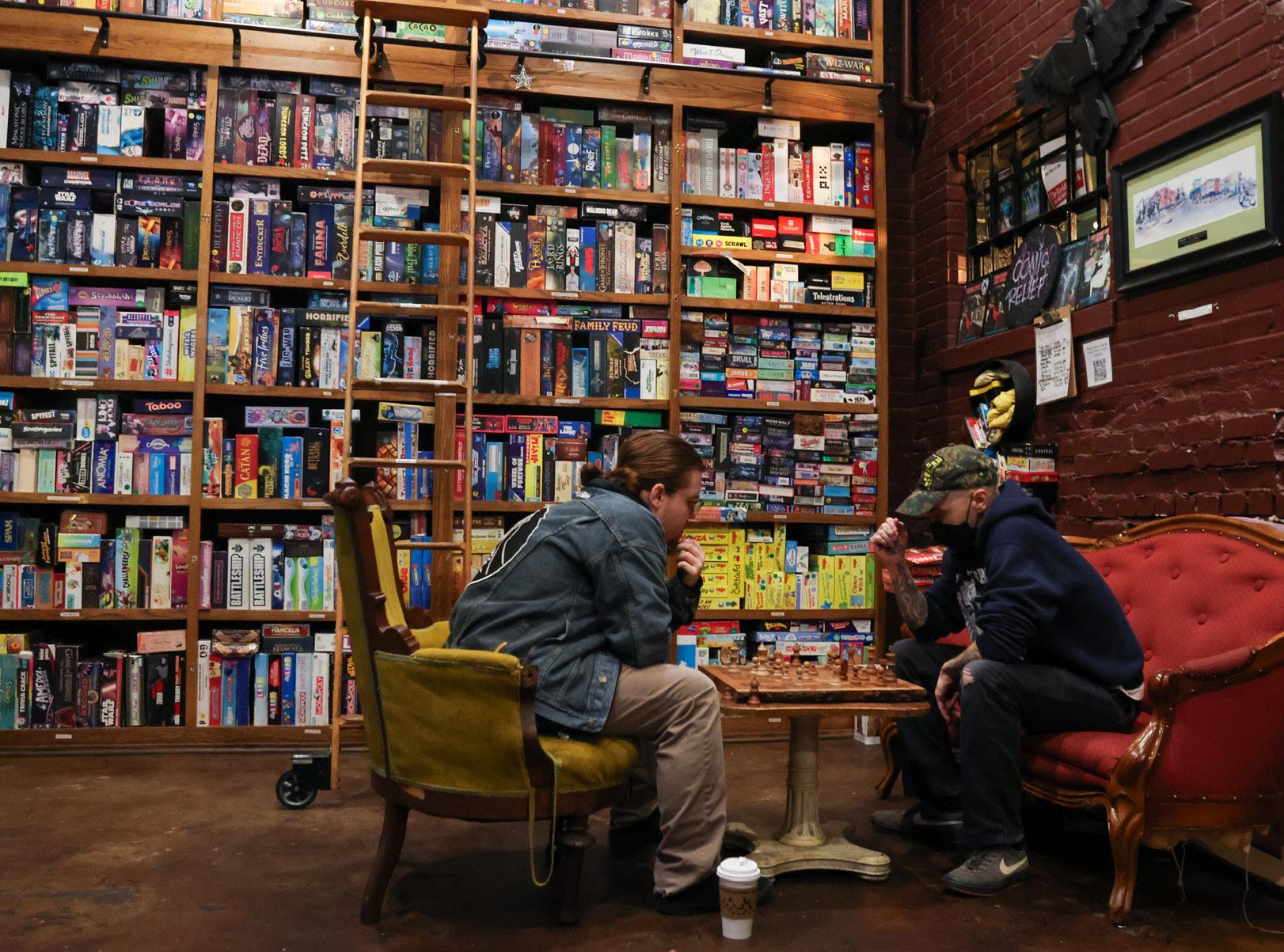 The Rook & Pawn | Samantha Hurley
The Rook & Pawn | Samantha Hurley
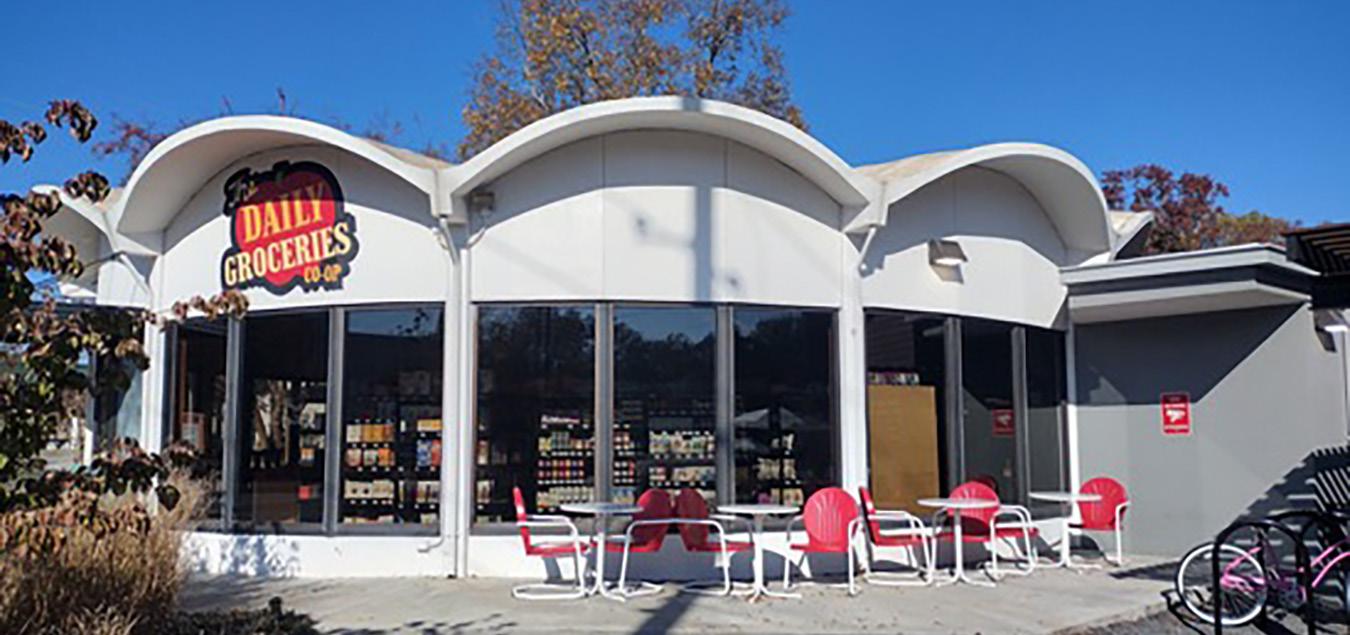





Ted’s Most Best | Sidney Chansamone
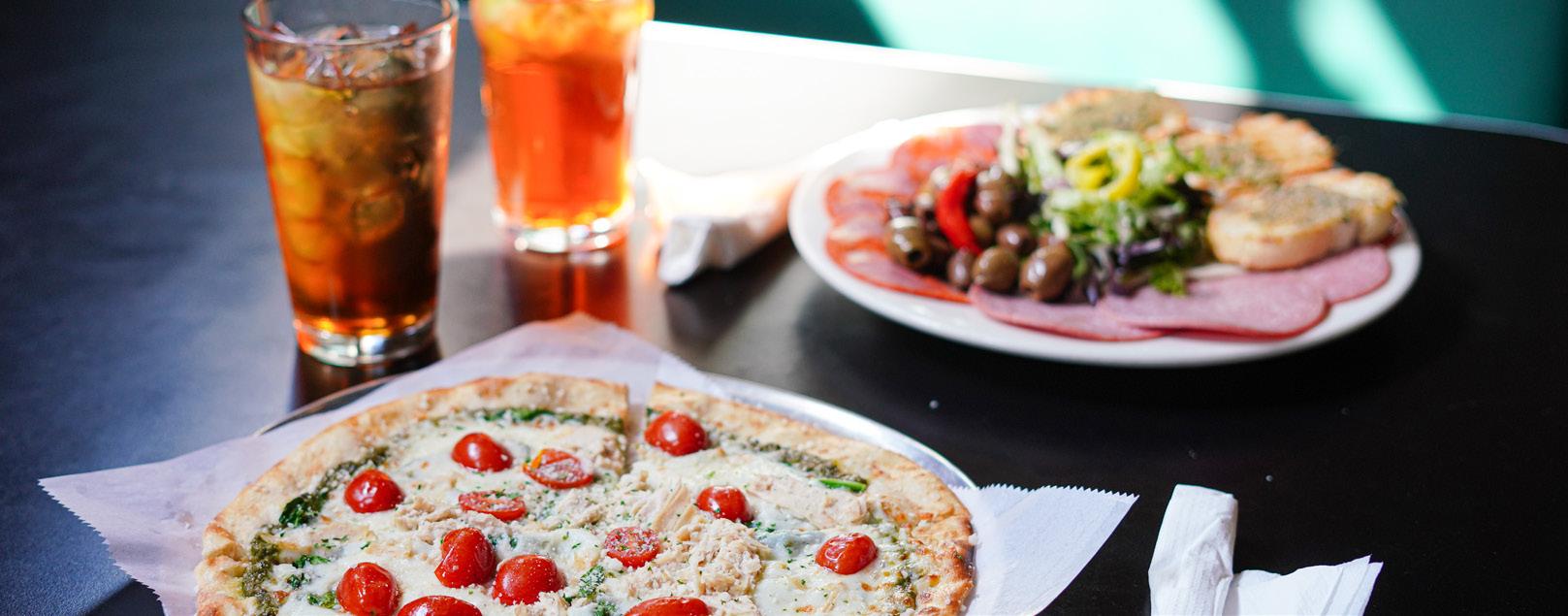
Whether you’re in town for a special occasion or just stopping by for a few hours, there are plenty of restaurants in Athens to suit all of your plans.
Students say the best day for parents to visit is Sunday. Campus is calmer and dining halls are on reduced operation.
Breakfast and lunch options are plentiful at this Five Points restaurant, but the real star is afternoon tea — with a tower of scones, mini sandwiches and pastries.
From the organic flour in the biscuit dough to fillings grown in the owners’ own farm, everything is locally sourced at this Baxter Street breakfast and lunch spot.
If you want something special — while keeping budget in mind — these restaurants are good destinations for a group.
What started in the late 1980s as a quest for good pizza evolved into a classic Athens restaurant. There’s still pizza — served by the slice or by the pie — and favorites like eggplant Florentine and daily pasta specials. It has locations downtown, on the East Side and on Timothy Road.
If you’re craving Southern specialties, The Place, across from historic North Campus, has you covered. Don’t miss the decadent chicken and waffles.
A great way to get to know your student’s friends is to take everyone to dinner. Here are a few spots that can cater to a variety of tastes without breaking the bank.
This restaurant on West Broad Street has an enormous selection of meats, sides and sauces. The owners claim the menu can be customized in a thousand combos.
This beloved family-owned restaurant serves Mexican and Salvadoran food in a bright orange building on North Chase Street.
LUNCH FOR TWO OF YOU
If you’re in Athens for a quick visit, here are places for a little one-on-one conversation.
TED’S MOST BEST
This downtown spot serves exceptional pizza and pasta and has a spacious patio, complete with a bocce court and sandpit.
This spacious downtown spot has an extensive menu (try the veggie Reuben). Follow your lunch with a stroll and shopping downtown.
Students and Athenians will wait in long lines for Sunday brunch at Mama’s Boy, which has locations downtown and on Macon Highway. We suggest going for a weekday lunch where you get the same inventive takes on classic Southern food with less of a wait.
Mark a major event by visiting restaurants with nationally recognized chefs and cocktail experts.
ZZ & SIMONE’S
In a luxe design-forward space (a blush bar, saddle-leather booths), the team behind Dinner Party offer elegant renditions of classic pastas, pizzas and seafood.
Inspired by European travels, this Mediterranean-influenced restaurant offers serene decor and stellar service.



JOIN OUR WAITLIST TODAY!
PRIVATE BEDROOMS
PRIVATE BATHROOMS
CONVENIENT LOCATION ALL-INCLUSIVE RENT
RESORT-STYLE POOL MULTIPLE STUDY LOUNGES 24-H FITNESS CENTER ON-SITE PARKING

















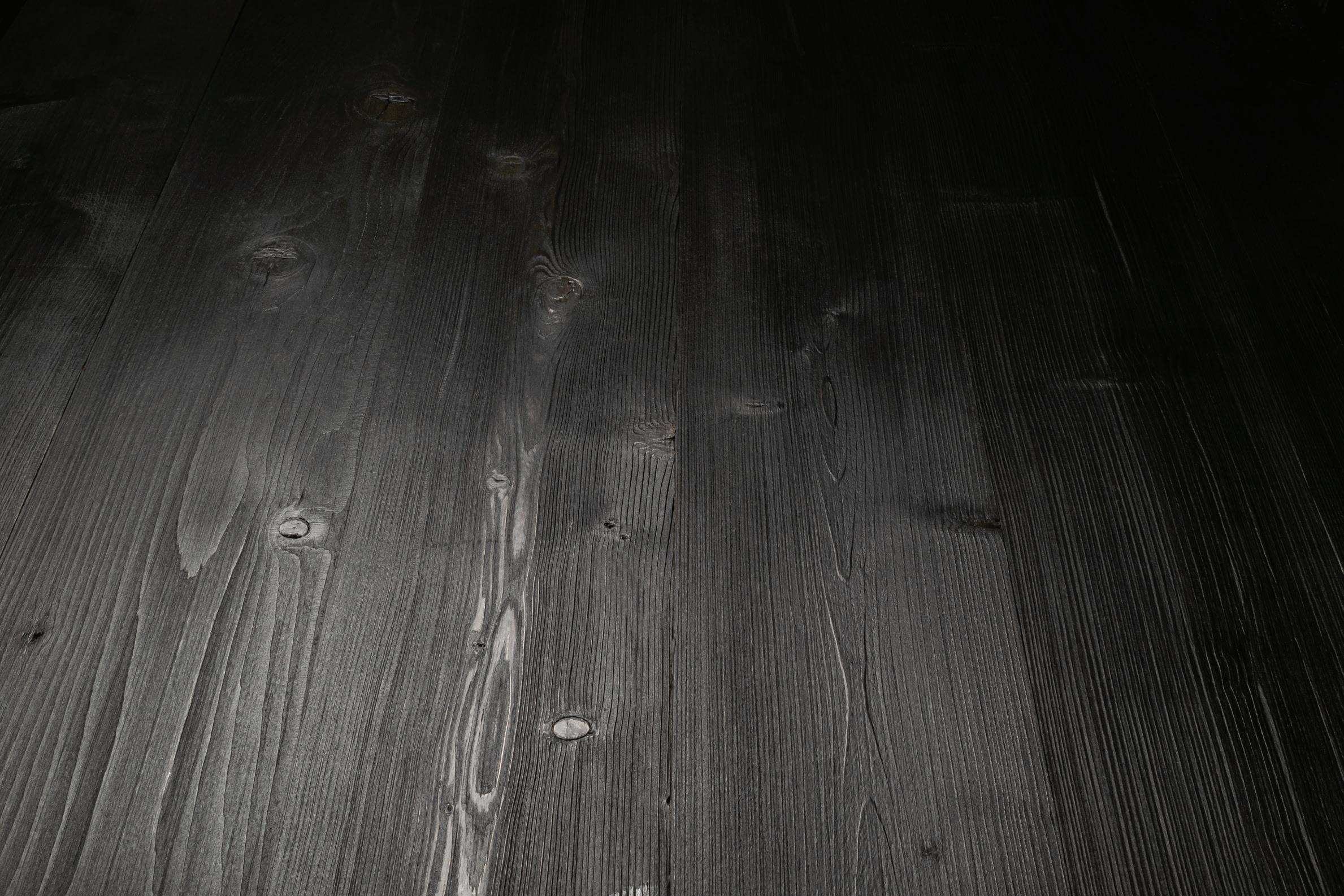

For the 2024–2025 school year
Aug. 12
Aug. 13
Aug. 14
Sept. 2
Oct. 7
Orientation / Advisement
Registration
Classes Begin
Labor Day Holiday
Midterm
Oct. 21 Withdrawal Deadline
Nov. 1 Fall Break
Nov. 27–29 Thanksgiving Break
Dec. 2
Dec. 3
Classes Resume
Classes End
Dec. 5-11 Final Exams
Dec. 13 Commencement
Jan. 2
Jan. 3
Jan. 6
Jan. 20
Feb. 27
Orientation / Advisement
Registration
Classes Begin
Martin Luther King Jr. Holiday
Midterm
Mar. 3–7 Spring Break
Mar. 10
Classes Resume
Mar. 20 Withdrawal Deadline
April 28
Classes End
April 30–May 6 Final Exams
May 9 Commencement
June 3
Orientation
June 4 Advisement / Registration
June 5
June 19
July 2
Classes Begin
Juneteenth Holiday
Midterm / Withdrawal Deadline
July 4 Independence Day Holiday
July 30
Classes End
July 30-Aug. 1 Final Exams
Aug. 4
Summer Conferral






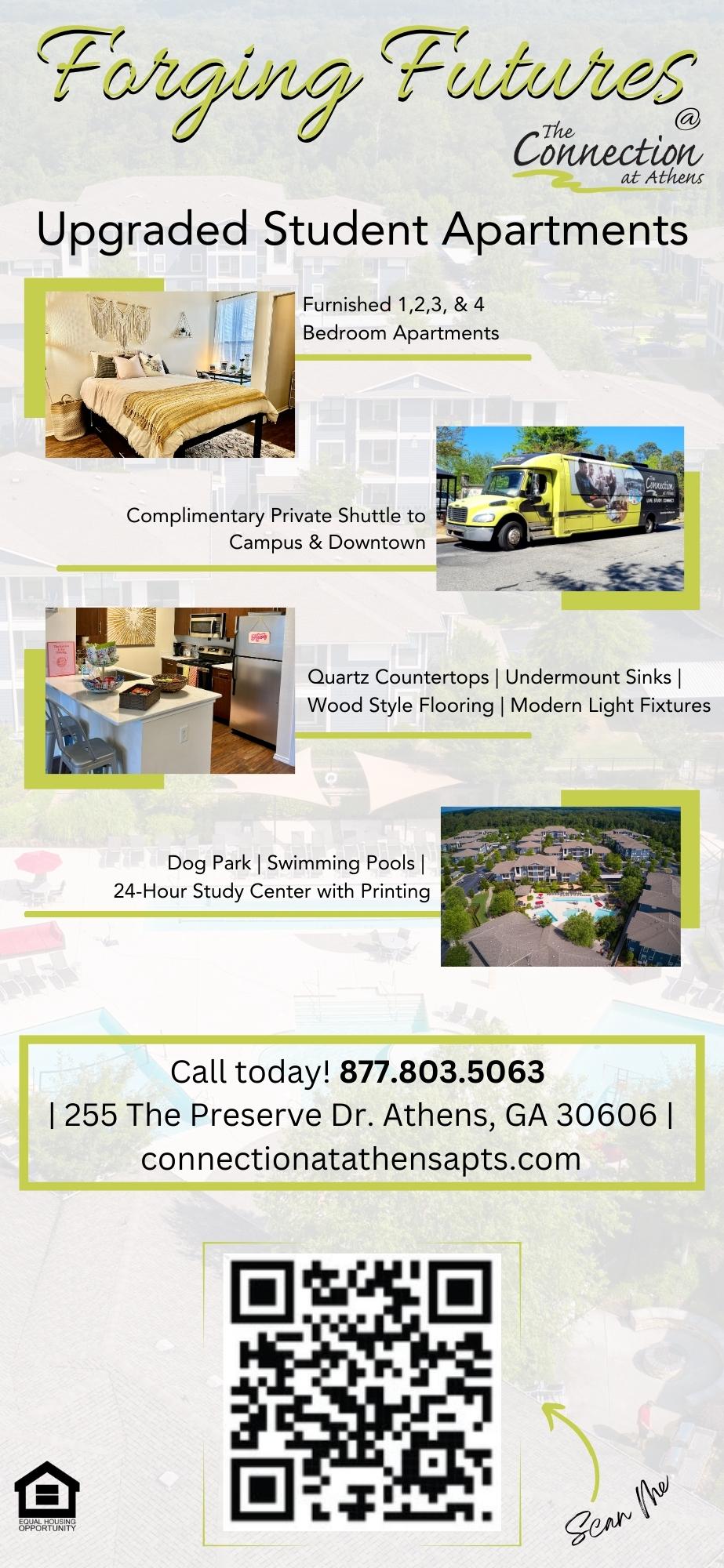

96% of the University of Georgia class of 2023 are employed, attending graduate school or engaged in post-graduate internships. Of 2023 graduates employed full-time, 98% were hired within six months of graduation and over half were hired prior to graduating.
Learn more about UGA Career Outcomes and see salary and major-specific data at career.uga.edu/outcomes
